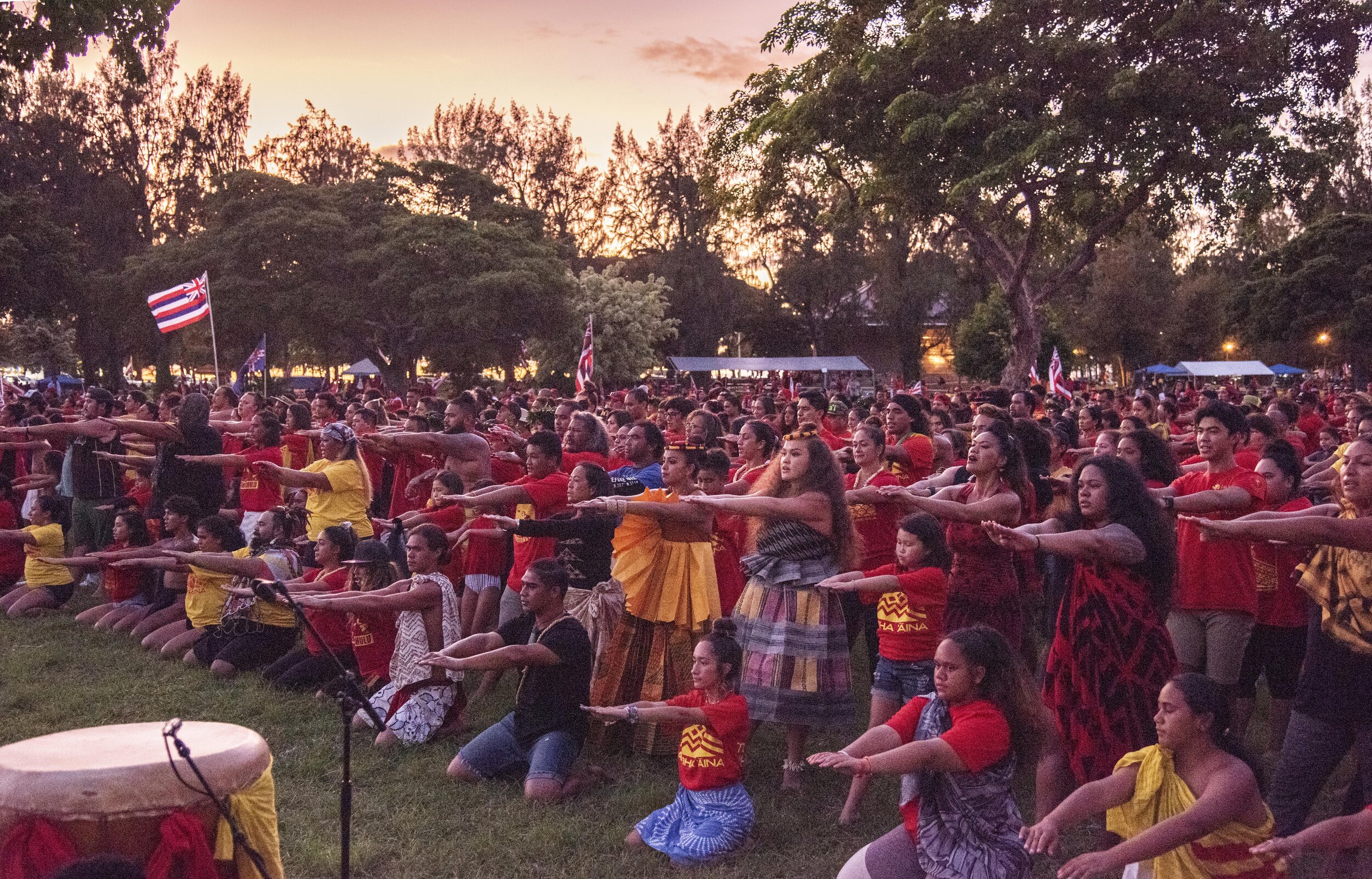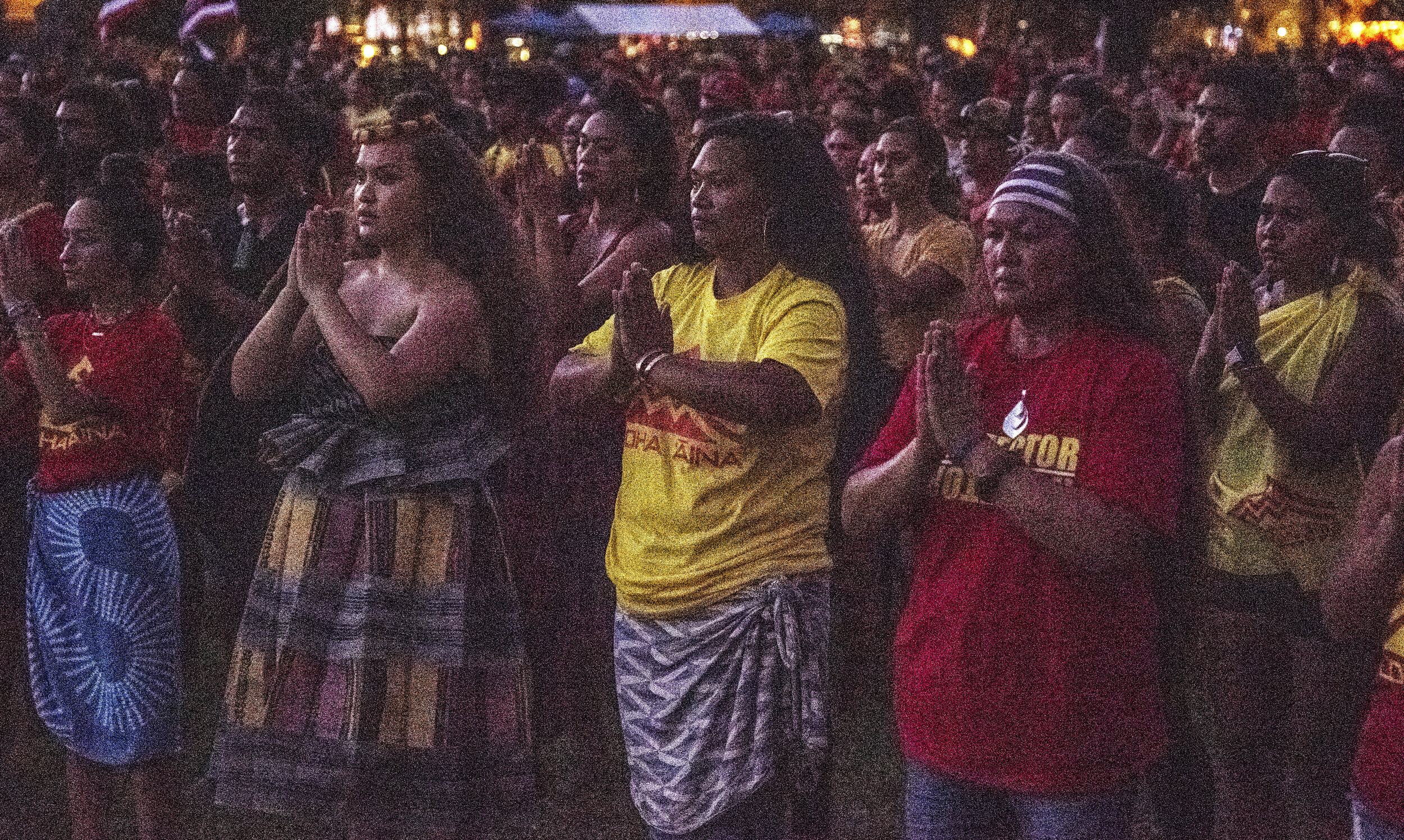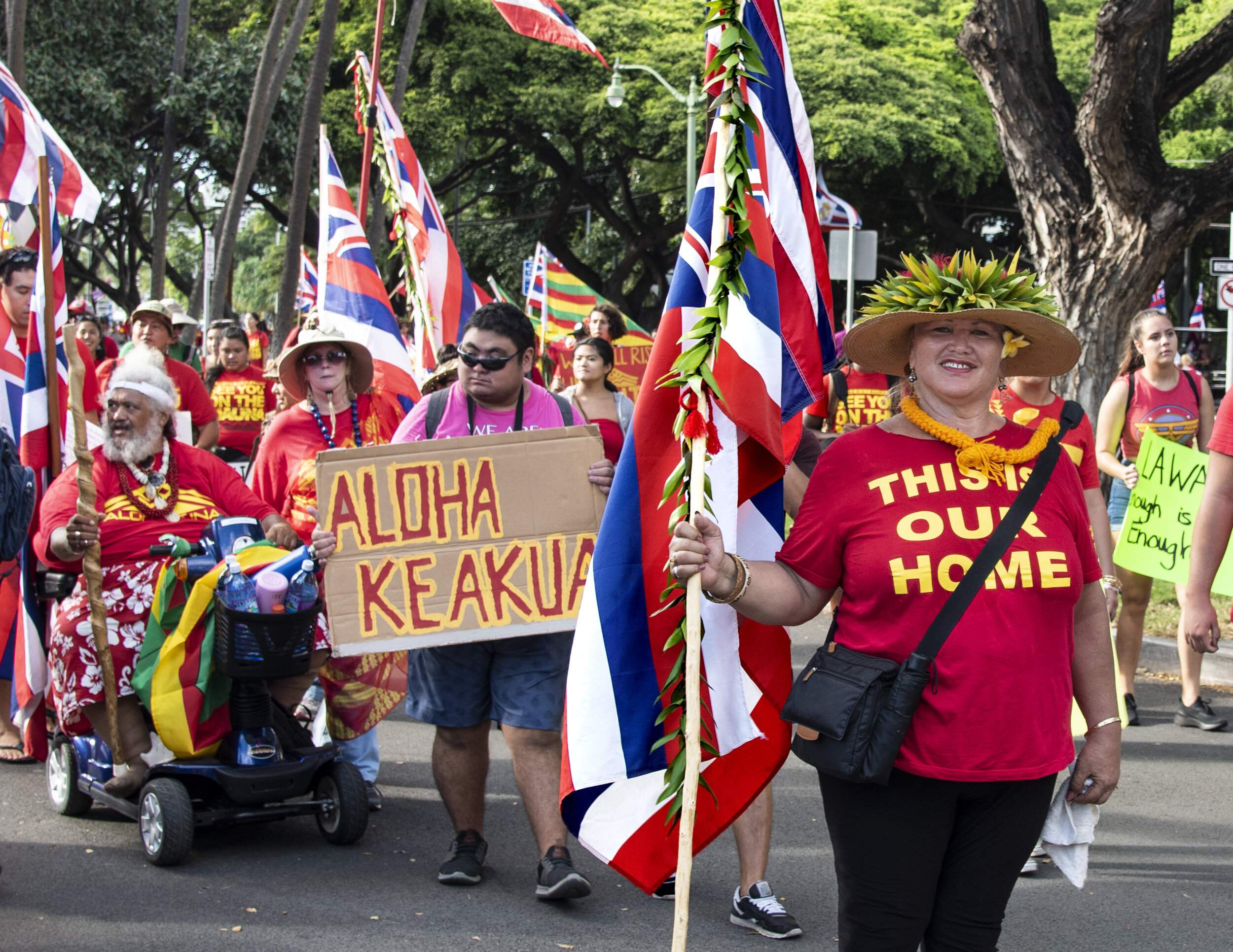
The Aloha Unity Rally was held at Kapi’olani Park, Oahu on 10/5/2019. *Other than the translations of Hawaiian words found on shirts and signs, the proverbs and sayings that accompany this set of pictures can be found in ʻŌLELO NOʻEAU, Hawaiian Proverbs & Poetical Sayings, by Mary Kawena Pukui, published by Bishop Museum Press, Honolulu, Hawaiʻi, 1983.
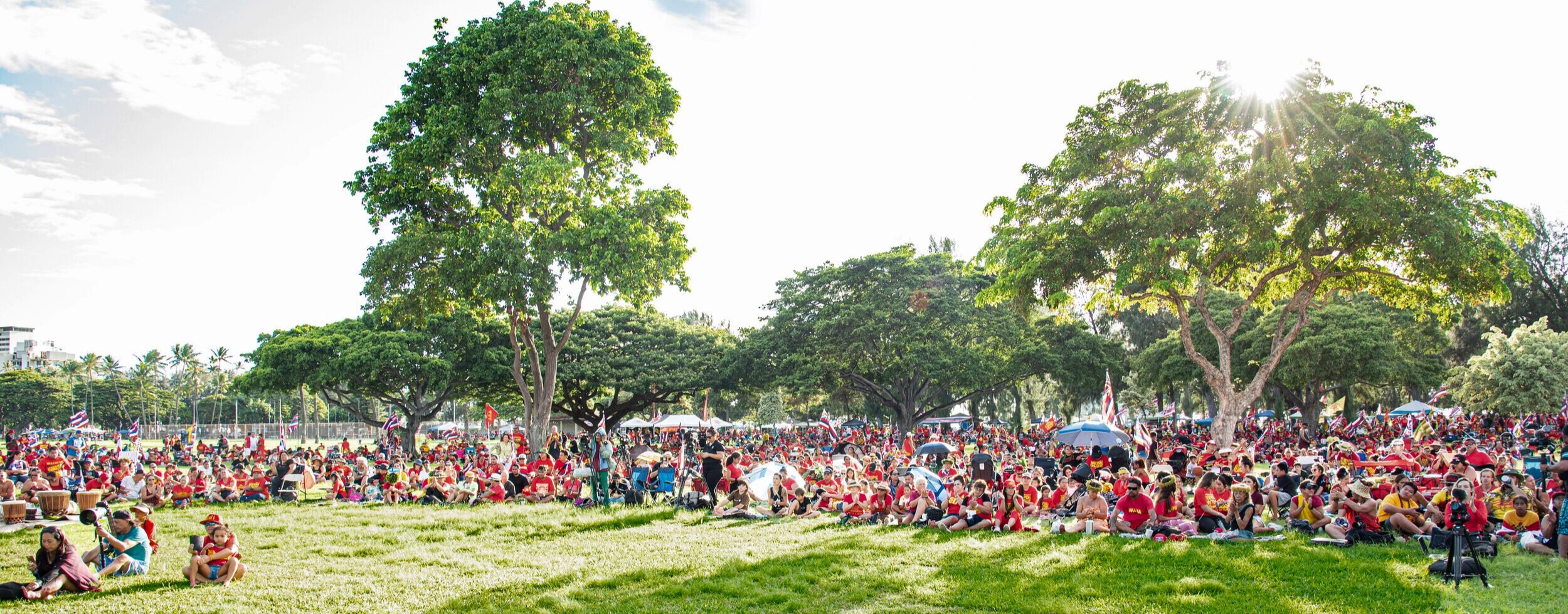
Everybody goes fishing in good weather. Also used when people turn out in great numbers to share in work or play.
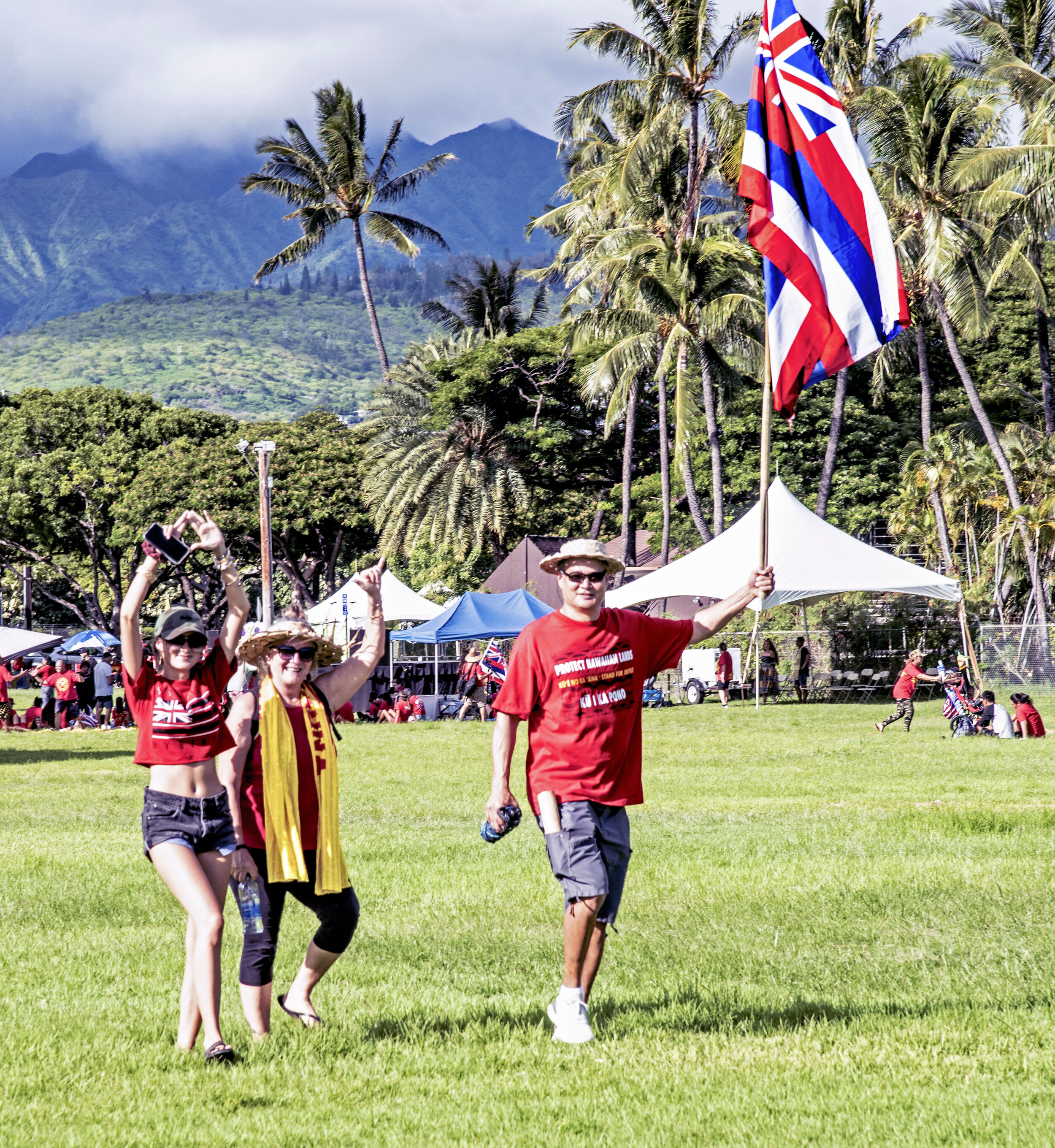
The manʻs t-shirt reads (top) “Protect Hawaiian Lands;” (middle) Kū i no ka ʻāina (Stand for the land) - Stand for Justice; and (bottom) “Kū i ka pono.”
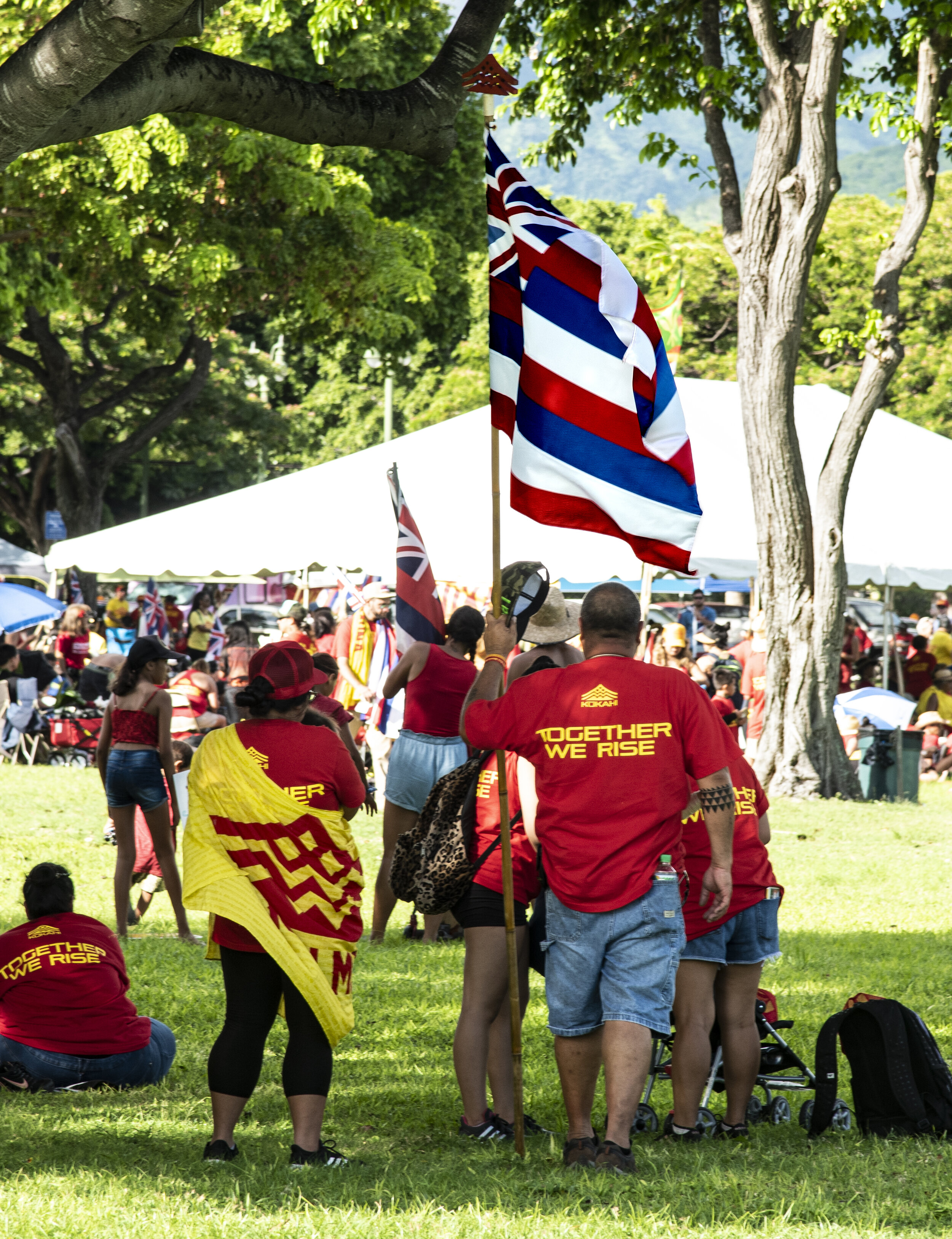
Work together.
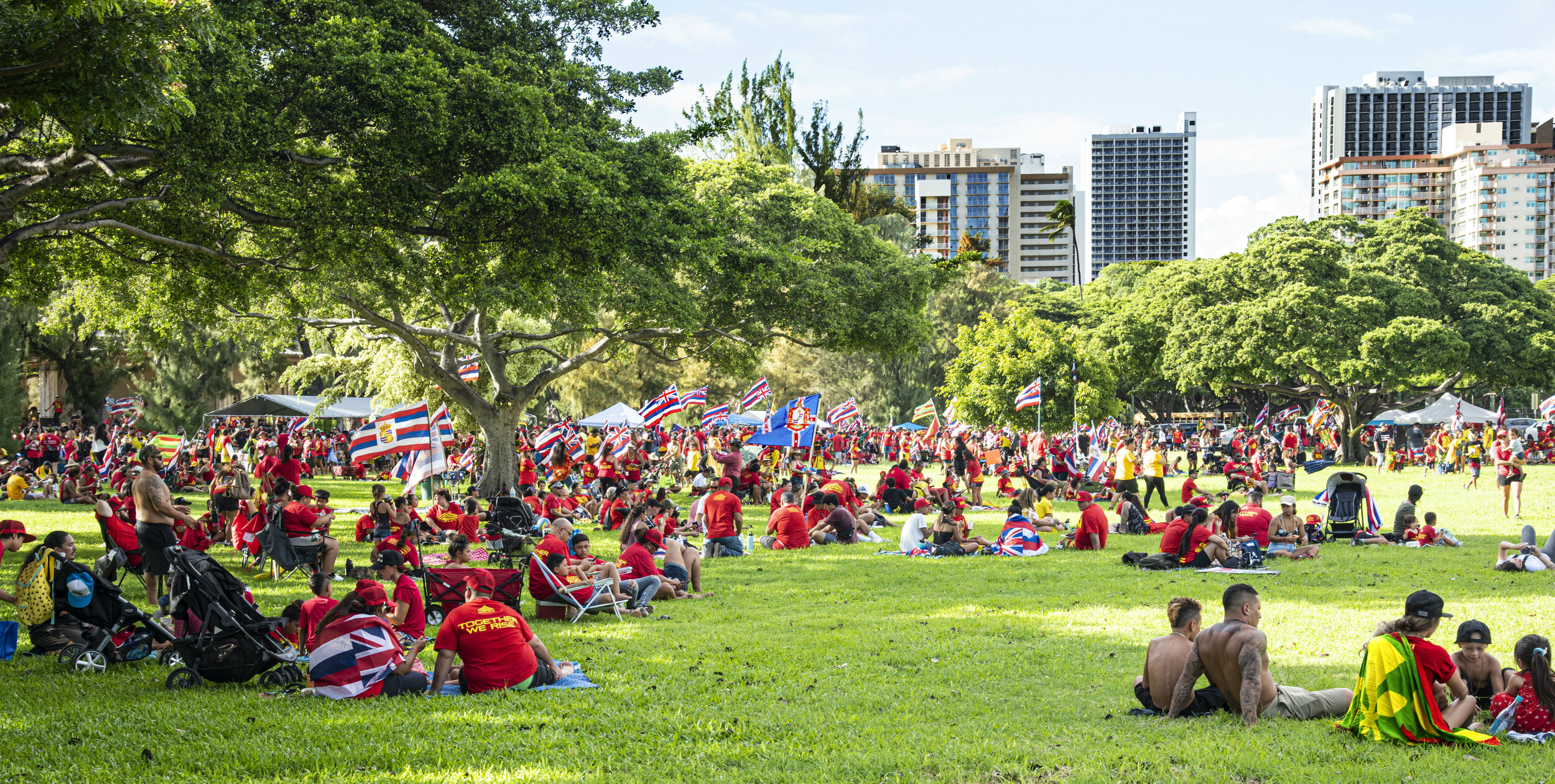
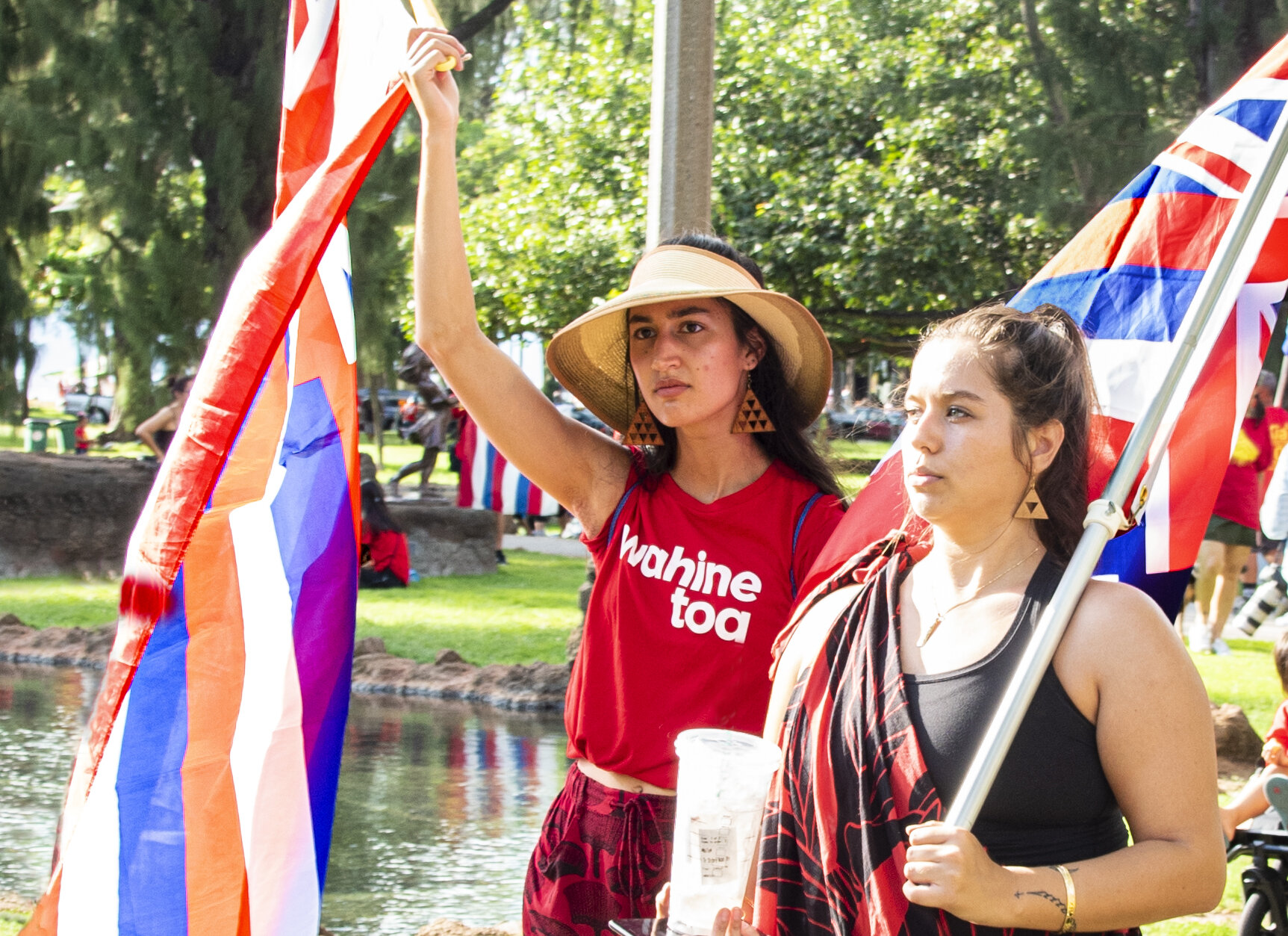
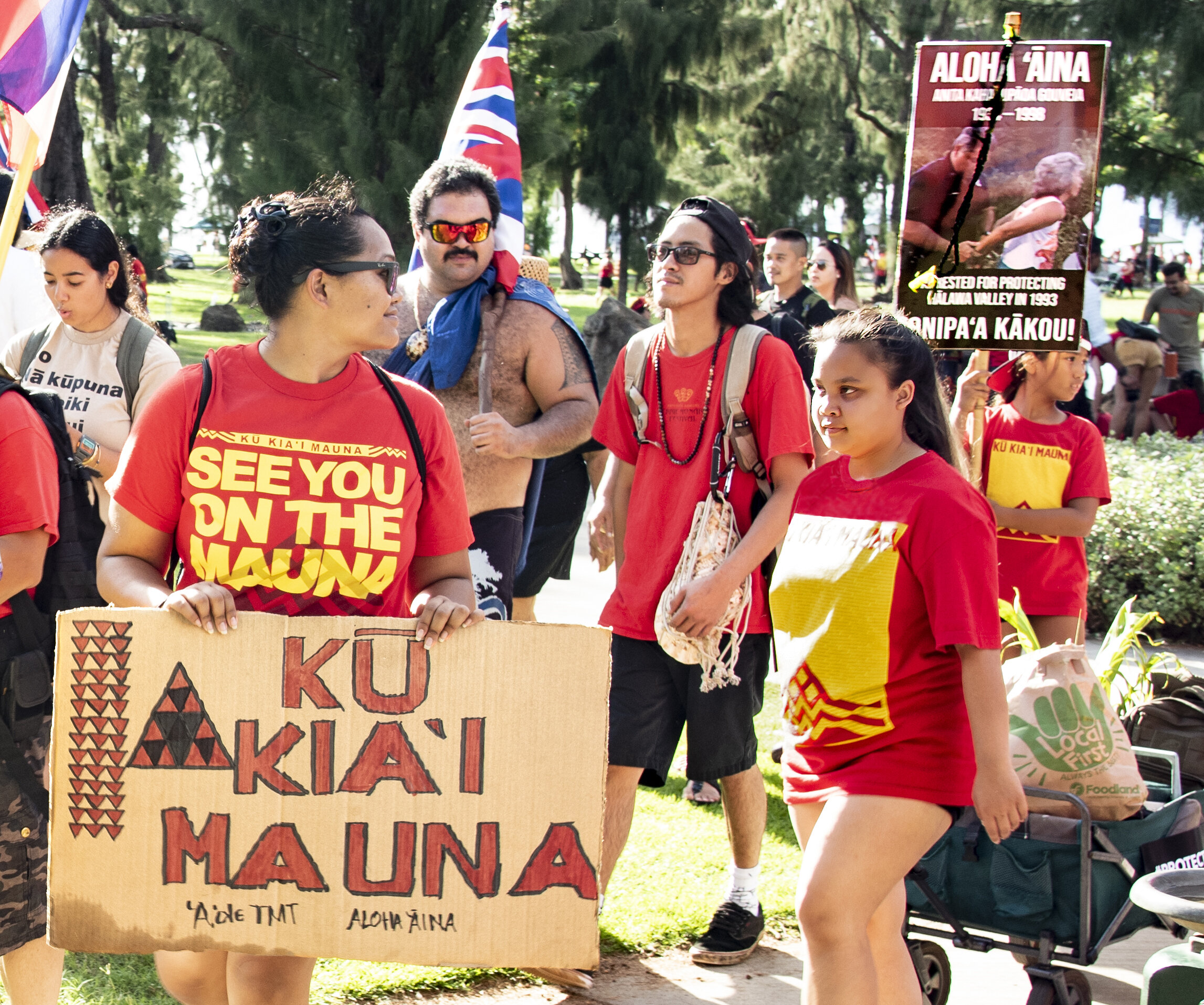
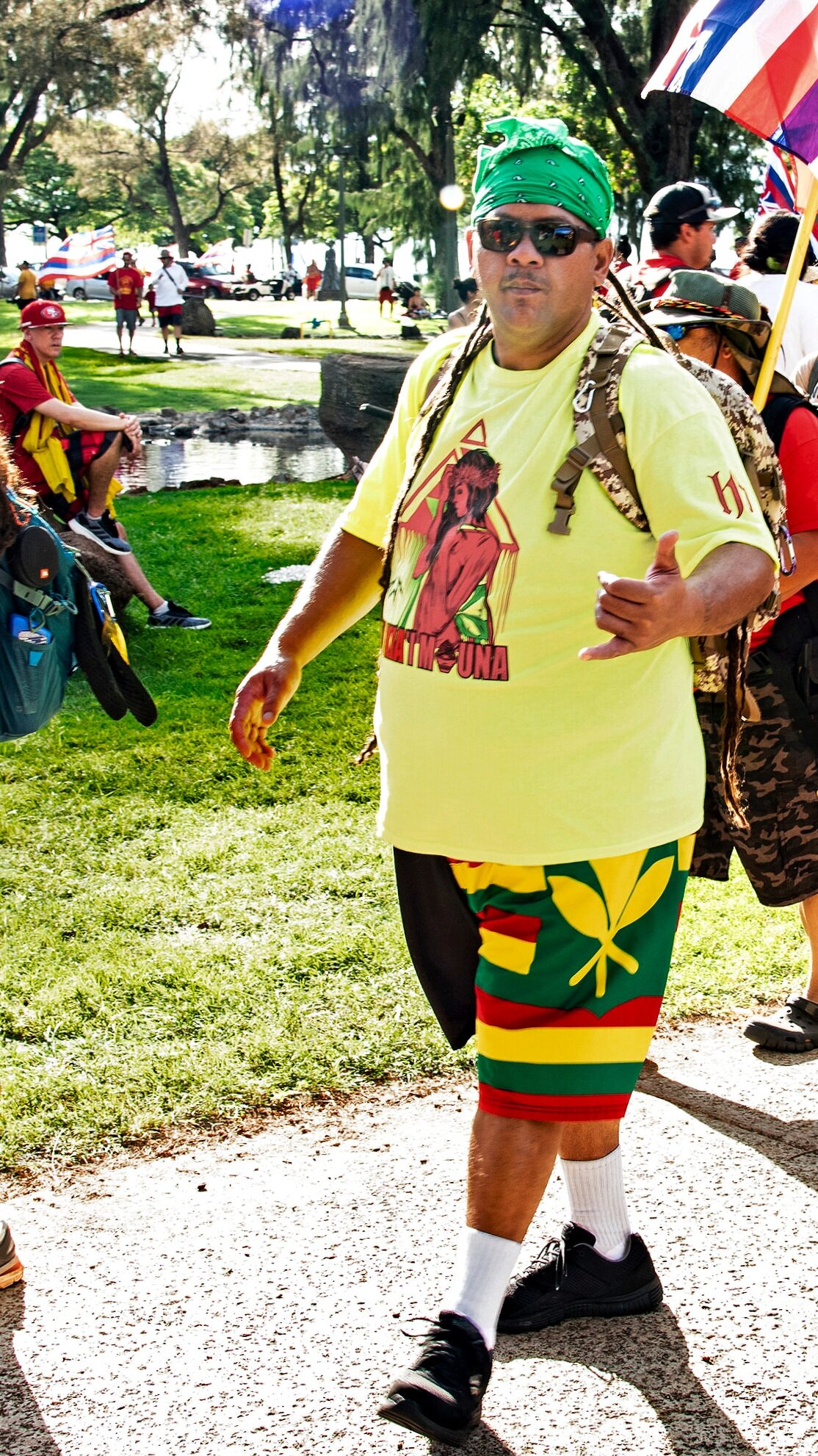
Be generous and king to all.

This Kuhuku-based community group, organized to protect Kuhuku from proposed negative effects of a wind turbine farm project, attended the unity rally in solidarity with the TMT protesters.
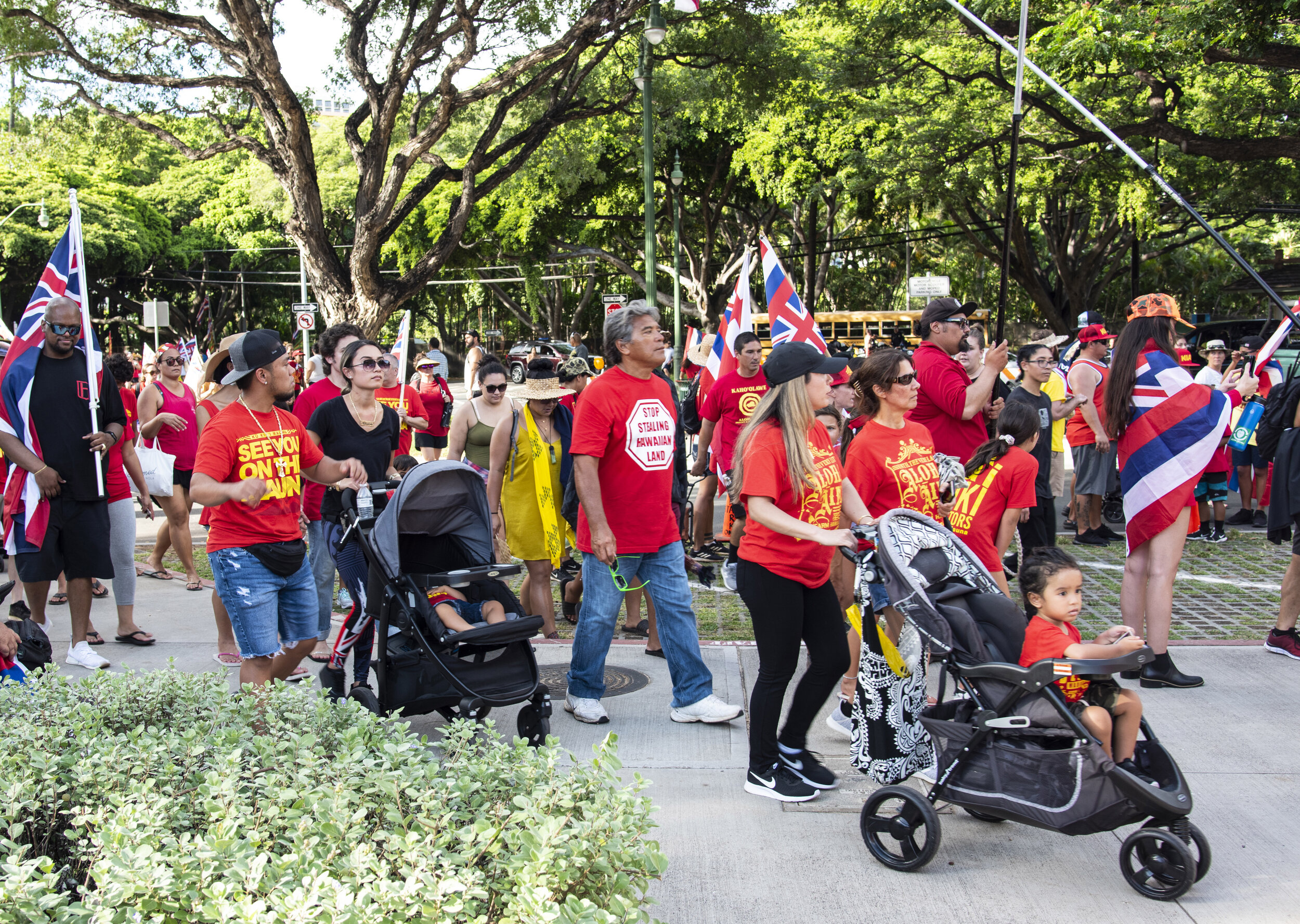
Protesters came with their children carrying signs and wearing their thoughts and aspirations. Statements here included: “Aloha ʻĀina,” “Stop Stealing Hawaiian Land,” and “See You on the Mauna.”
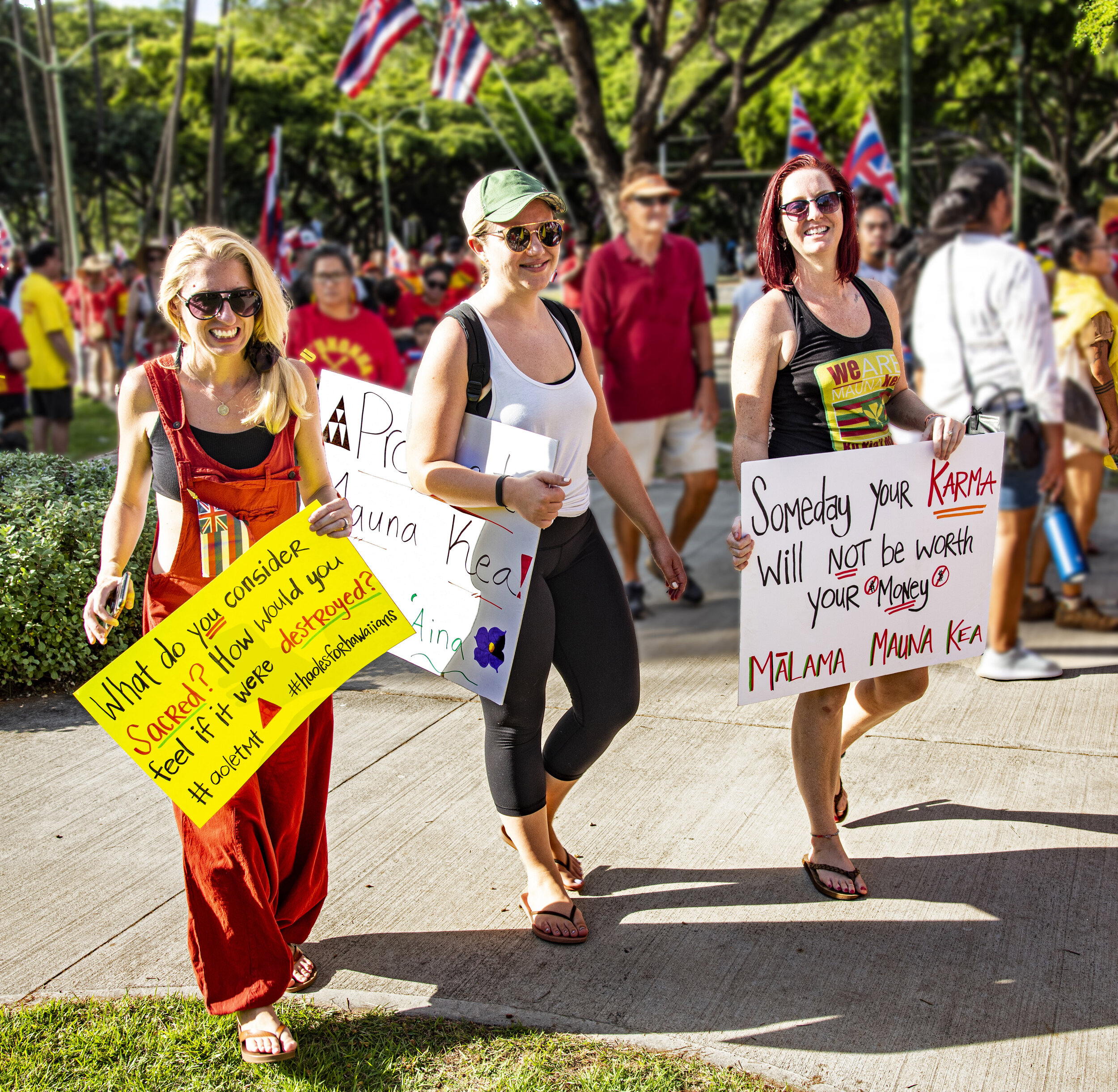
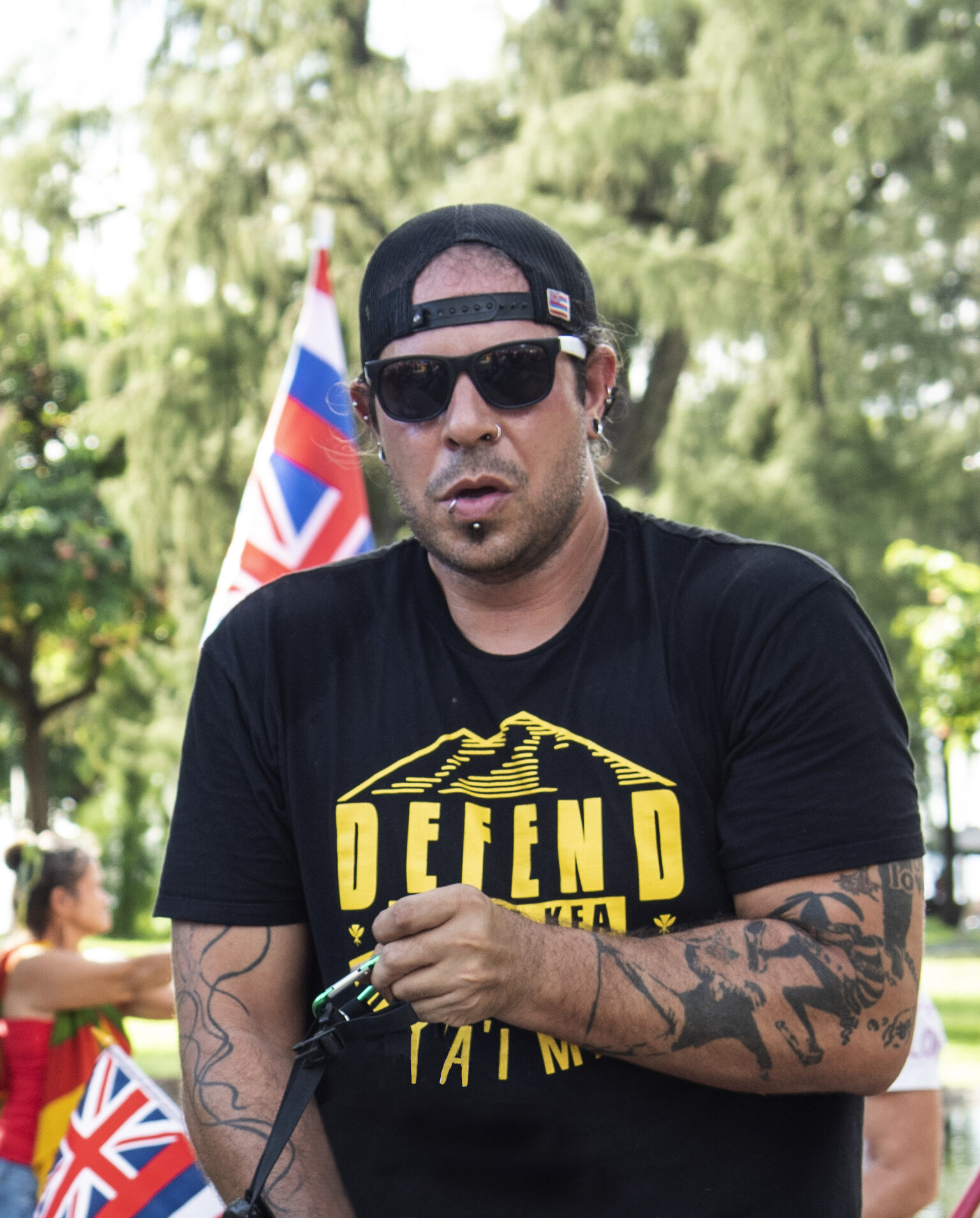
Said in admiration of a person who lets nothing stop him from carrying out the task entrusted to him.
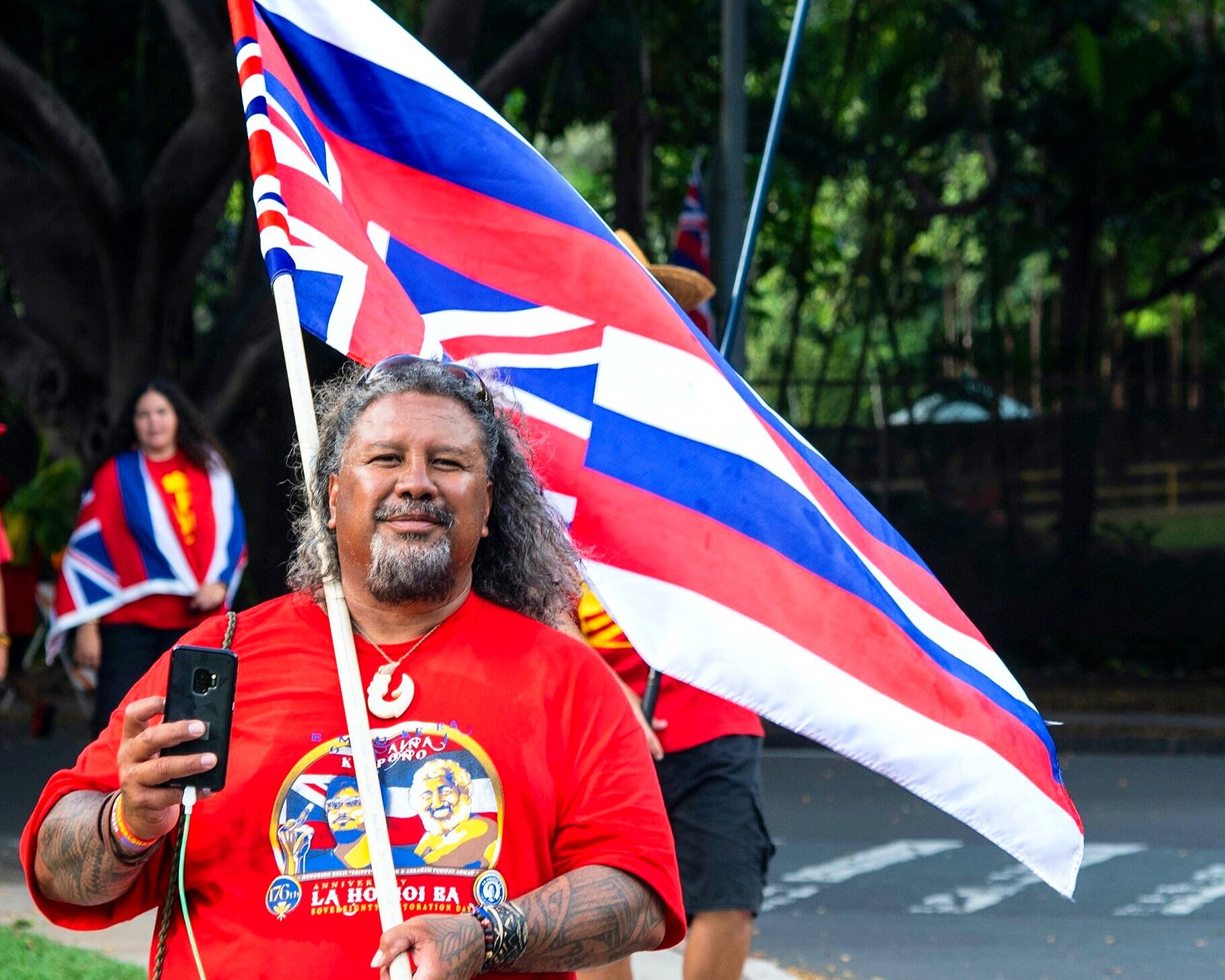
King Kamehameha III established this holiday following the rightful return of sovereign government to Hawaiʻi by the United Kingdom. He proclaimed, “Ua mau ke ea o ka ʻāina i ka pono” - the ea (sovereignty, life, breath) of our land is perpetuated through justice. The celebration was revived in 1985 by Uncle Kekuni Blaisdell and others.
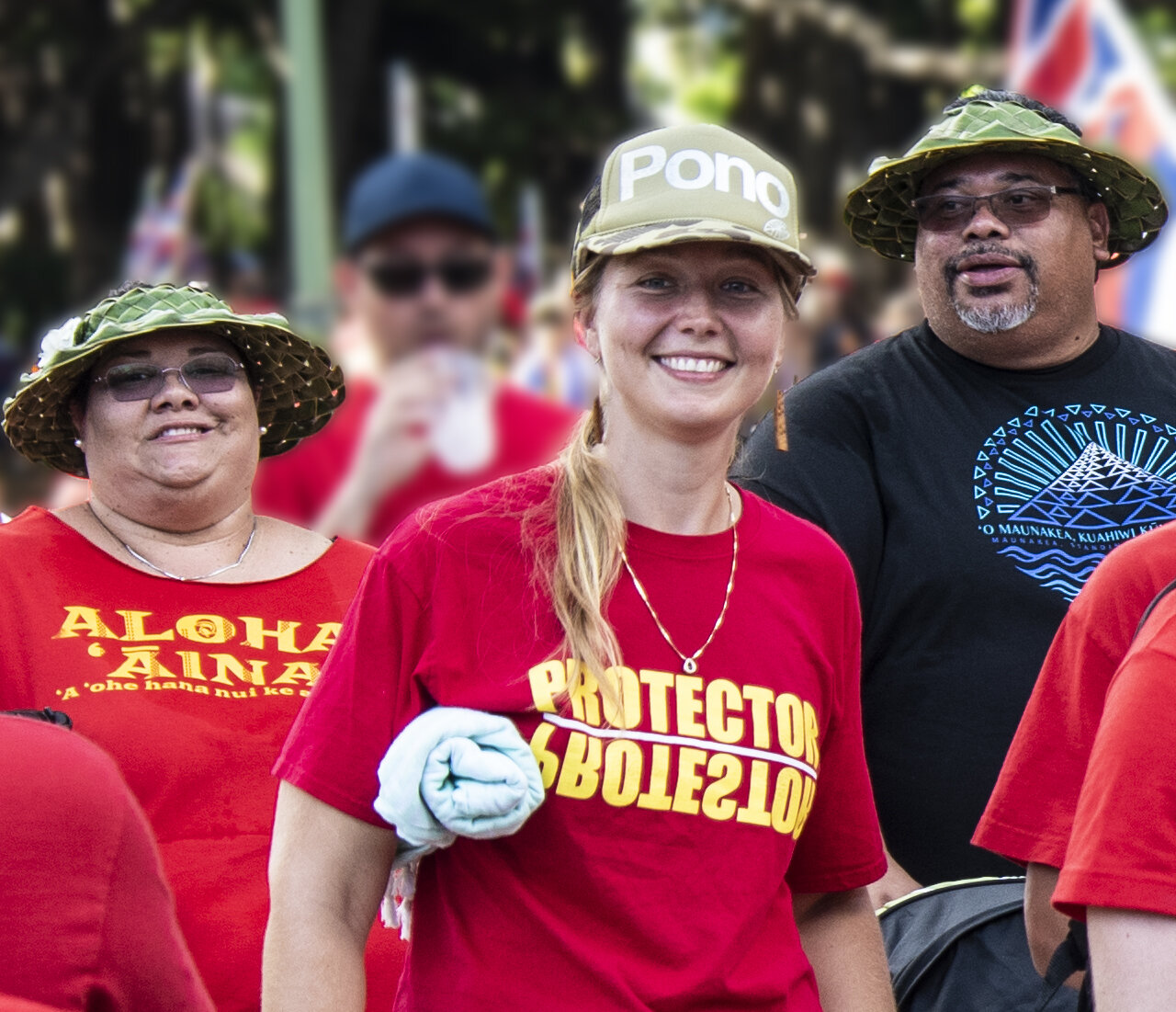
![Ka ʻike a ka makua he hei na ke keki. [The knowledge of the parent is (unconsciously) absorbed by the child.]](https://images.squarespace-cdn.com/content/v1/567de29d841abaa3c9152fbd/1572816524957-NLPBWGJITXC97XGSY38O/SSL_3533_Ku+Kia+i+Mauna+Kea-dad_sm.jpg)
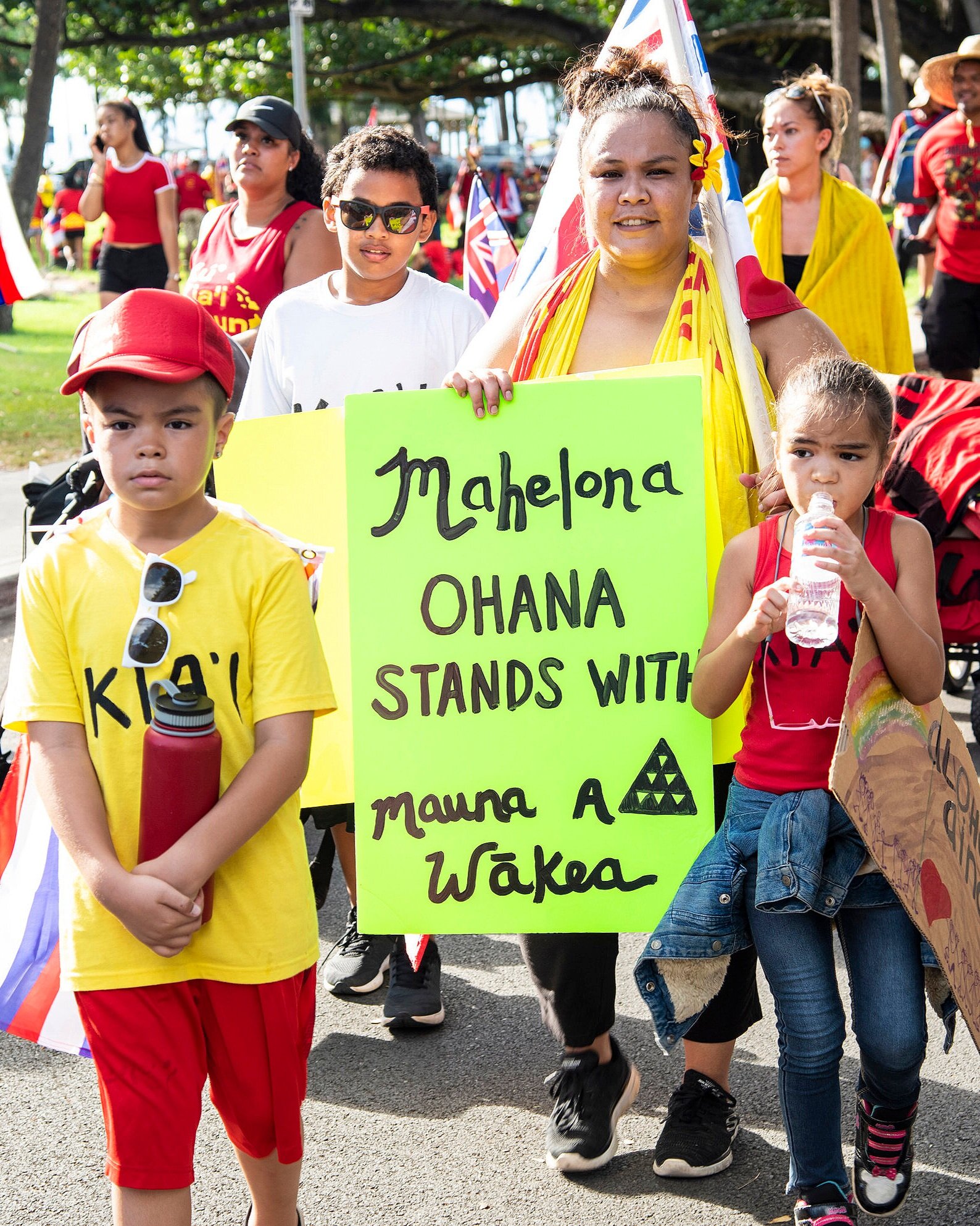
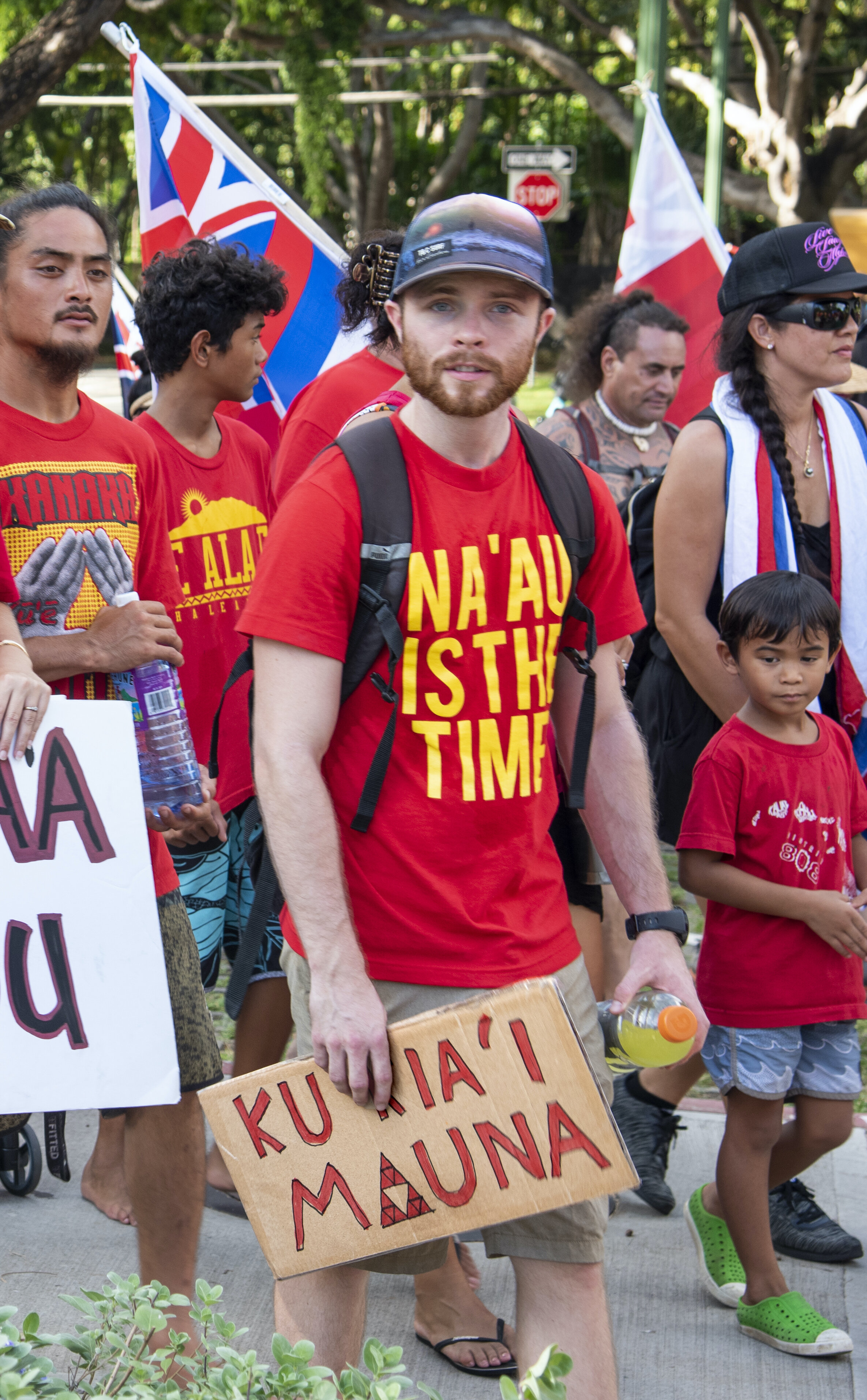
In Hawaiian, this is what describes the sense of balance we feel when all aspects of our lives are in harmony.
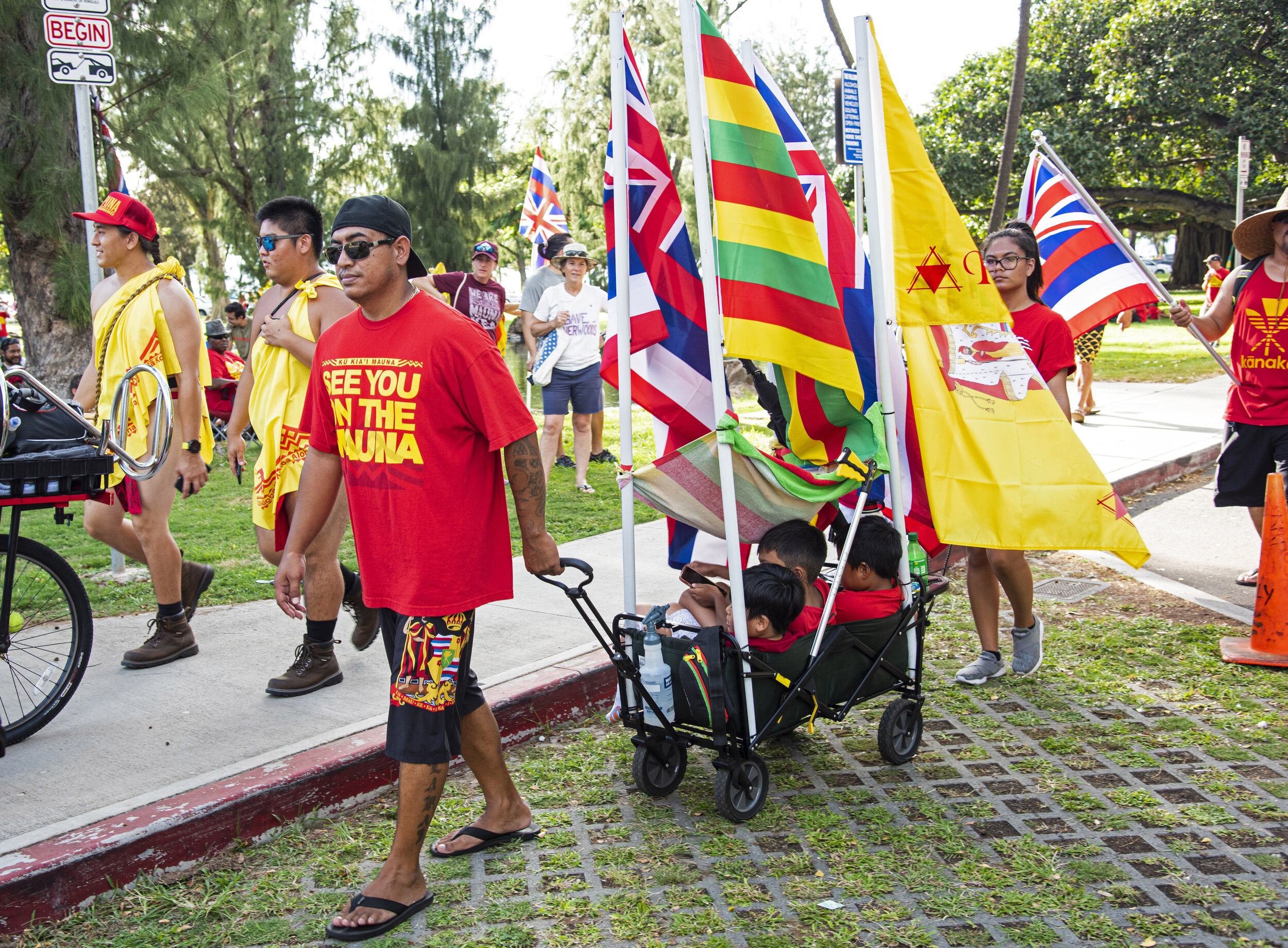
This Hawaiian phrase, located on this man’s shorts was adopted in 1959 as the motto of the state of Hawaiʻi. Some people translate the phrase emphasizing “life” and others emphasize “sovereignty” as the meaning of “ea.”
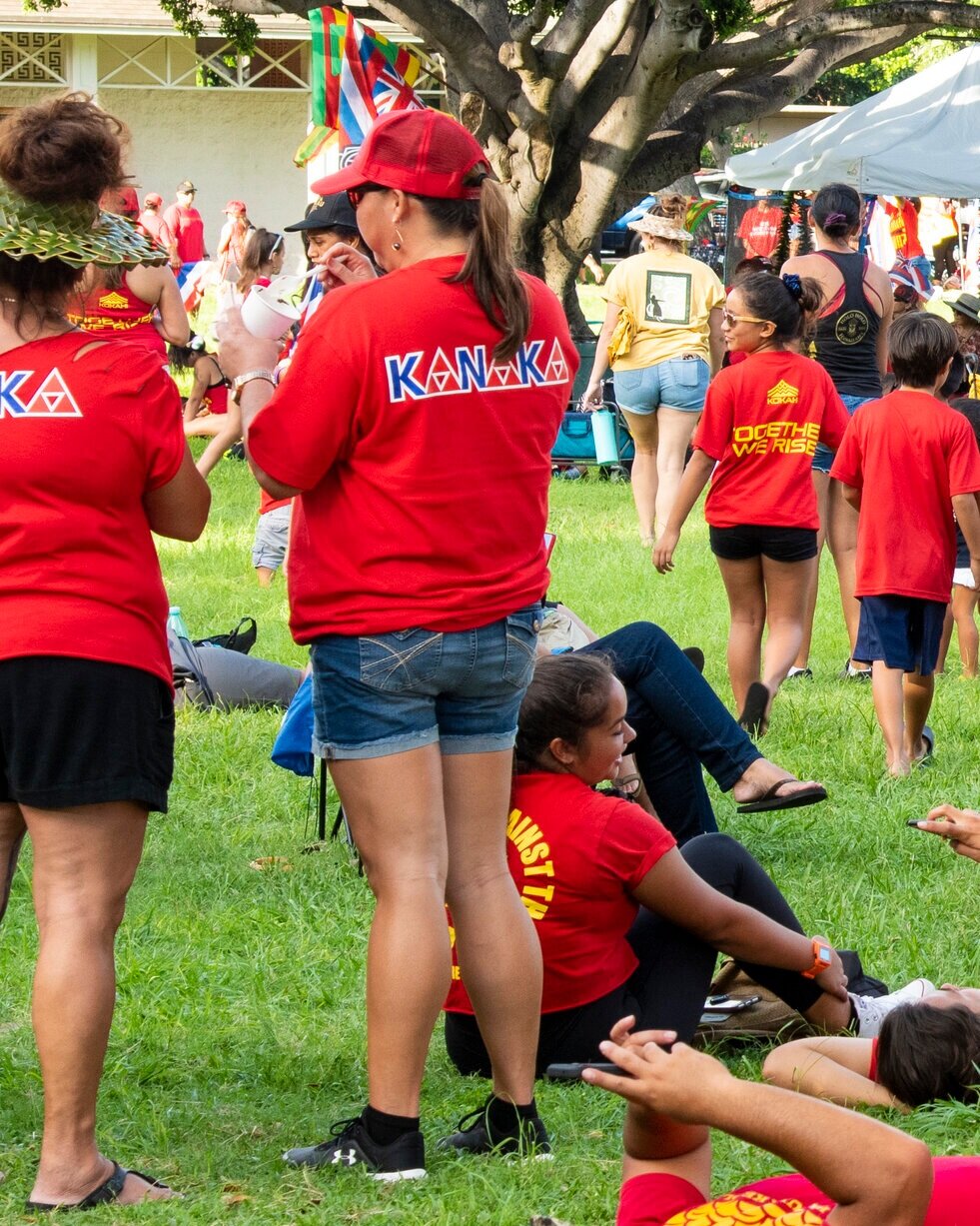
Native Hawaiians call themselves Kanaka Maoli (t-shirts on women standing). They are descendants of the early Polynesians woh arrived in the islands 1500-2000 years ago.
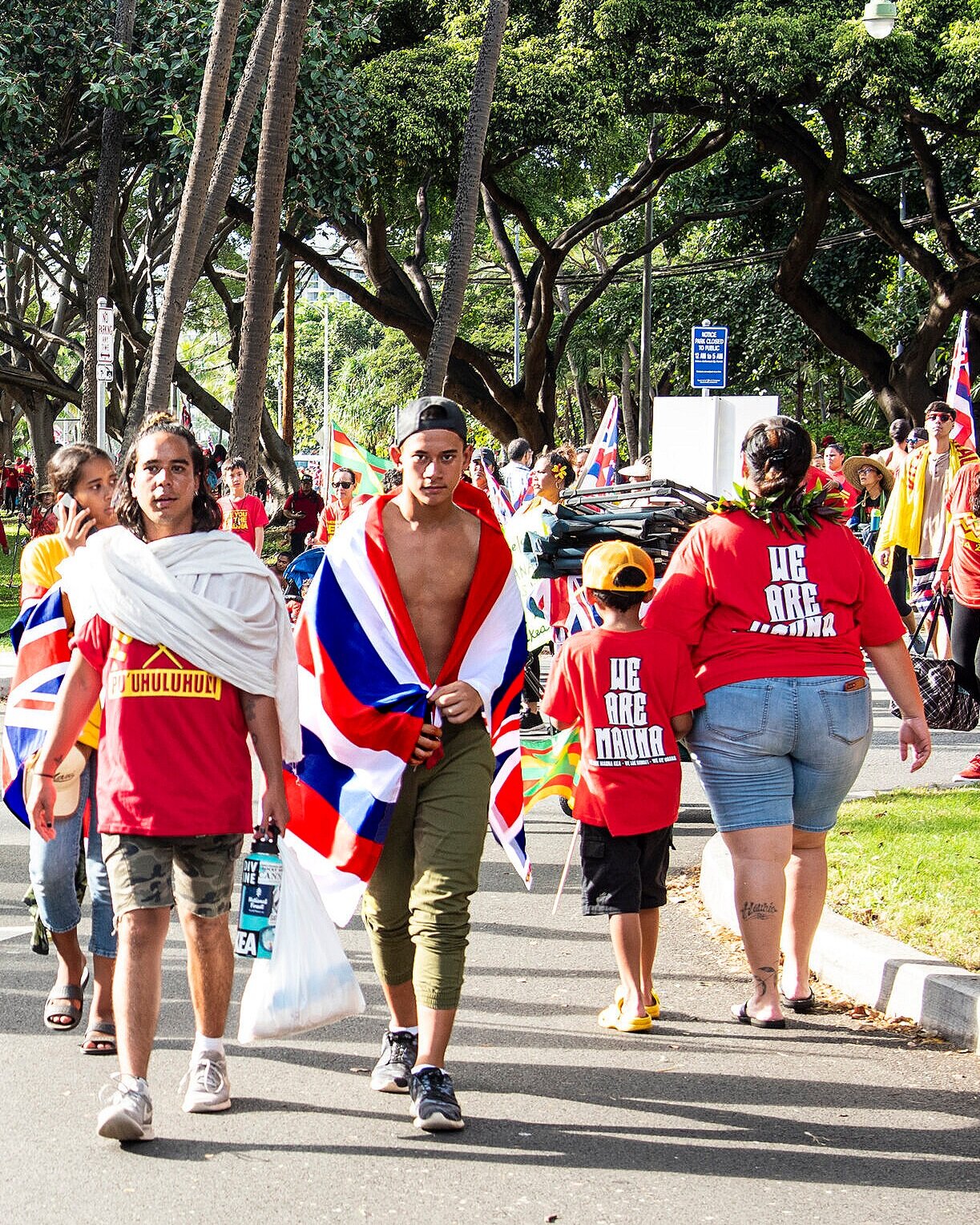
The indigenous Hawaiian cosmology, Mauna Kea is the origin place of the Hawaiian people. The Hawaiian genealogy teaches that the summit of the mountain is the meeting place of Earth Mother, Papahānaumoku, the Sky Father Wākea and that the Hawaiian people are directly descended from this union. Therefore, Mauna Kea is utmost sacred ground; it is the piko (umbilical chord) of Native Hawaiian existence. (Resilience, August 15, 2019)
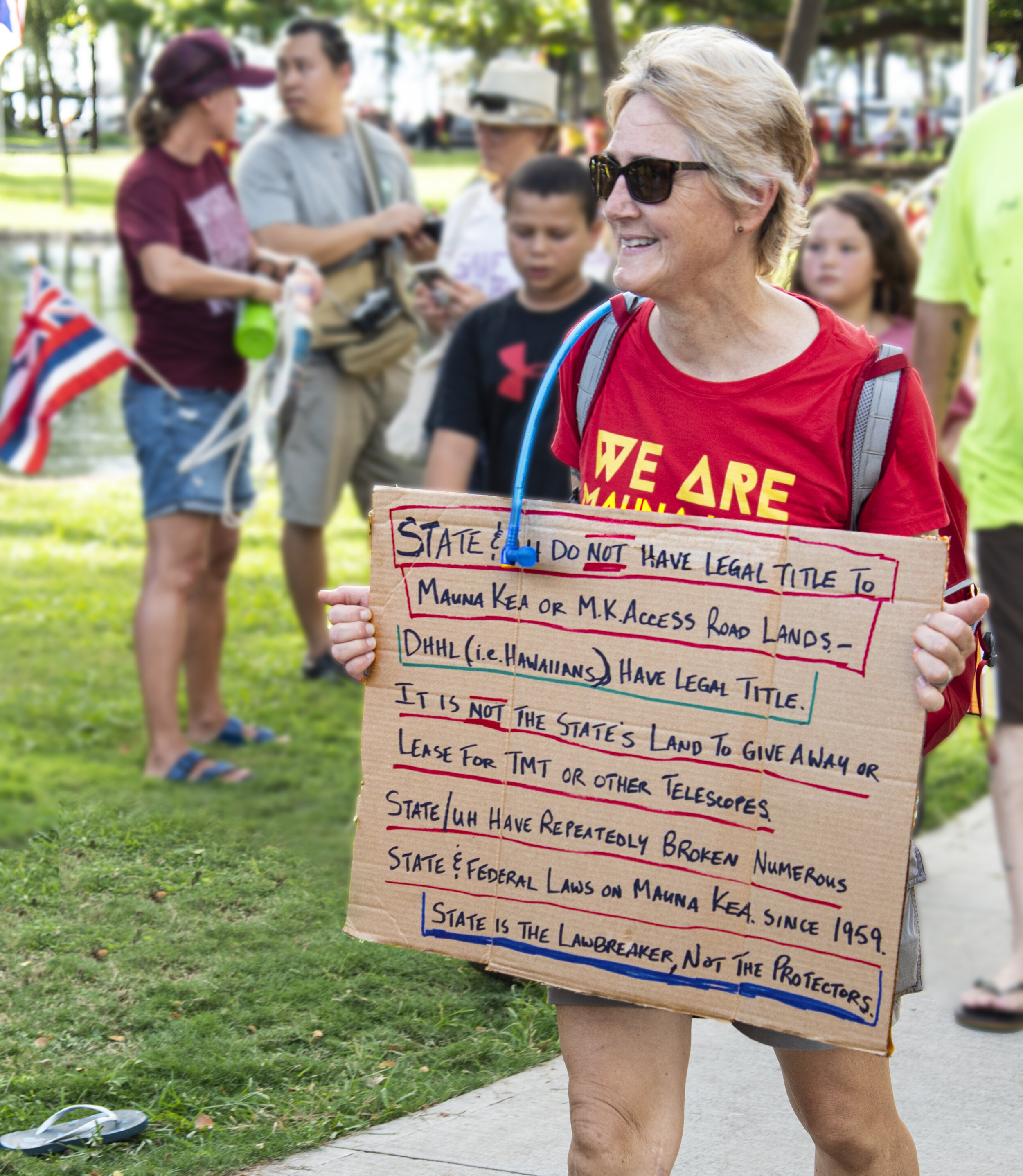
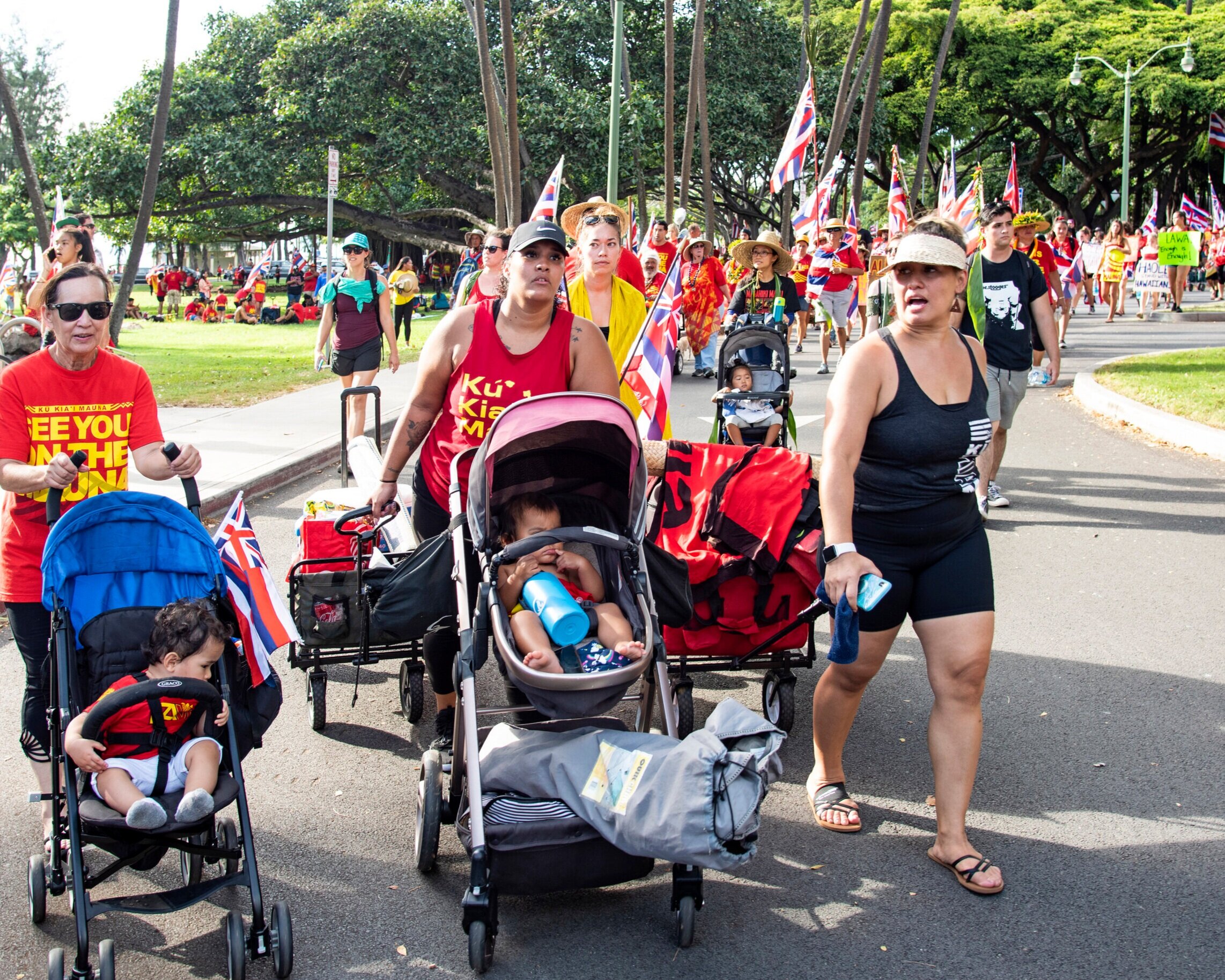

When most of the relatives of the parentsʻ generation were gone, the few left were referred to as hulu mākua and considered as precious and choice as feathers. Hulu can refer to relatives as far back as three generations.
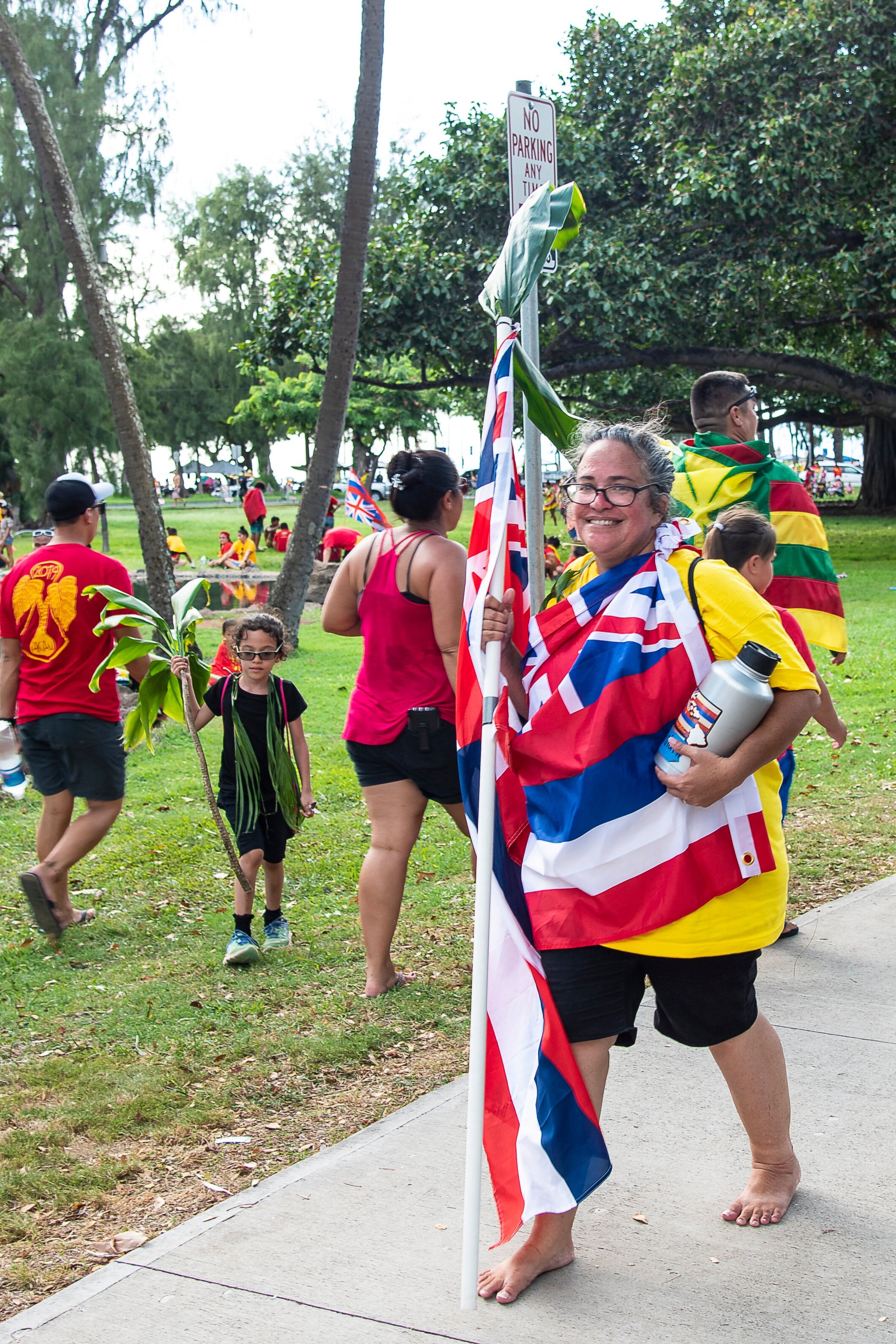
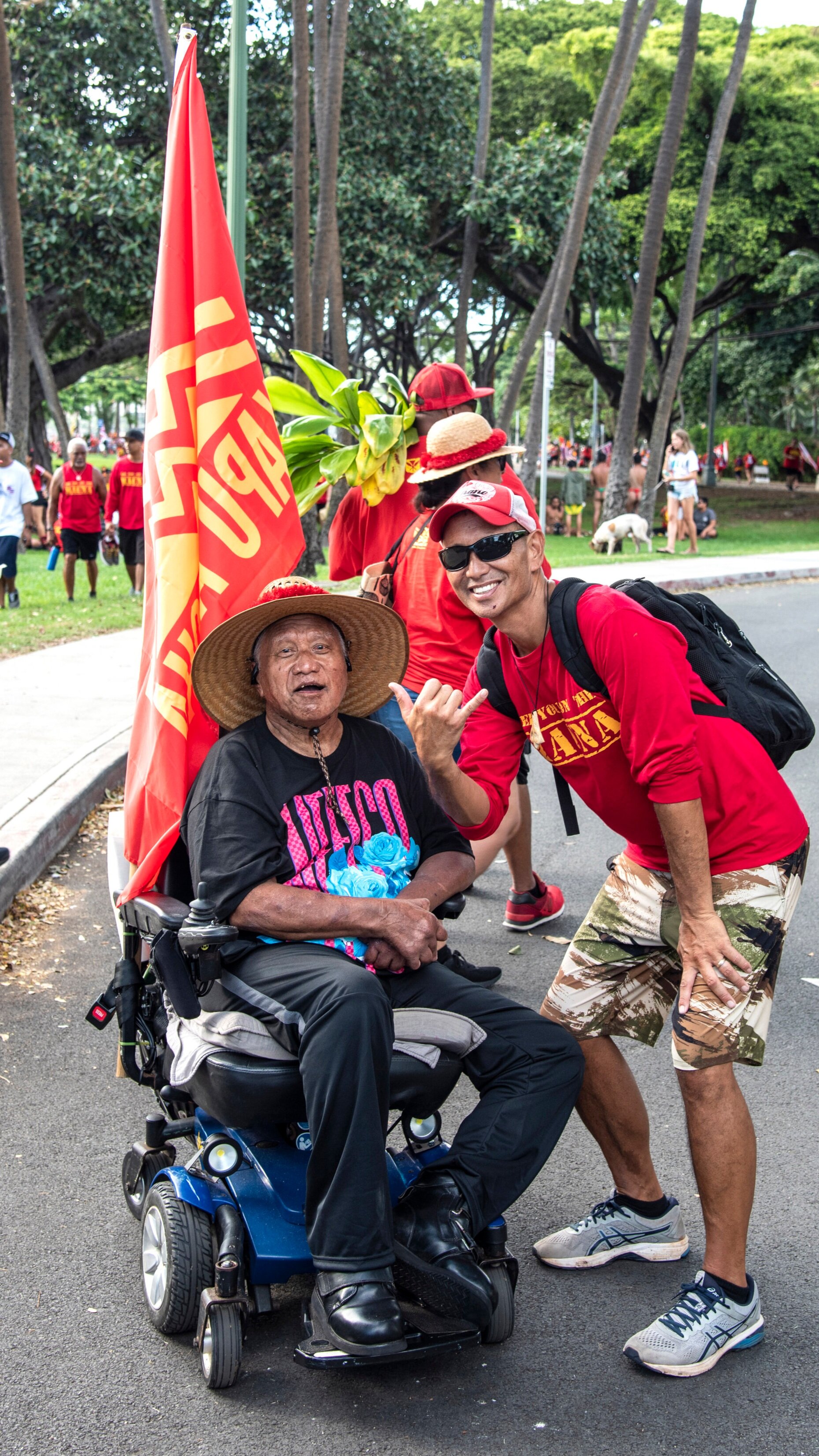
Said of a respected oldster who is well cared for by his family.
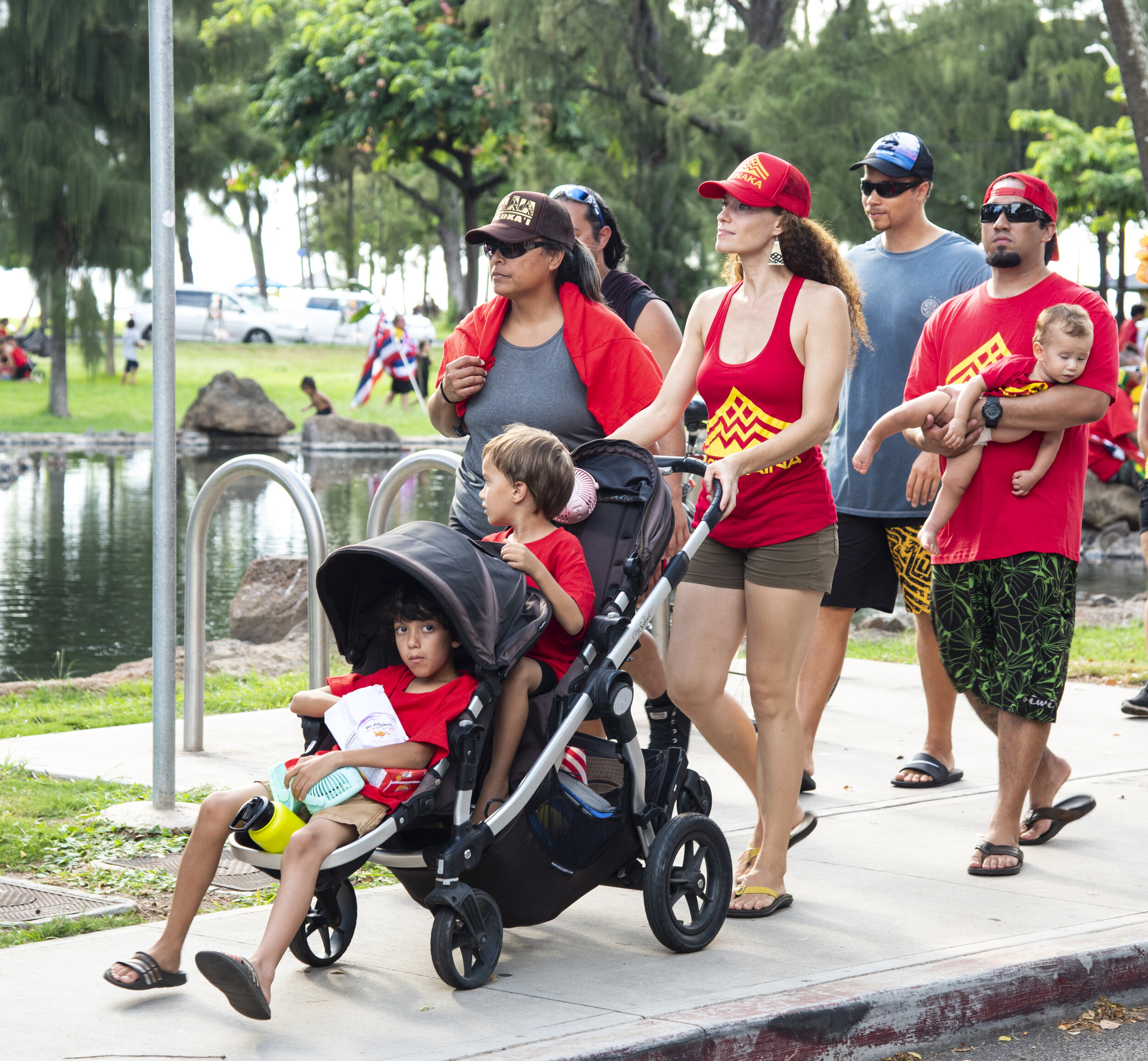
A child requires as much care as a chief.
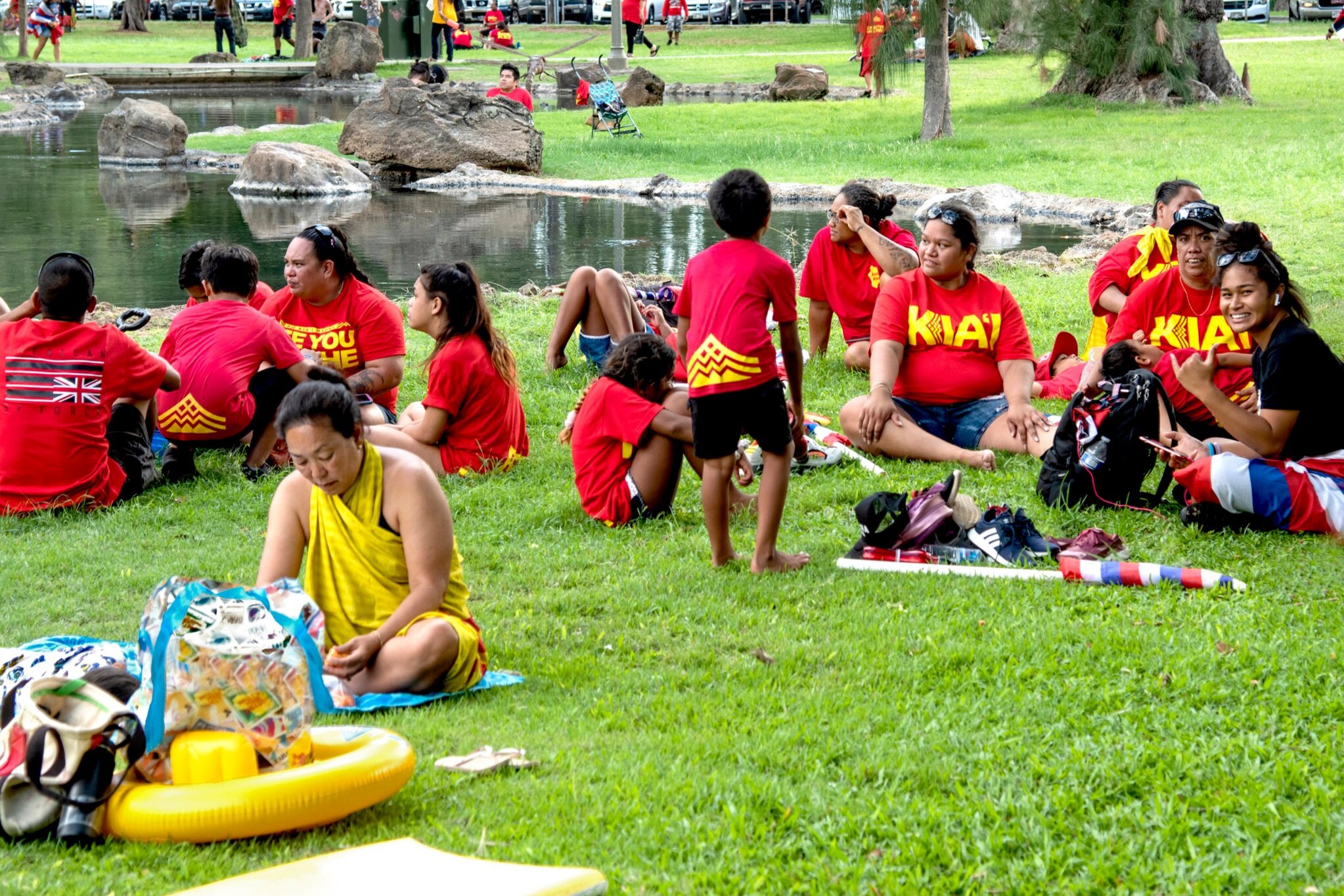
Of the same origin, kinfolk will seek and love each other.
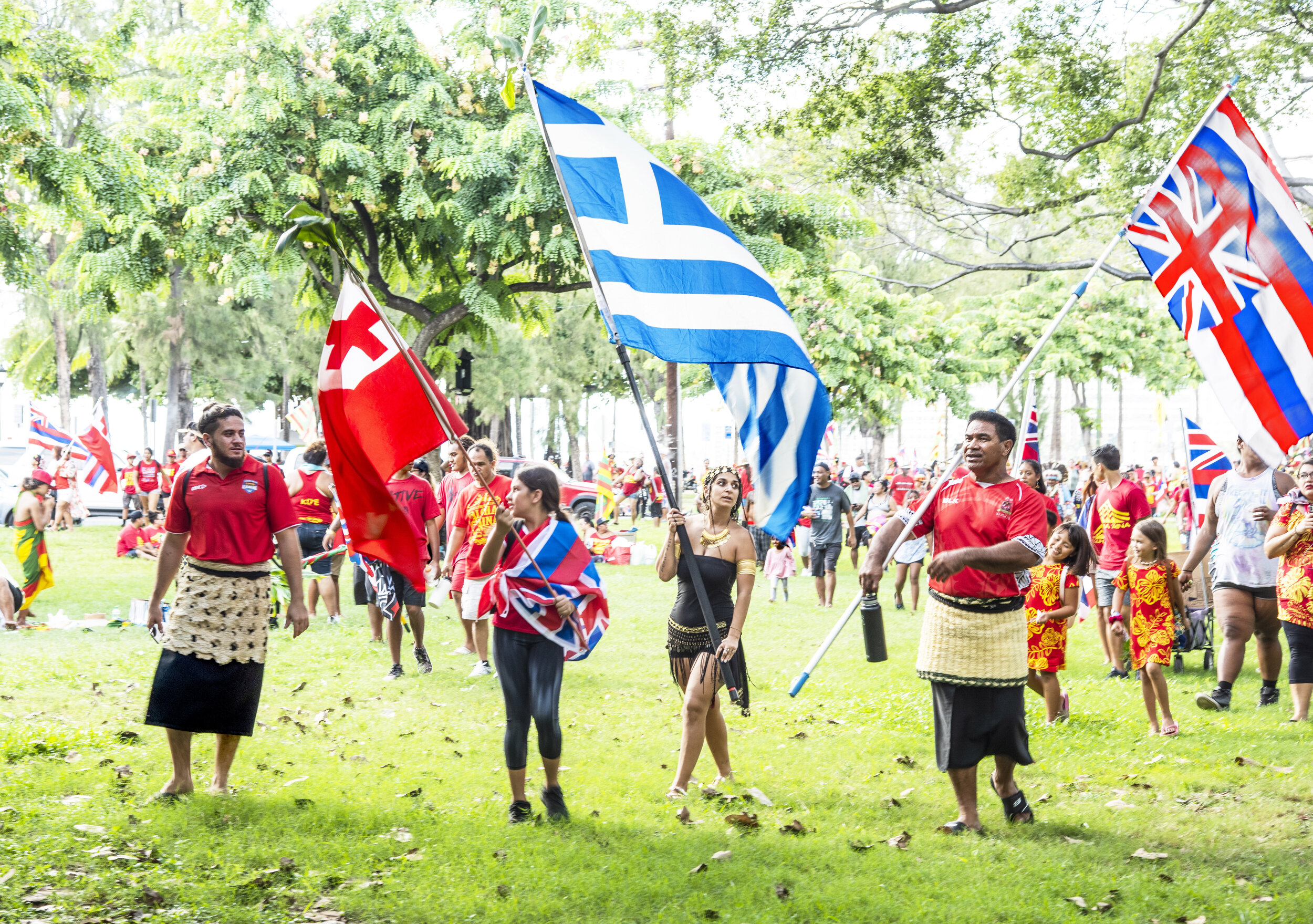
Let all travel together like water flowing in one direction.
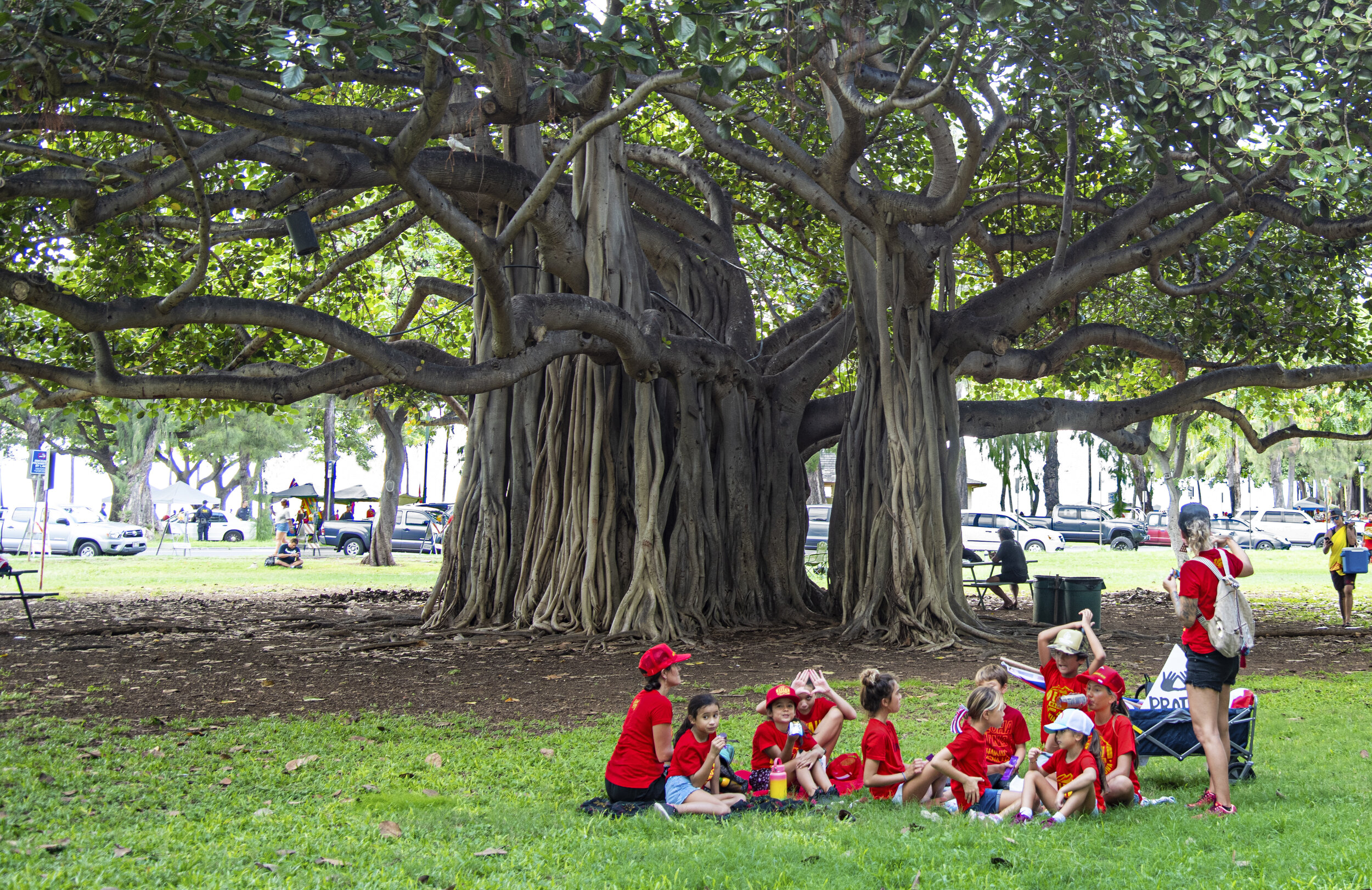
Without our ancestors we would not be here.

Love is imperative to oneʻs mental and physical welfare.
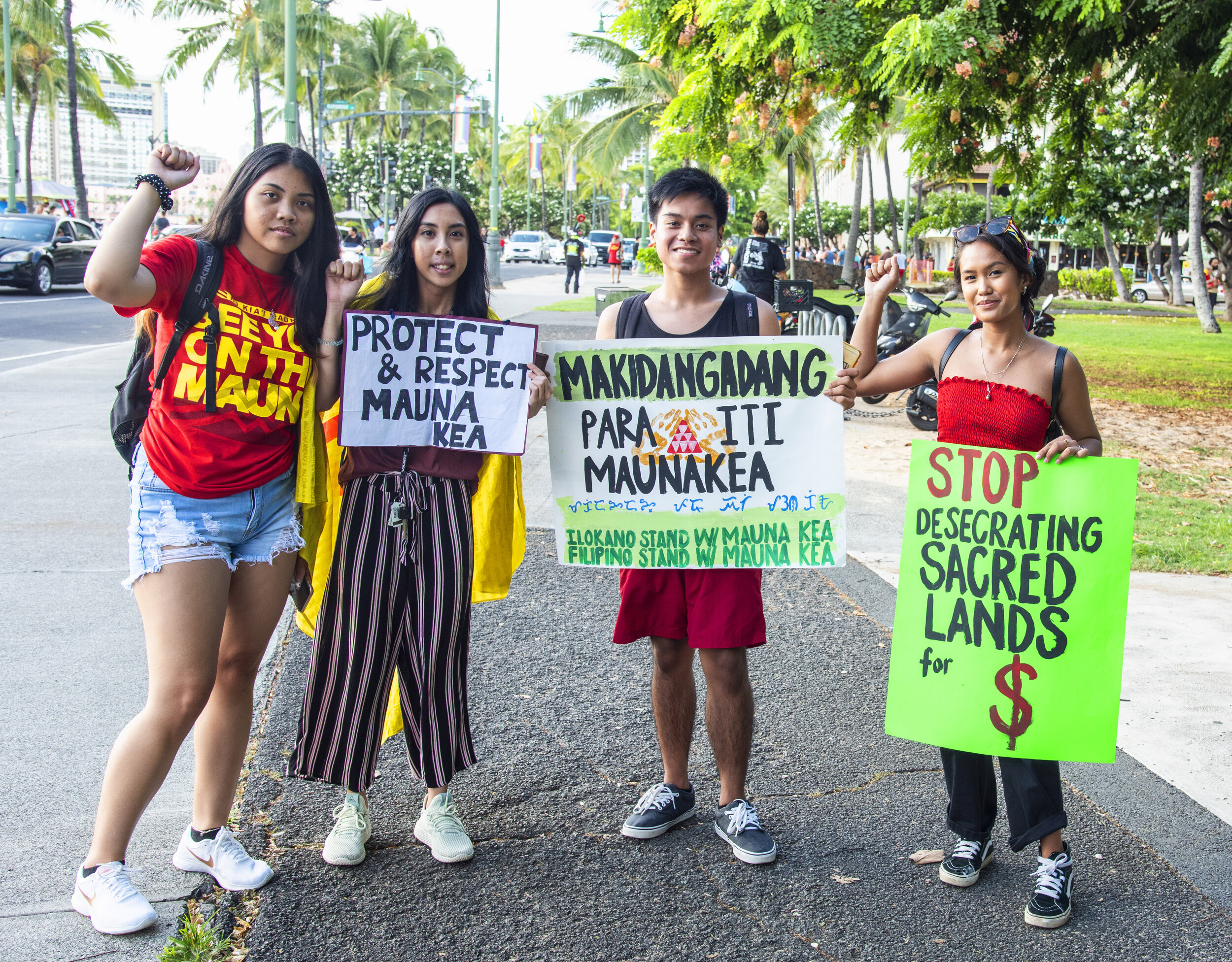
Land has no need for man, but man needs the land and works it for a livelihood.
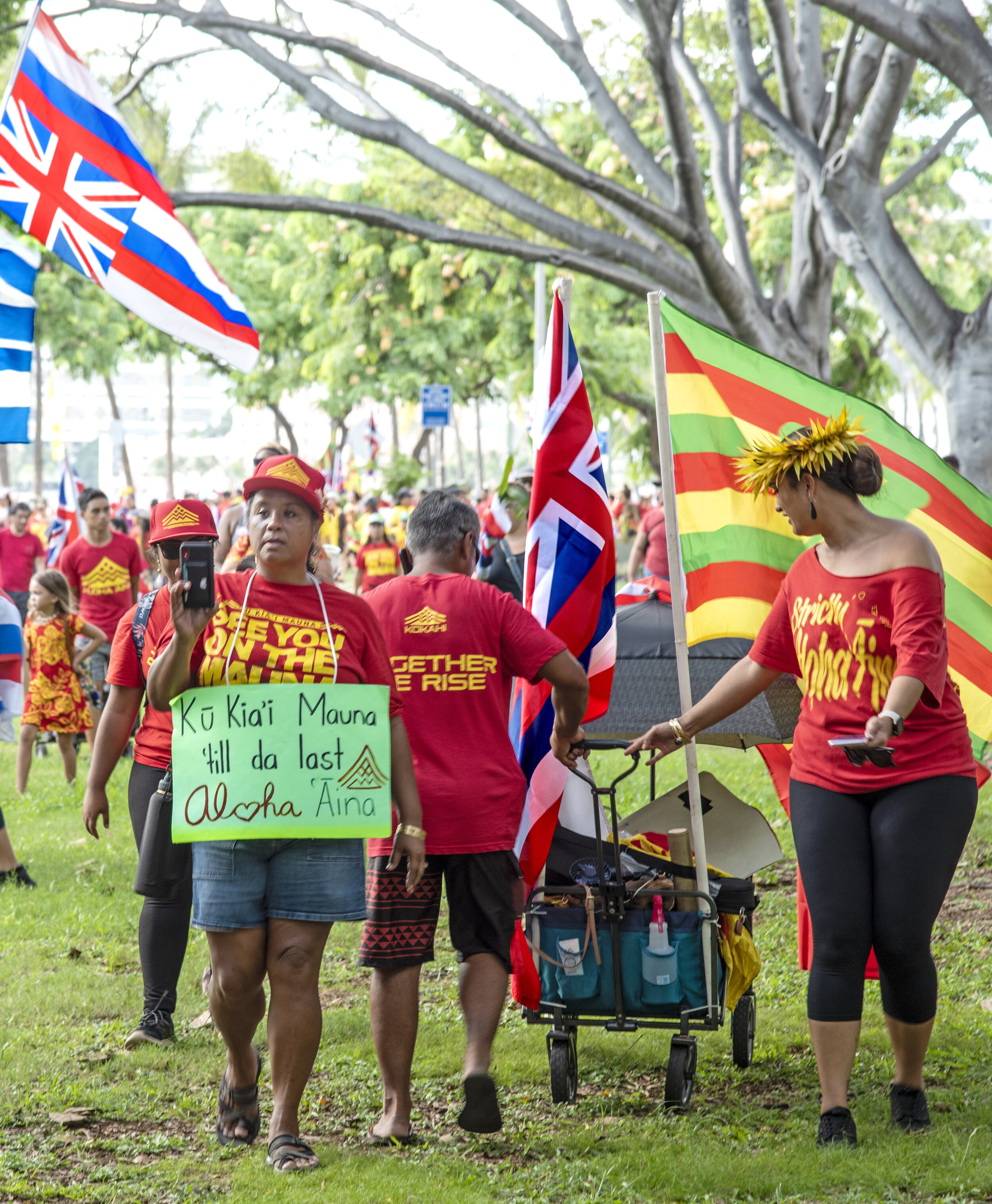
No problem is too great when one tries hard to solve it.
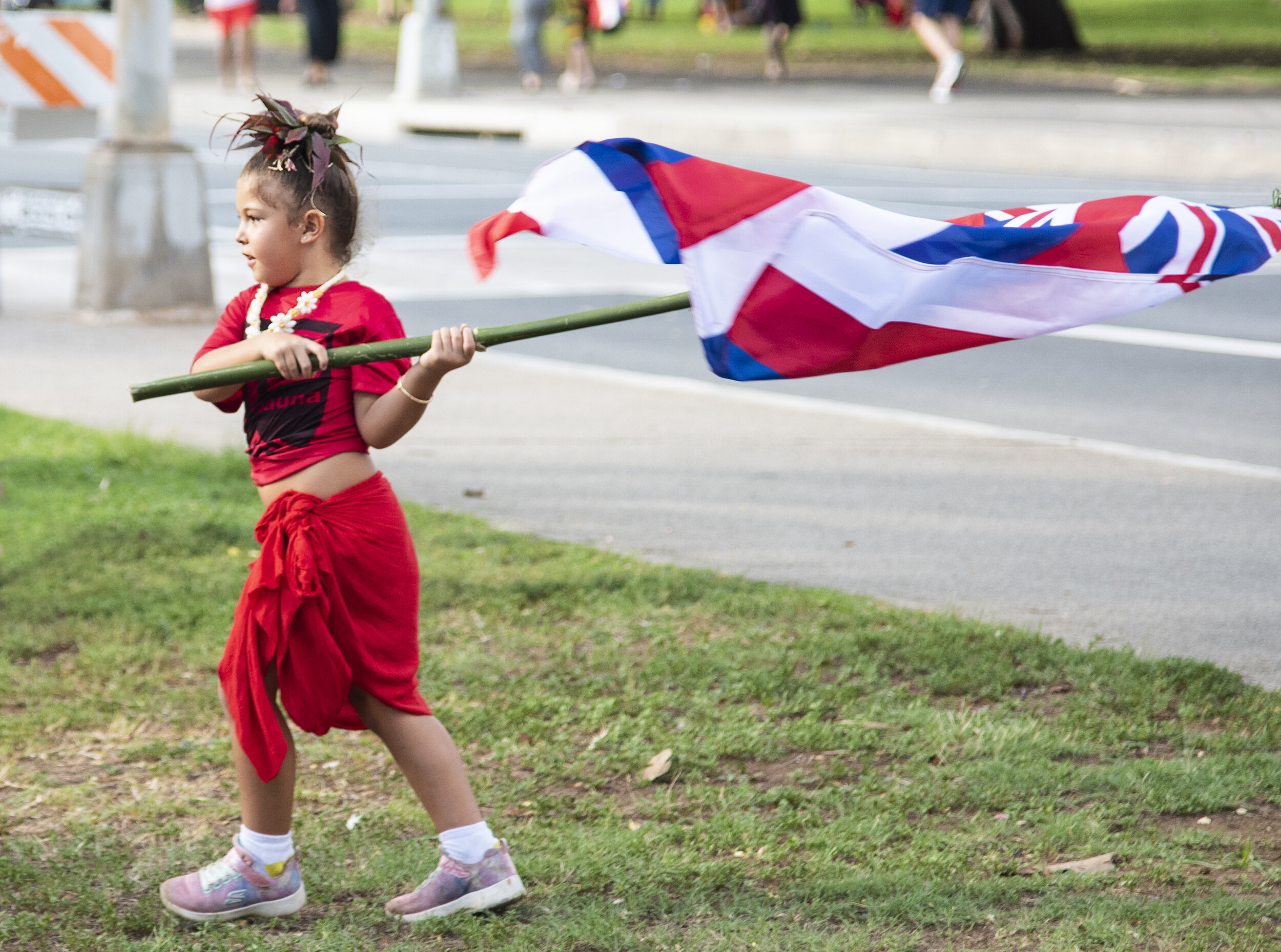
Never belittle anyone because of his small body; he may be able to do big things.

Parents are often judged by the behavior of their children.
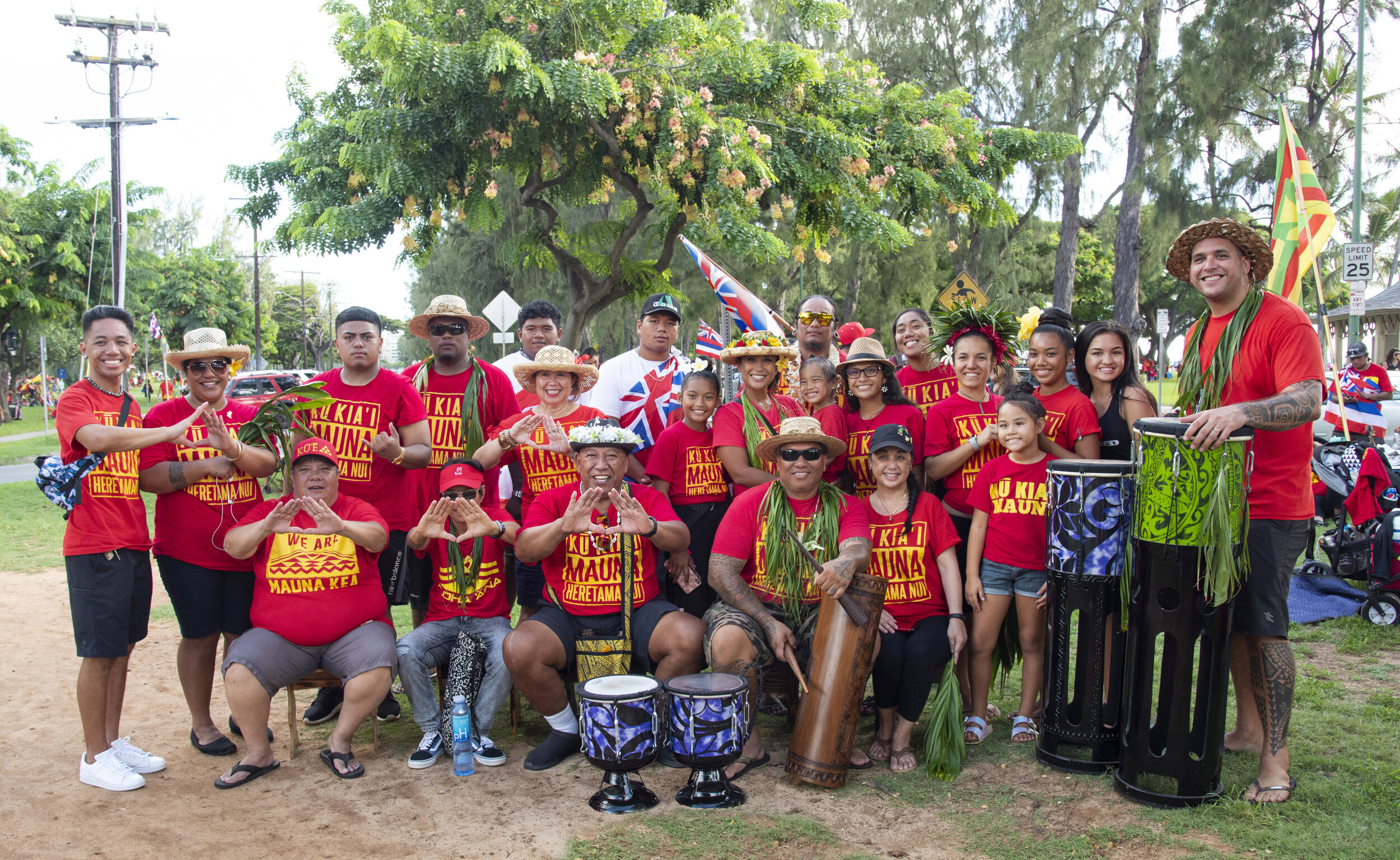
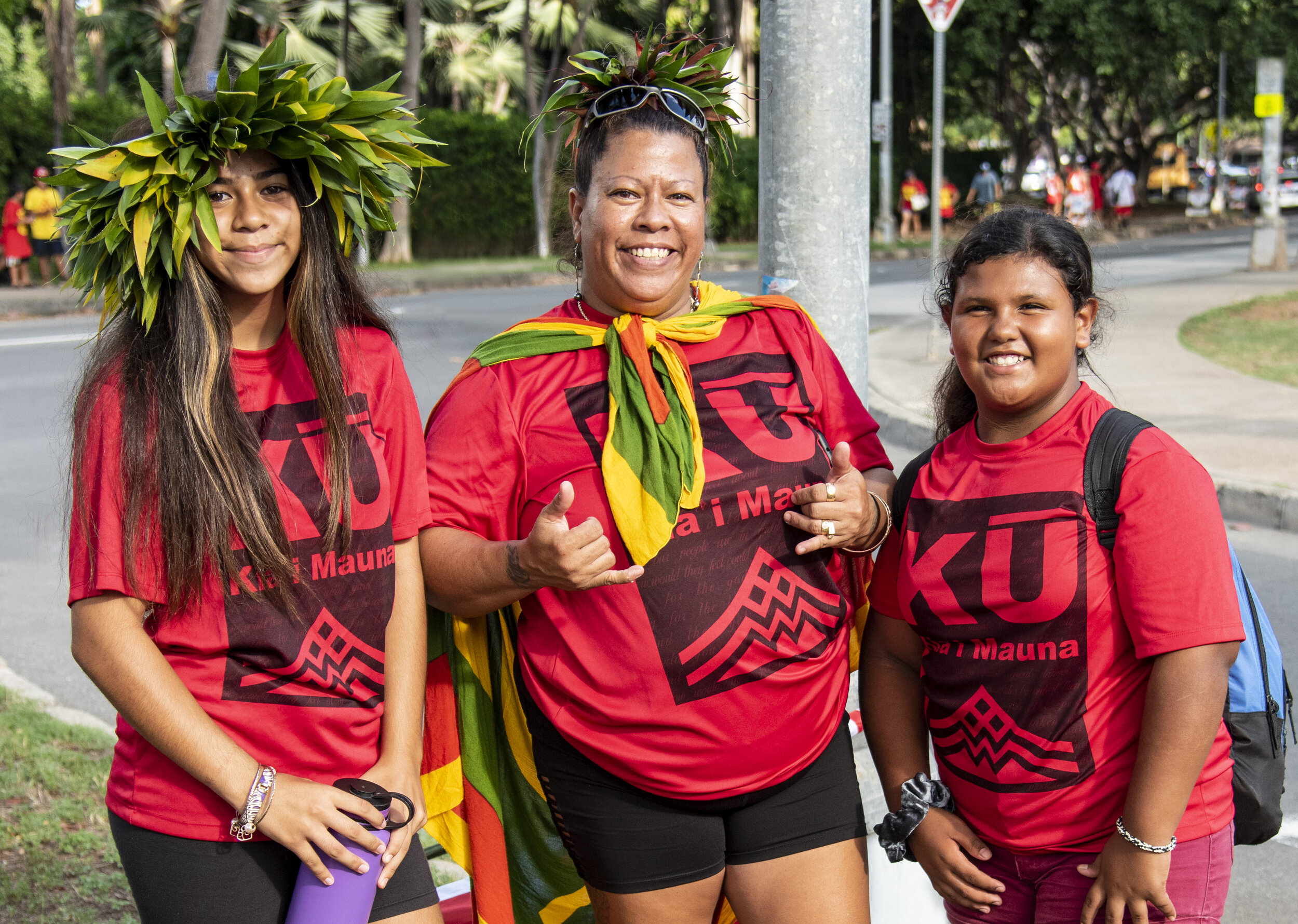
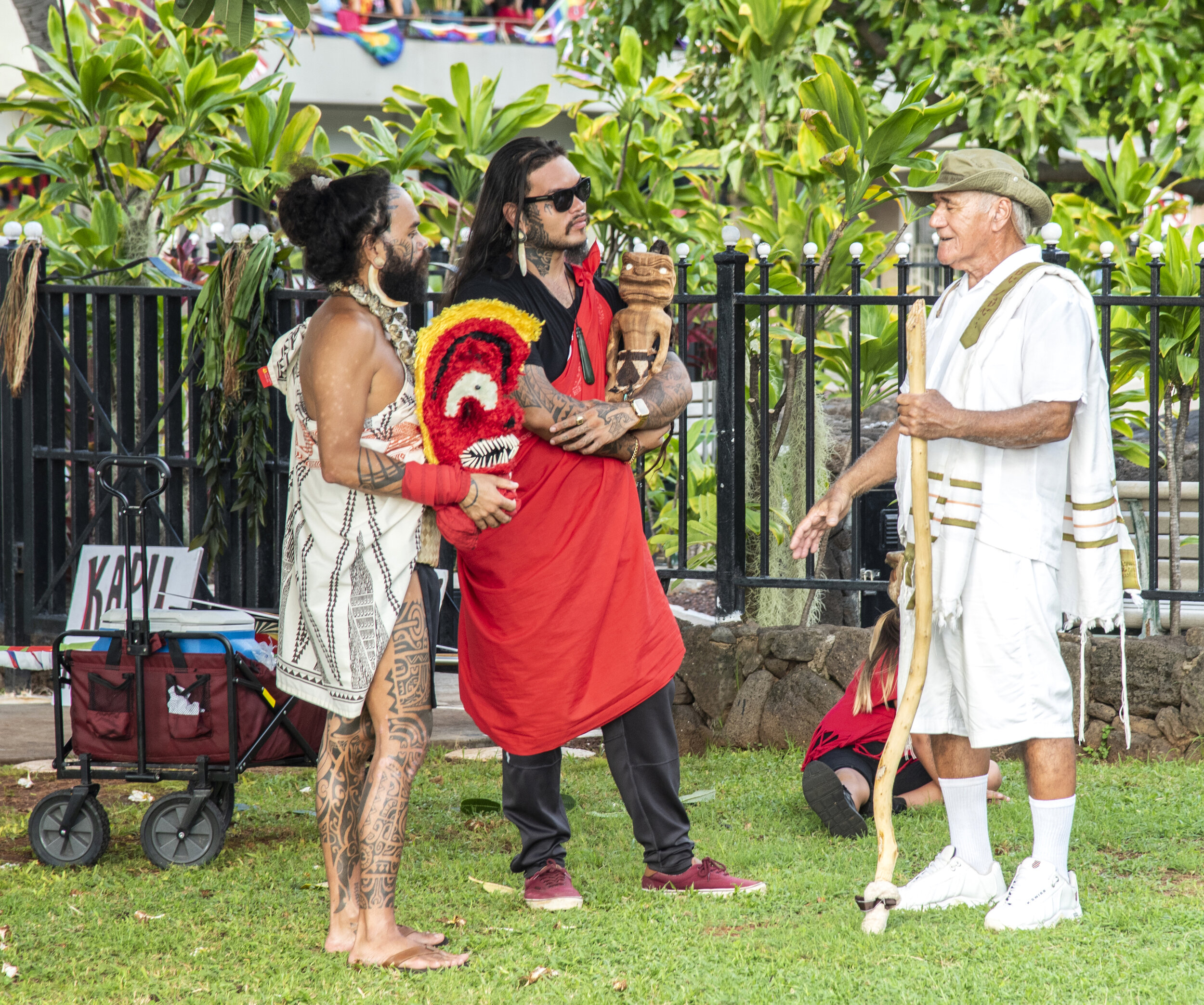
One can learn from many sources.

While there is earthly life (ola honua), do all you can.
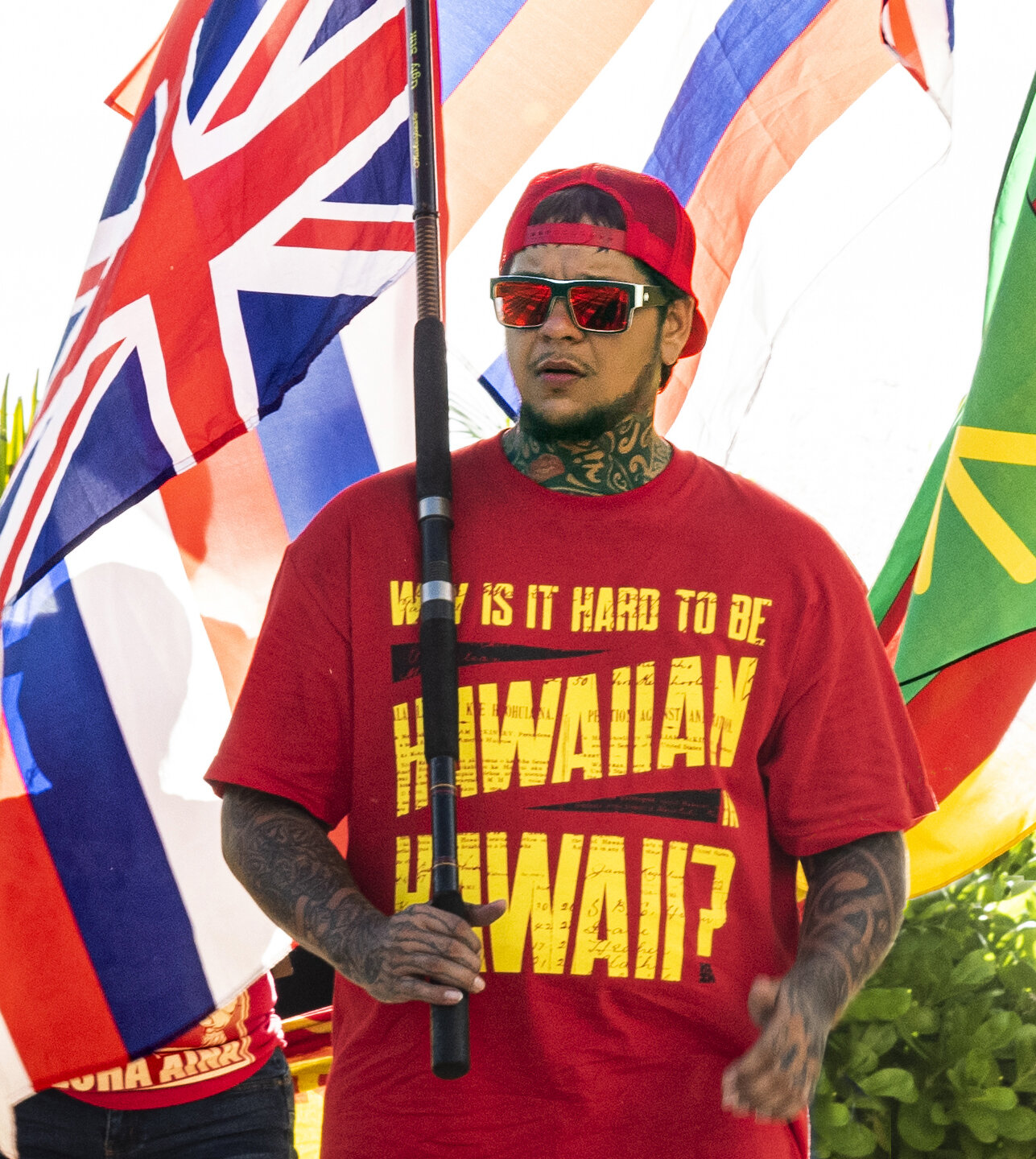
One has seen the right thing to do and has done it.
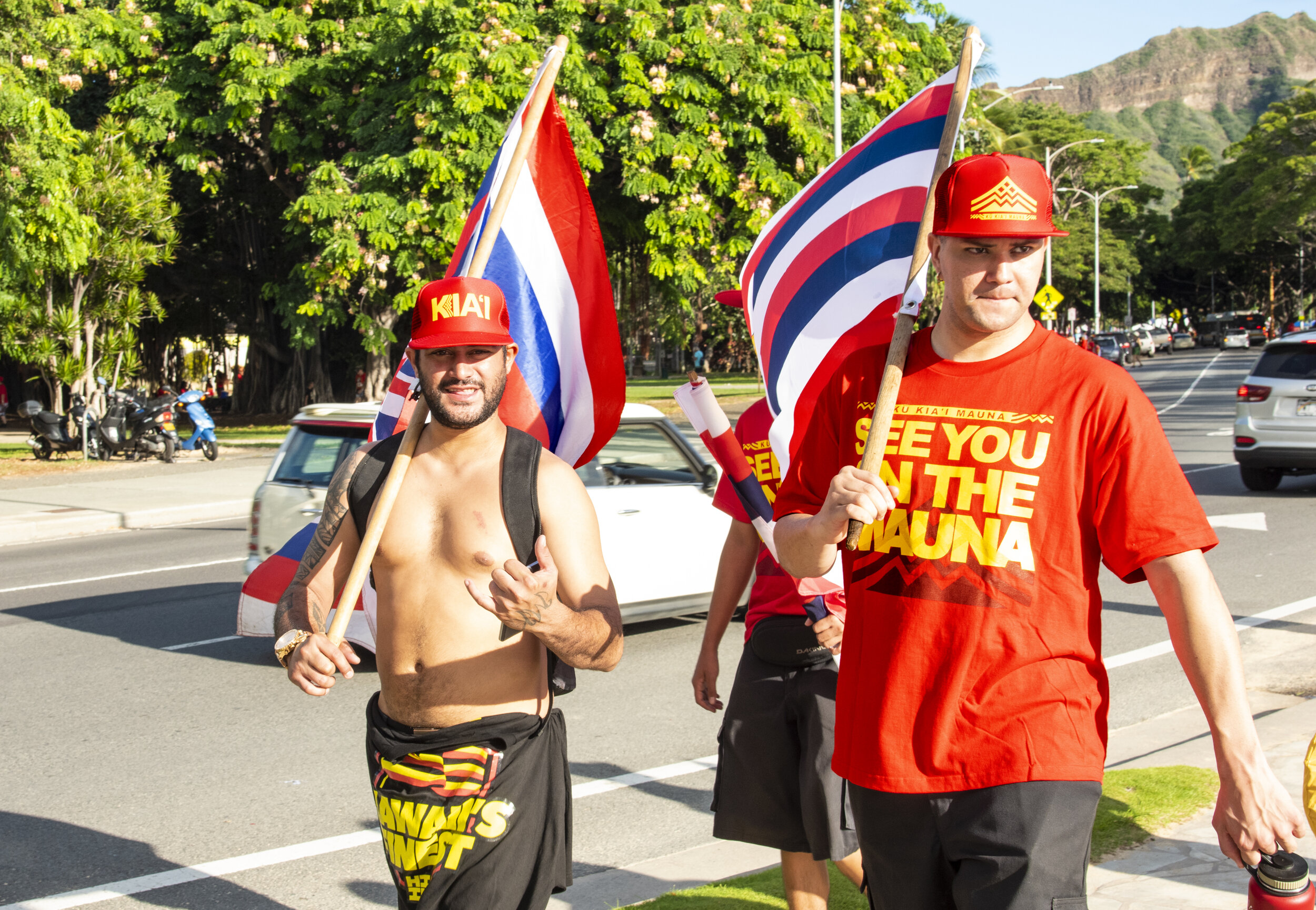
Kiaʻi went to Maunakea to protect it from the building of the Thirty Meter Telescope.
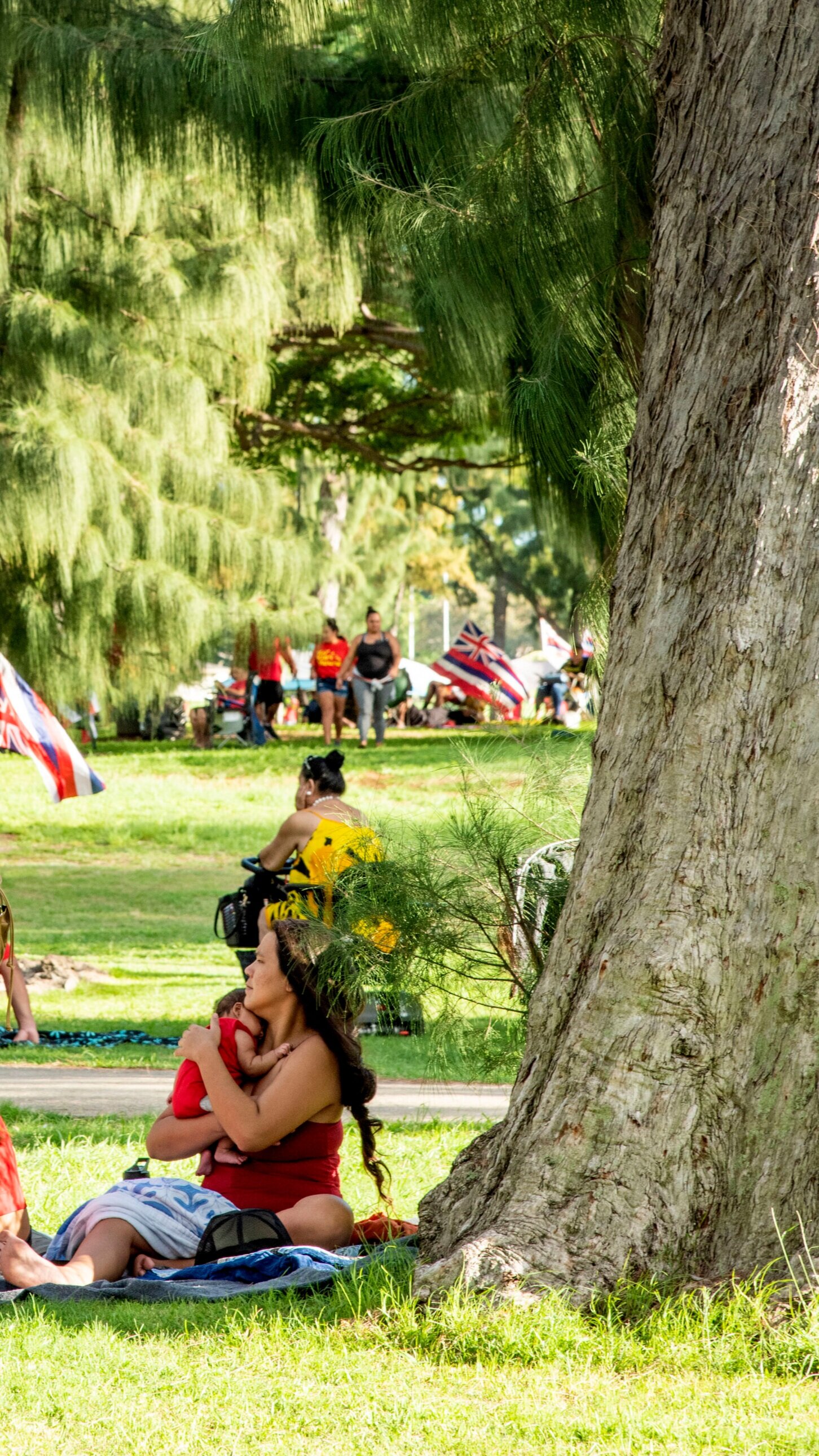
Love comes to all.
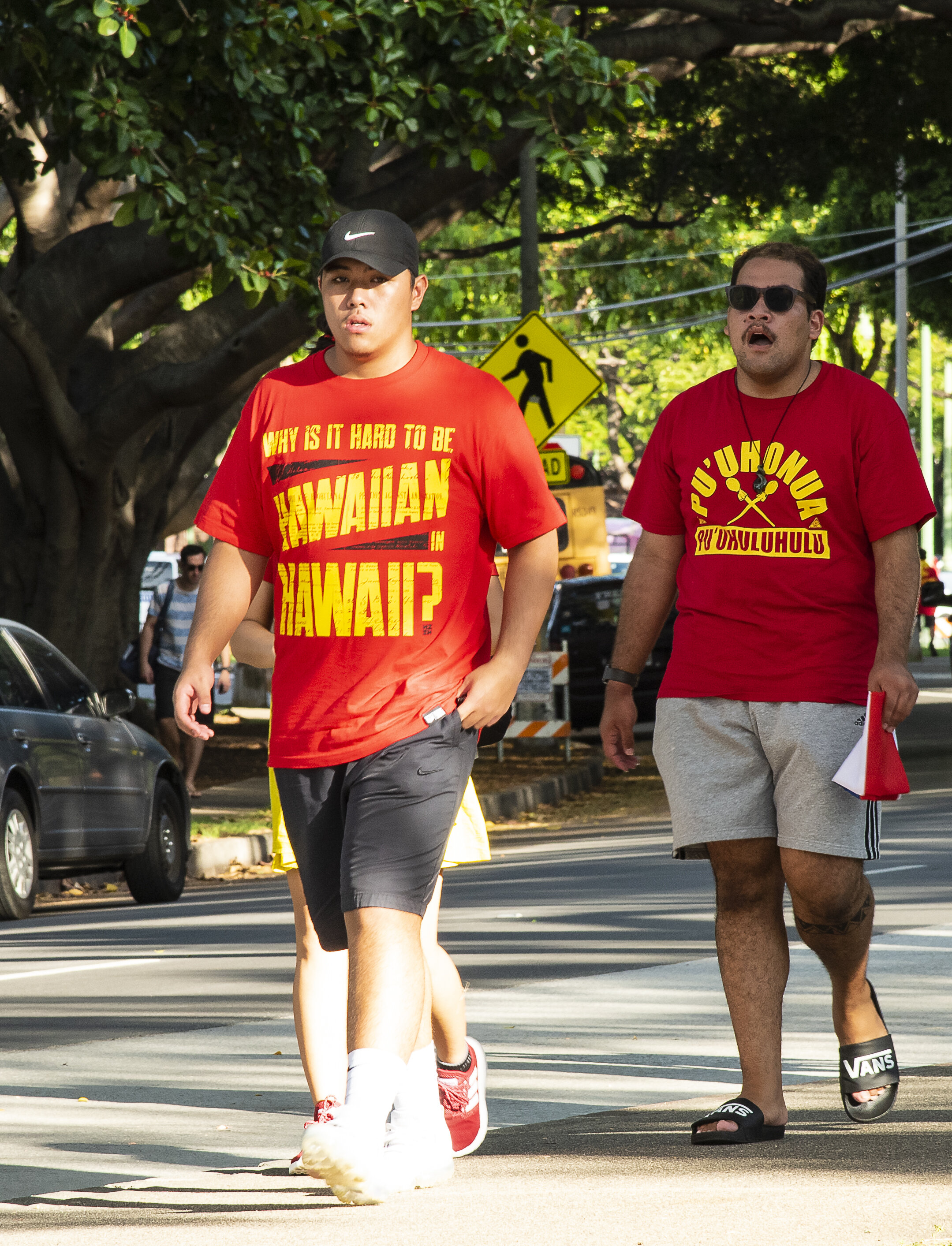
July 13, 2019, the Royal Order of Kamehameha I, in collaboration with, and in support of the kiaʻi (protectors) of Maunakea designated and established Puʻu Huluhulu, at the base of Maunakea, as a Puʻuhonua, or place of refuge to ensure the safety of all people gathering to protect Maunakea from further desecration and destruction by the proposed Thirty Meter Telescope.
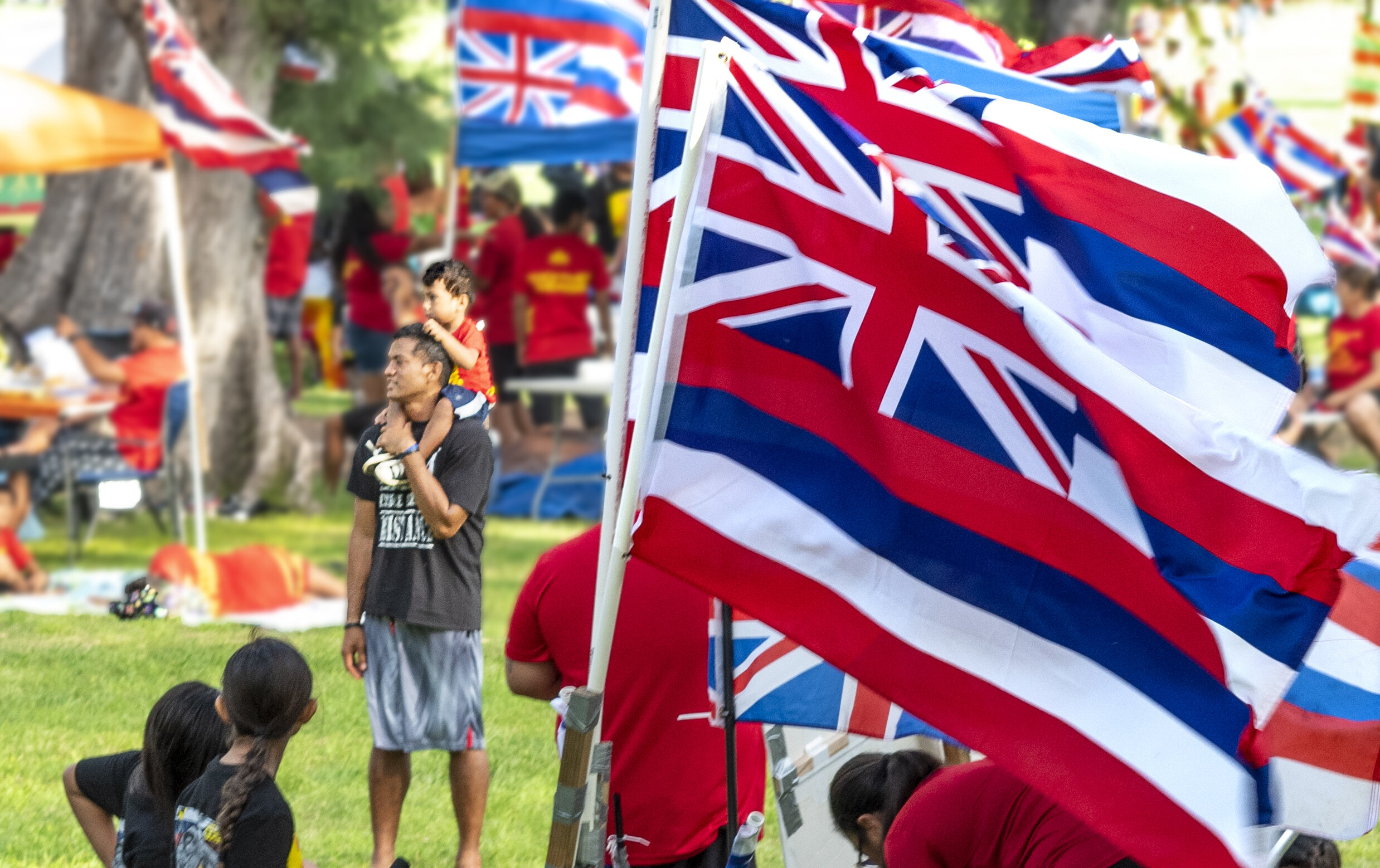
In teaching, do it well; the small details are as important as the large ones.
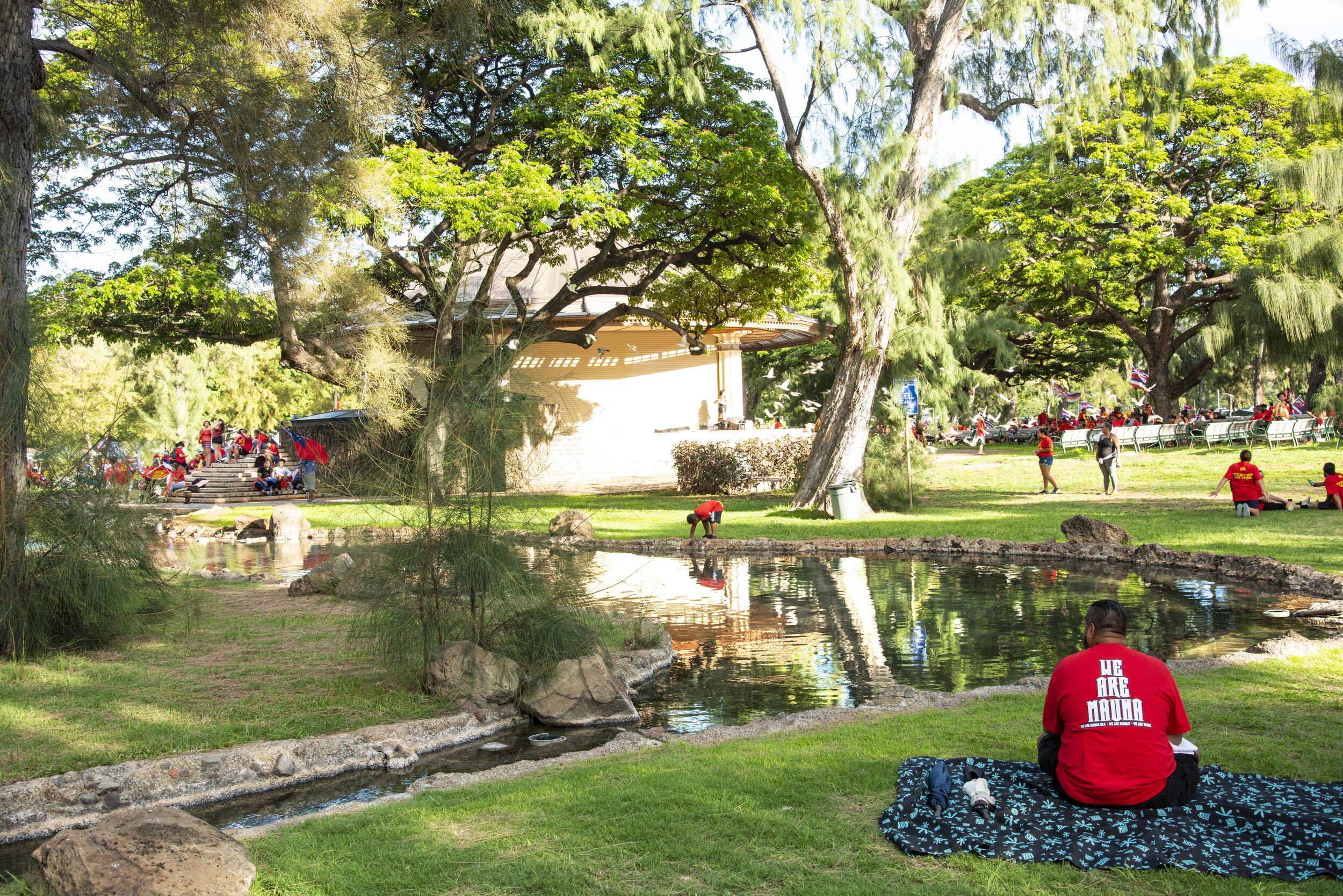
Do not stir up contention when all is peaceful.
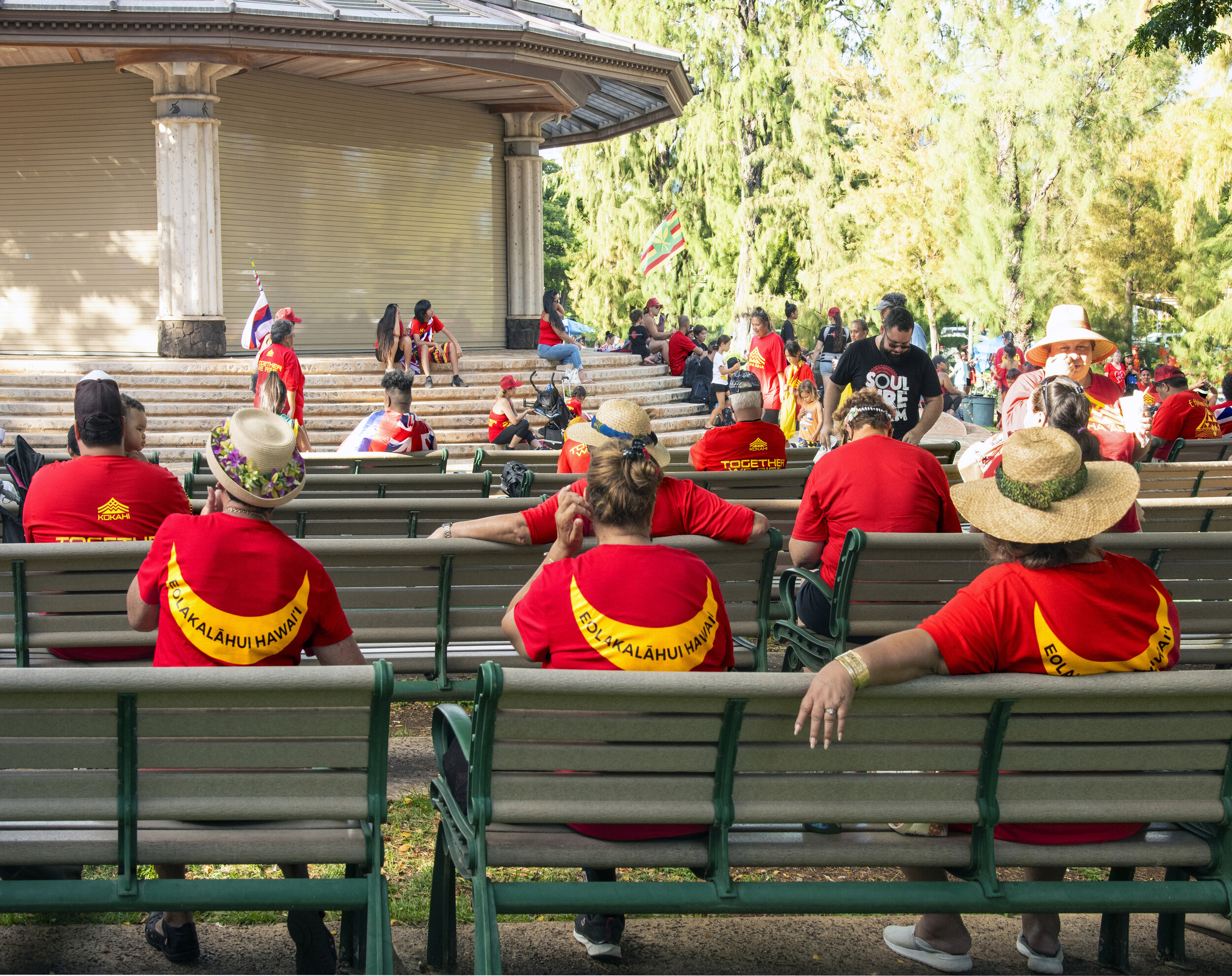
Members of Ka Lahui Hawaiʻi, a native Hawaiian initiative for self-determination, relax on the shaded benches of the Kapiʻolani Park bandstand during the Aloha Unity Rally in support of the protest against the building of the Thirty Meter Telescope on Mauna Kea.
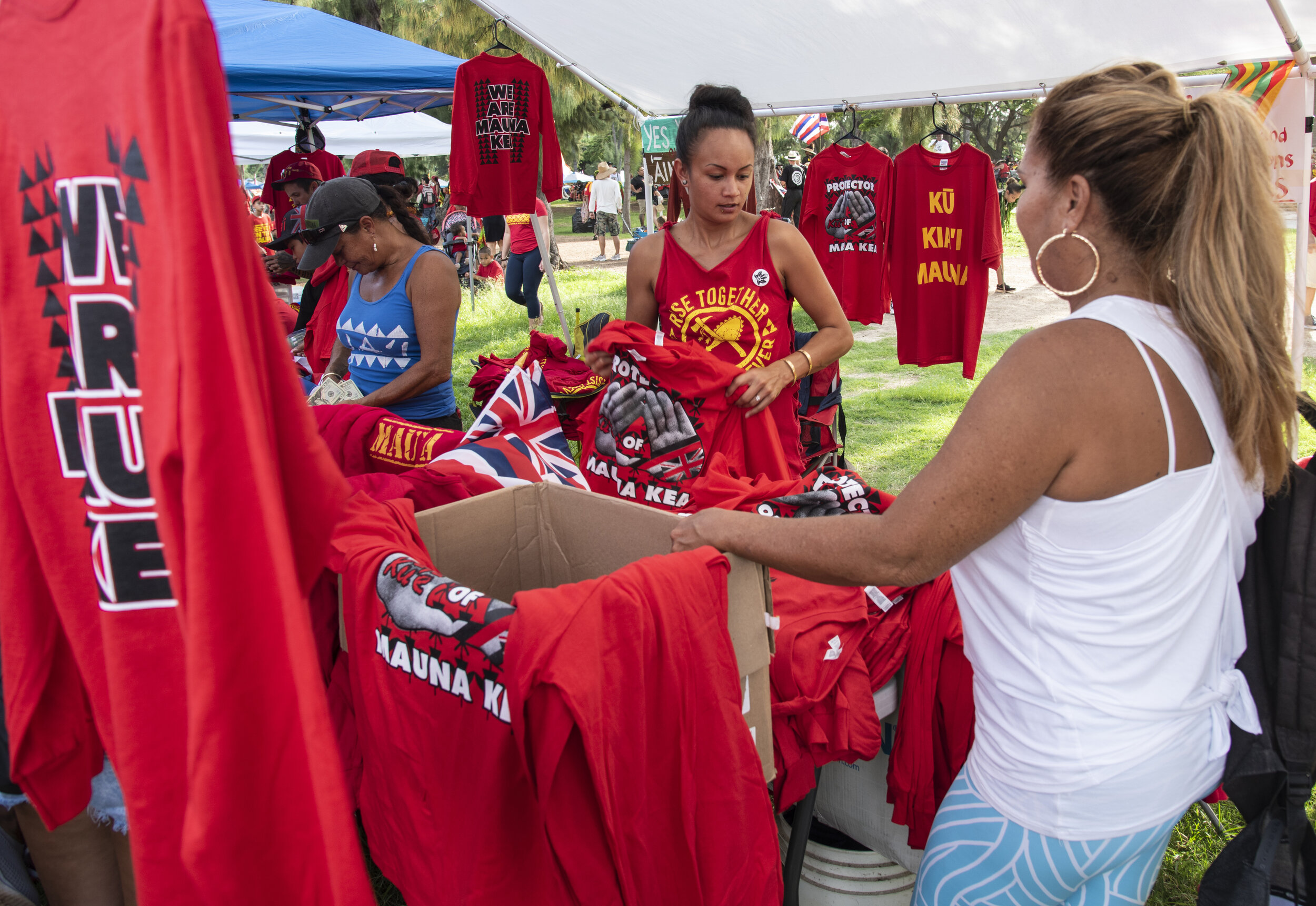
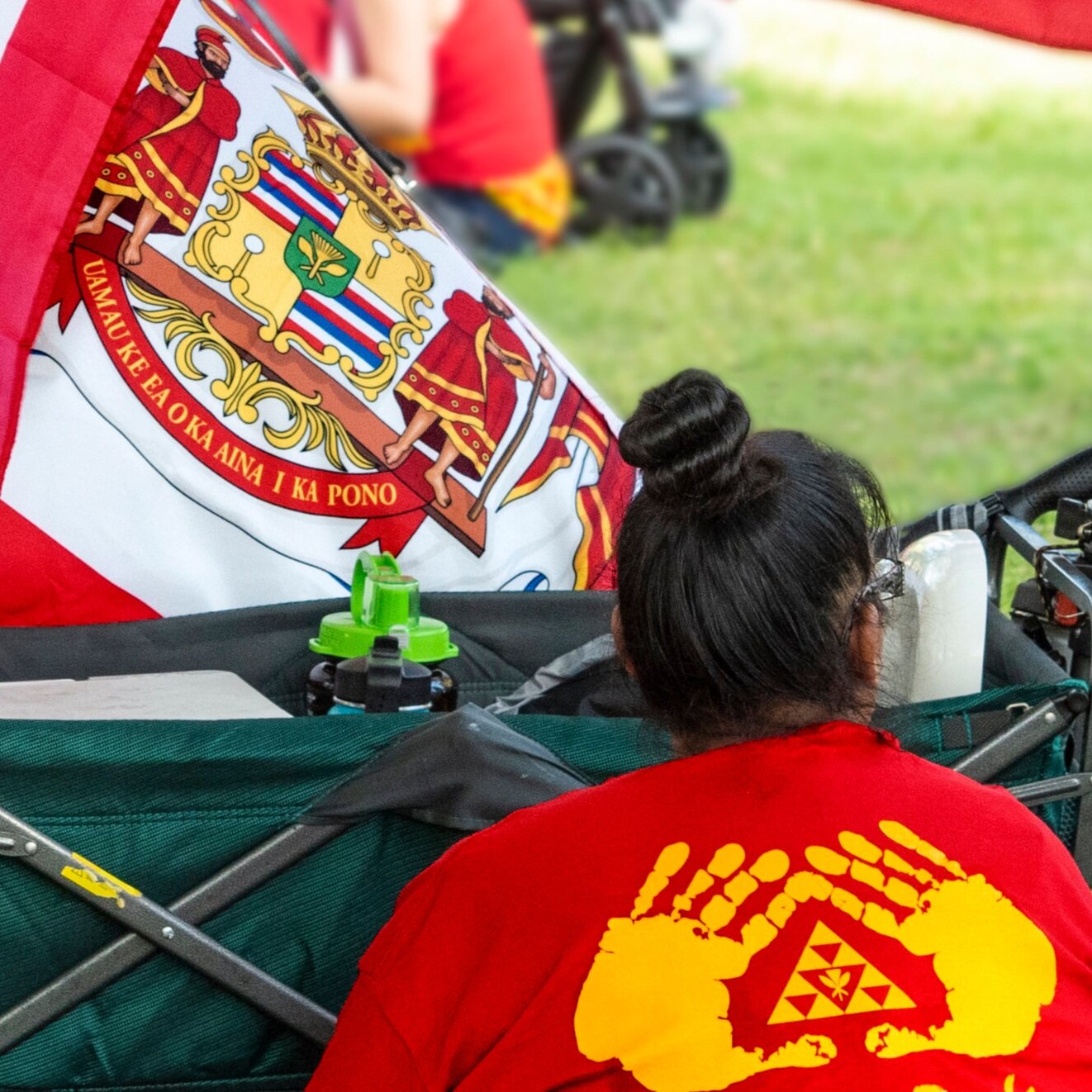
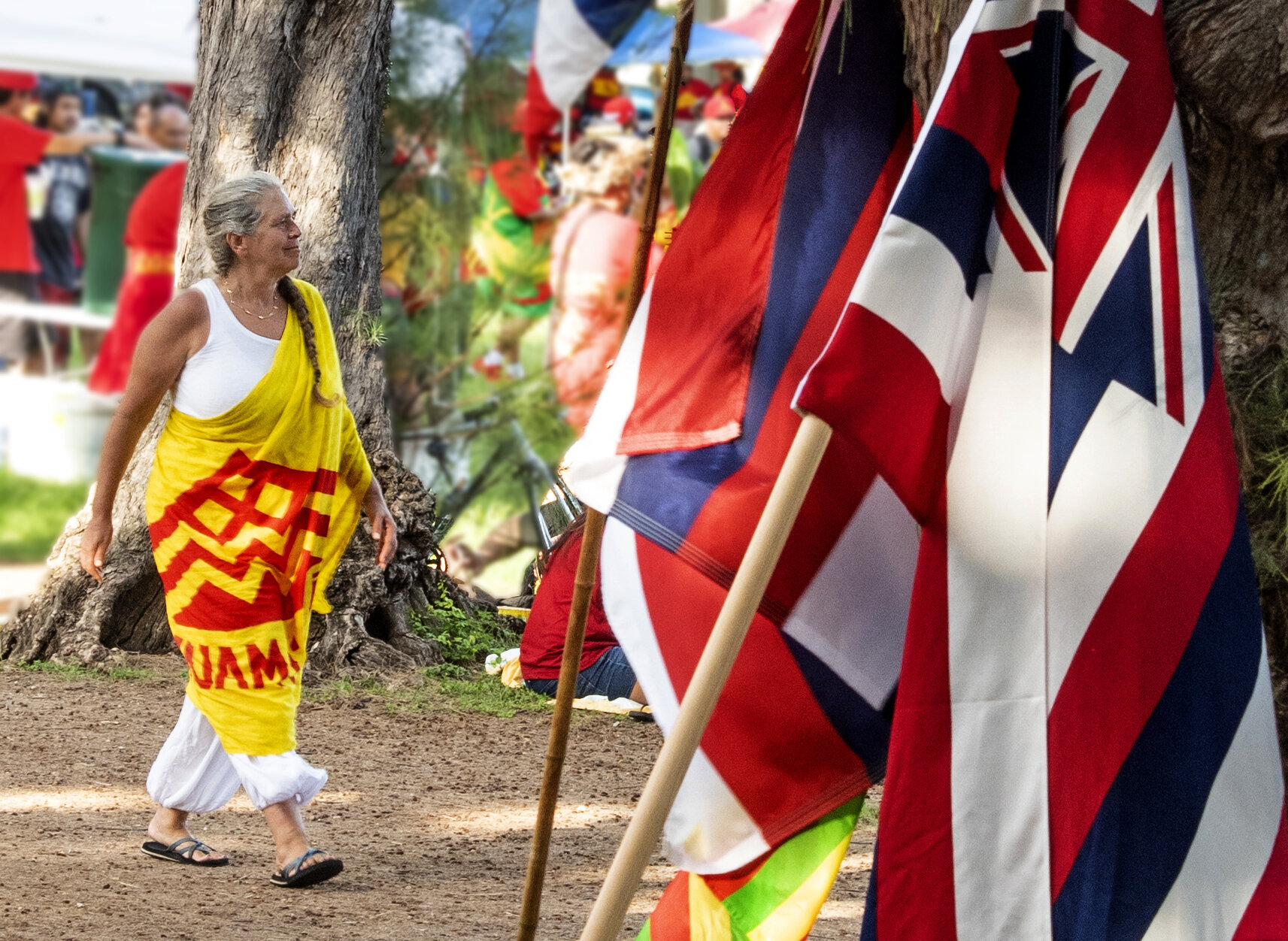
A compliment to an elderly woman. Her beauty still remains.

All the same; harmonious; in unity.
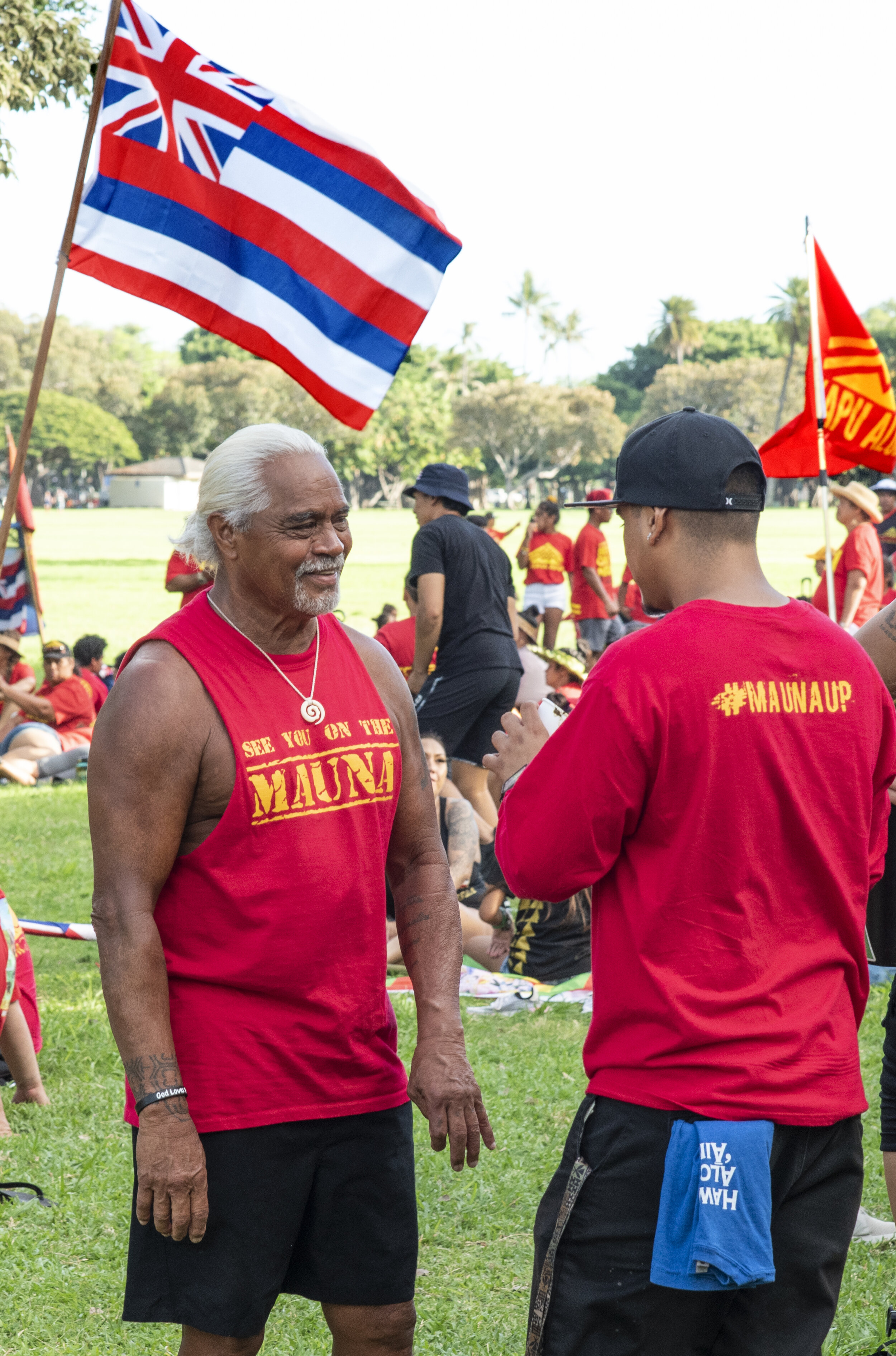
Used in reference to a person who grays, comparing him to a blooming kukui tree laden with white flowers.
![ʻAʻohe ipu ʻōpio e ʻole ka mimino i ka lā. [No immature gourd can withstand withering in the sun (without care)].](https://images.squarespace-cdn.com/content/v1/567de29d841abaa3c9152fbd/1613454286272-F7JAH5AT6NQWRXGI7EEQ/SSL_3663_This+Is+Our+Home_crp_sm.jpg)
No child can get along without adult supervision.

Said of a great crowd of people.
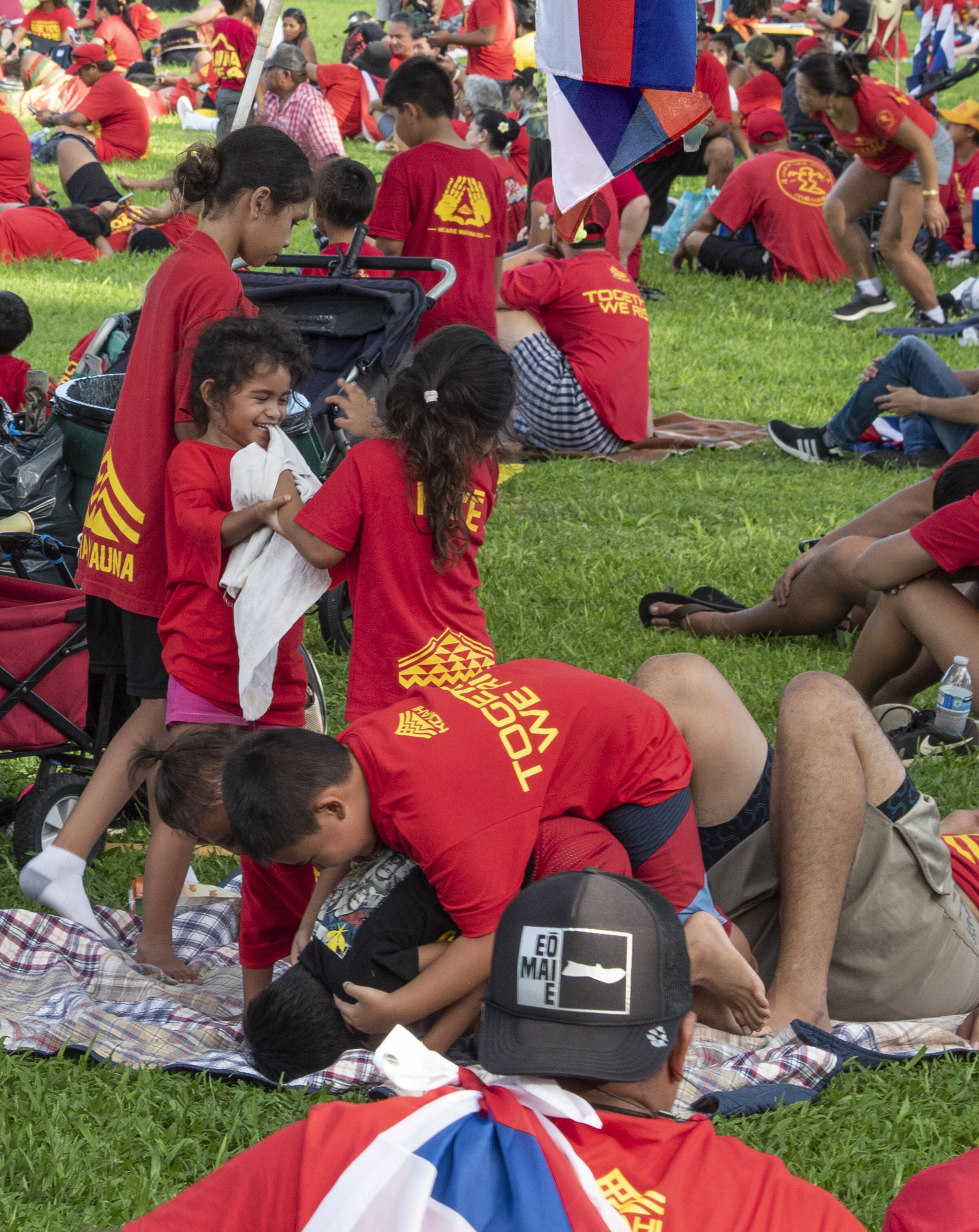
The days of youth, prosperity, and strength.

Old secrets are now revealed.
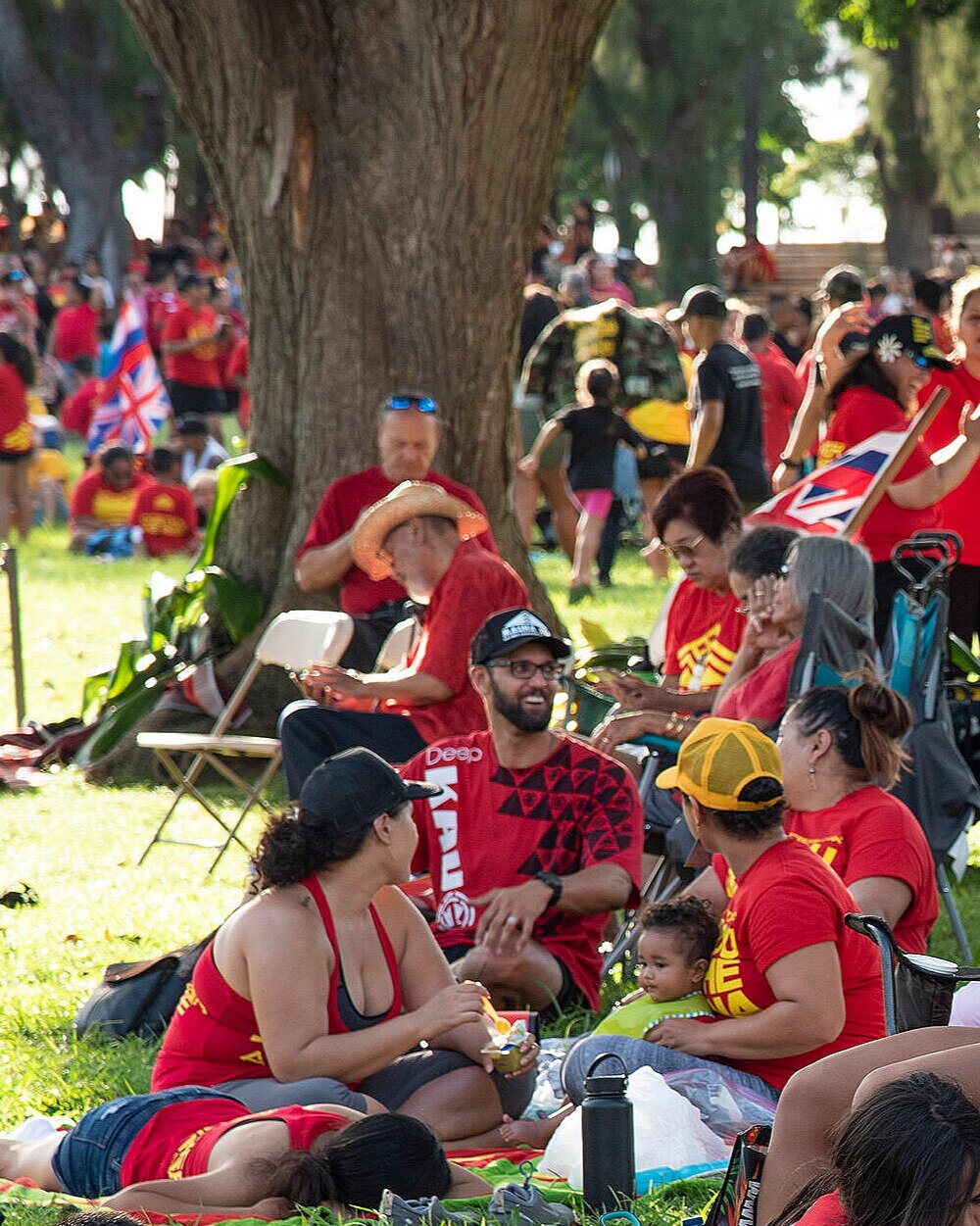
Of the same origin, kinfolk will seek and love each other.
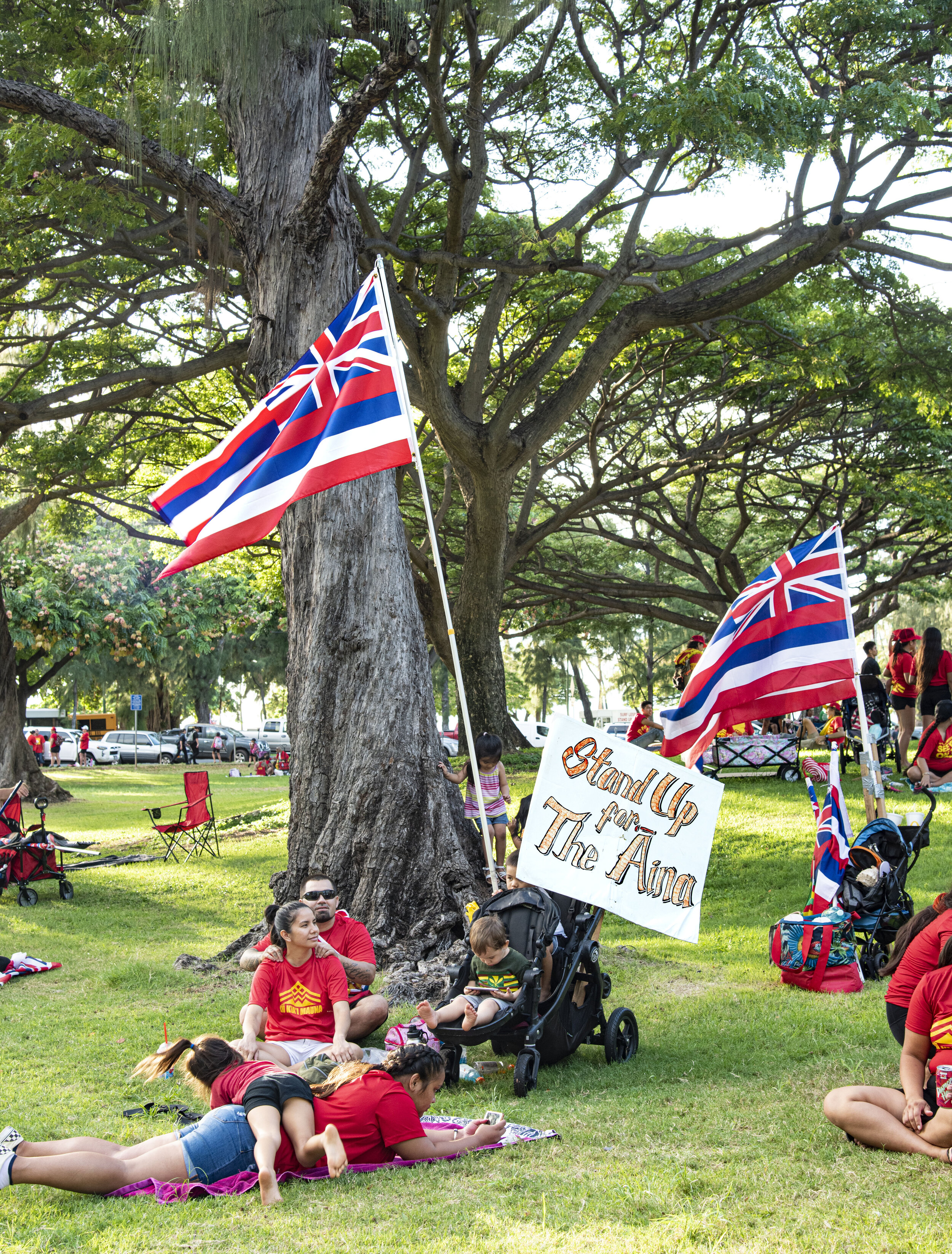
Be a person who knows love.
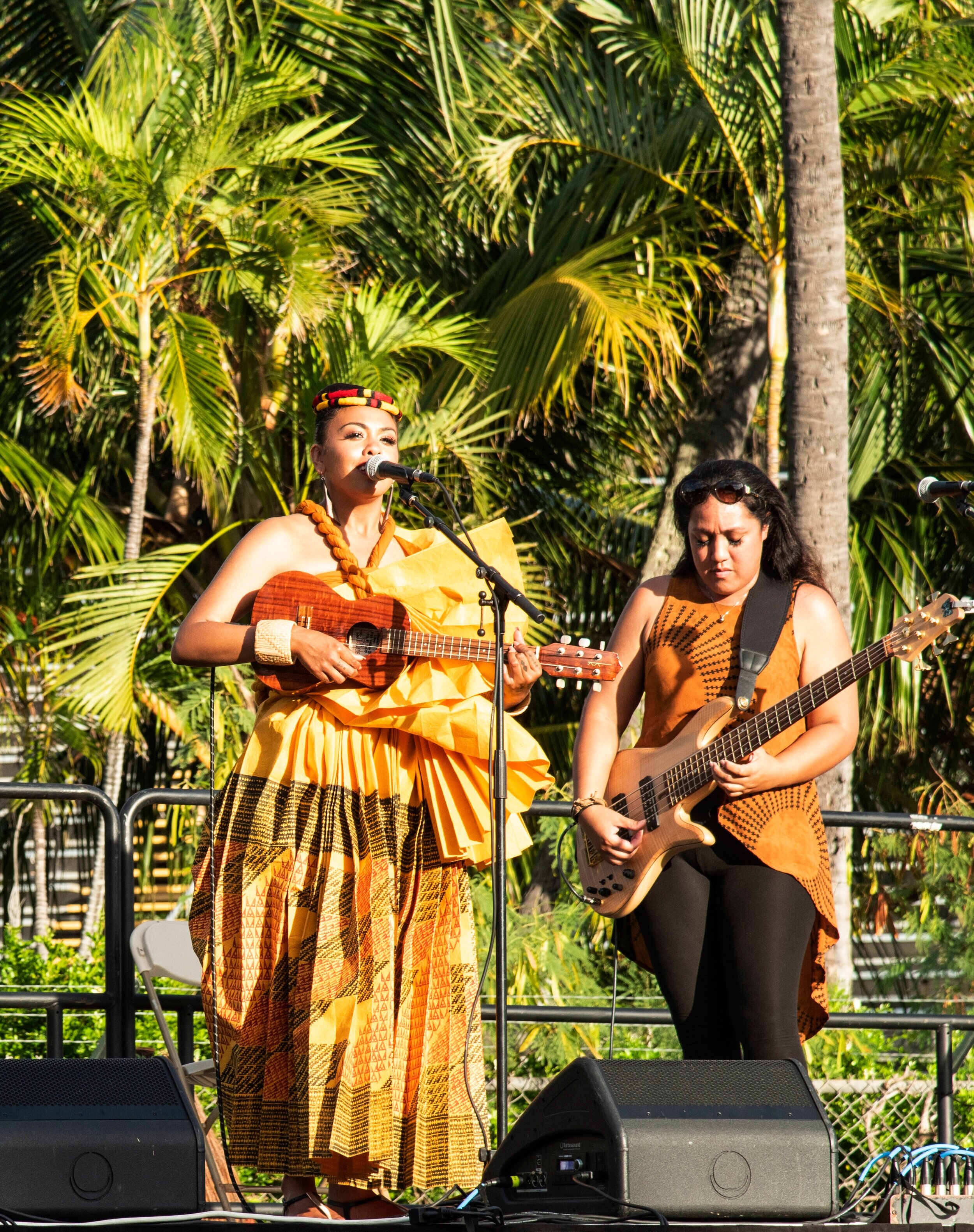
A call to rise and get to work.
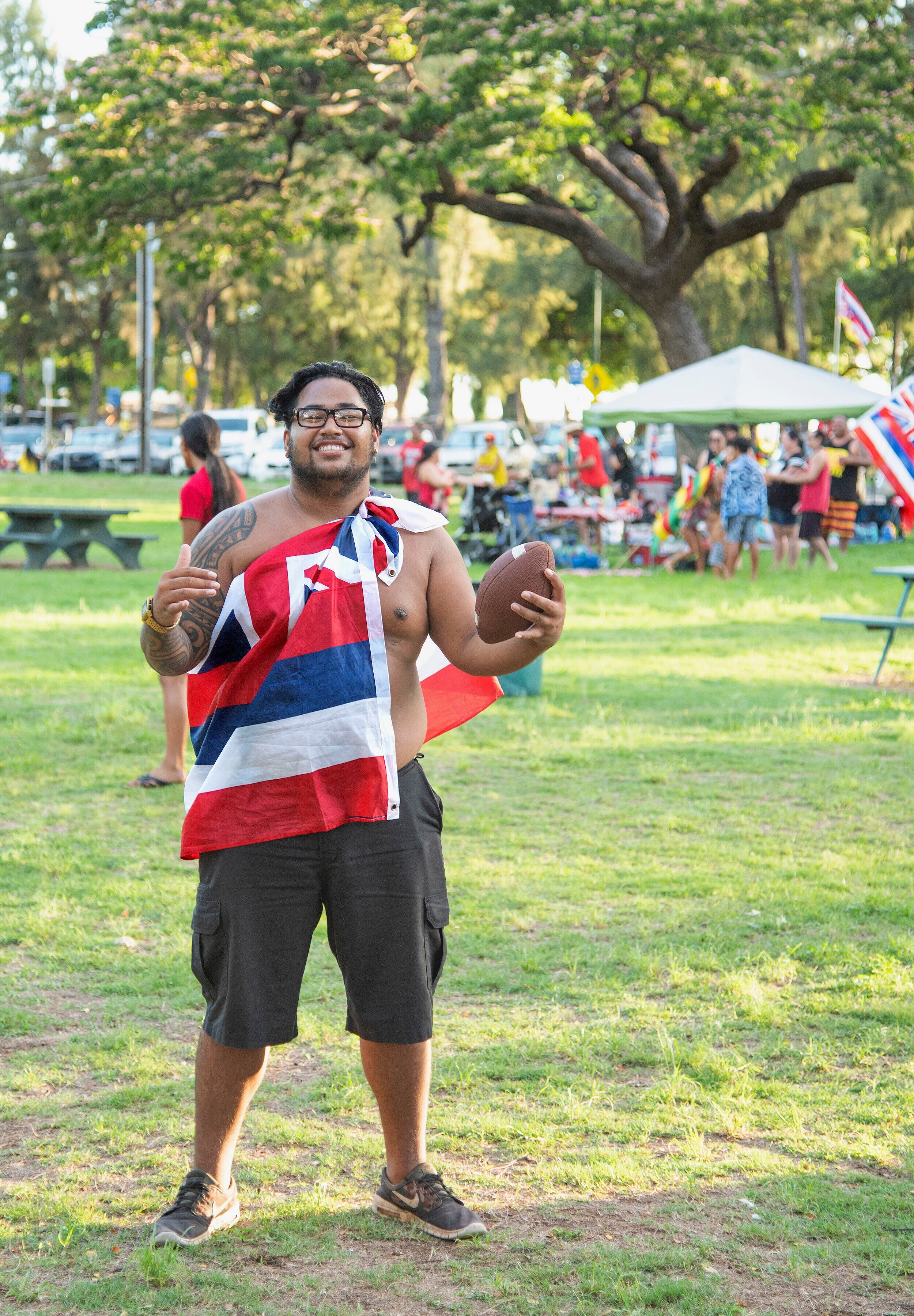
Blessings come to those who persist in doing good.
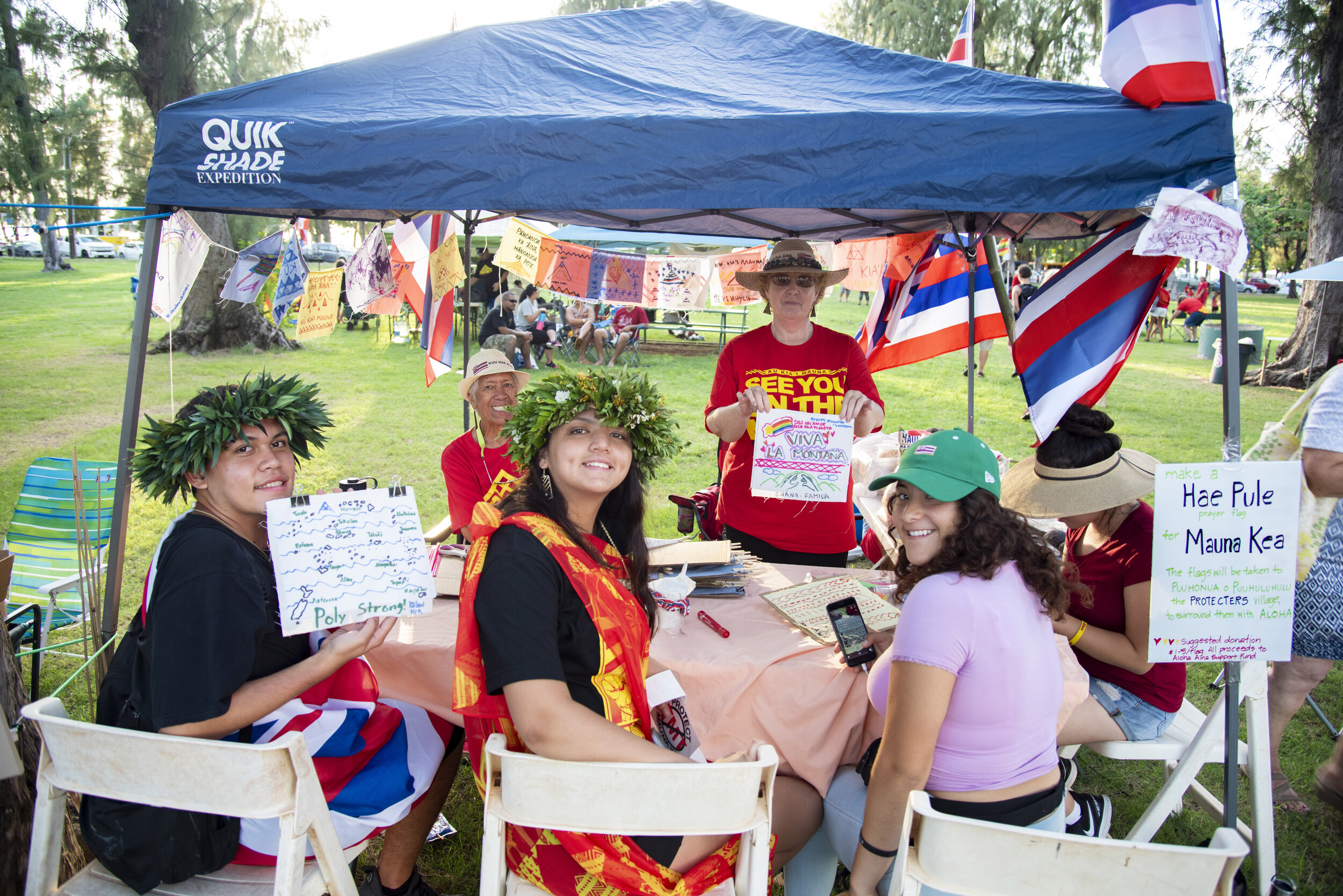
PolyStrong (see sign on left being held) is a non-profit organization established in 2017 to instill and empower Pacific Islanders with a new vision of who they are, the value of their culture, and the innate capacity they possess to become leaders in todayʻs global industries and society.
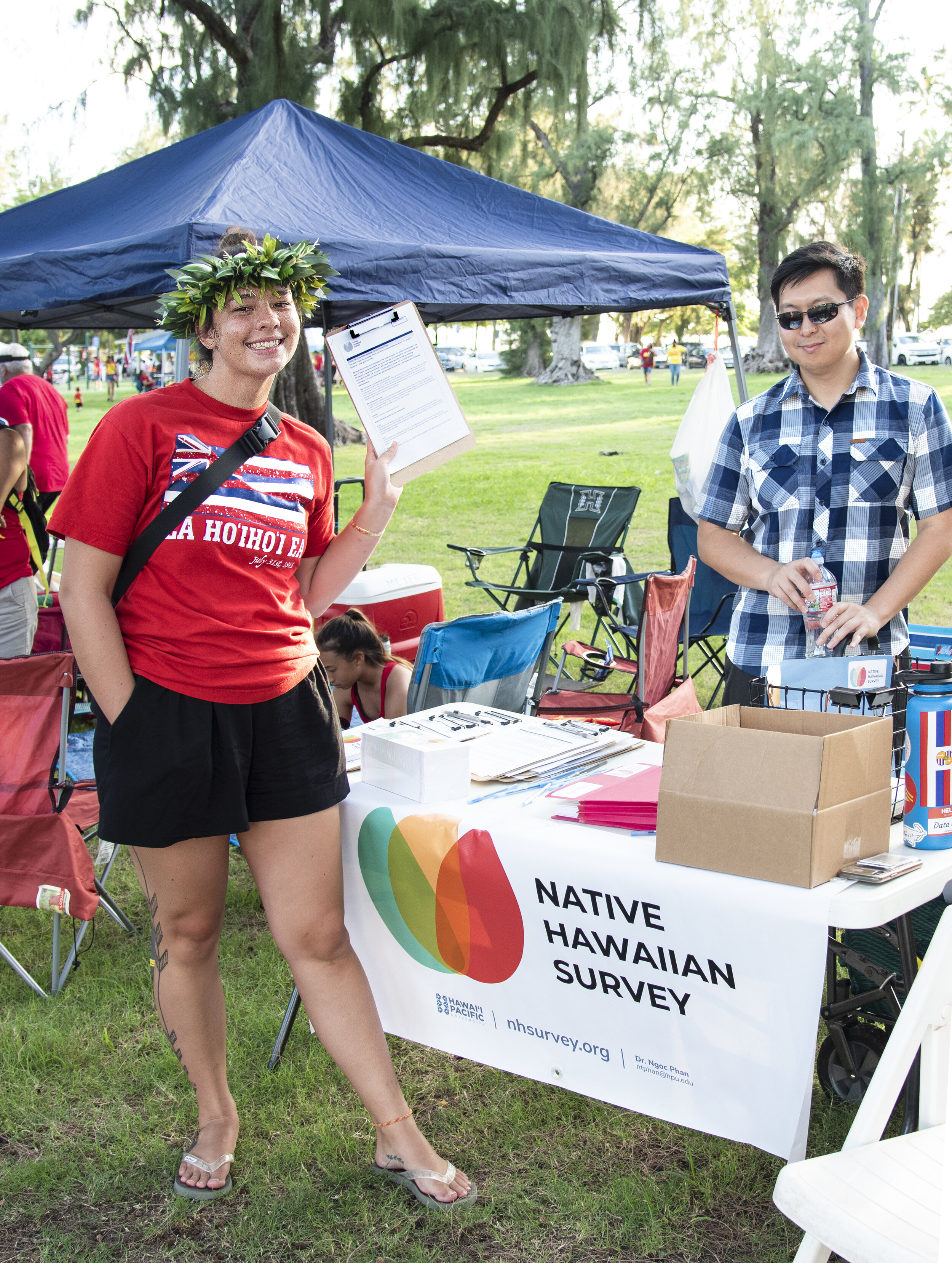
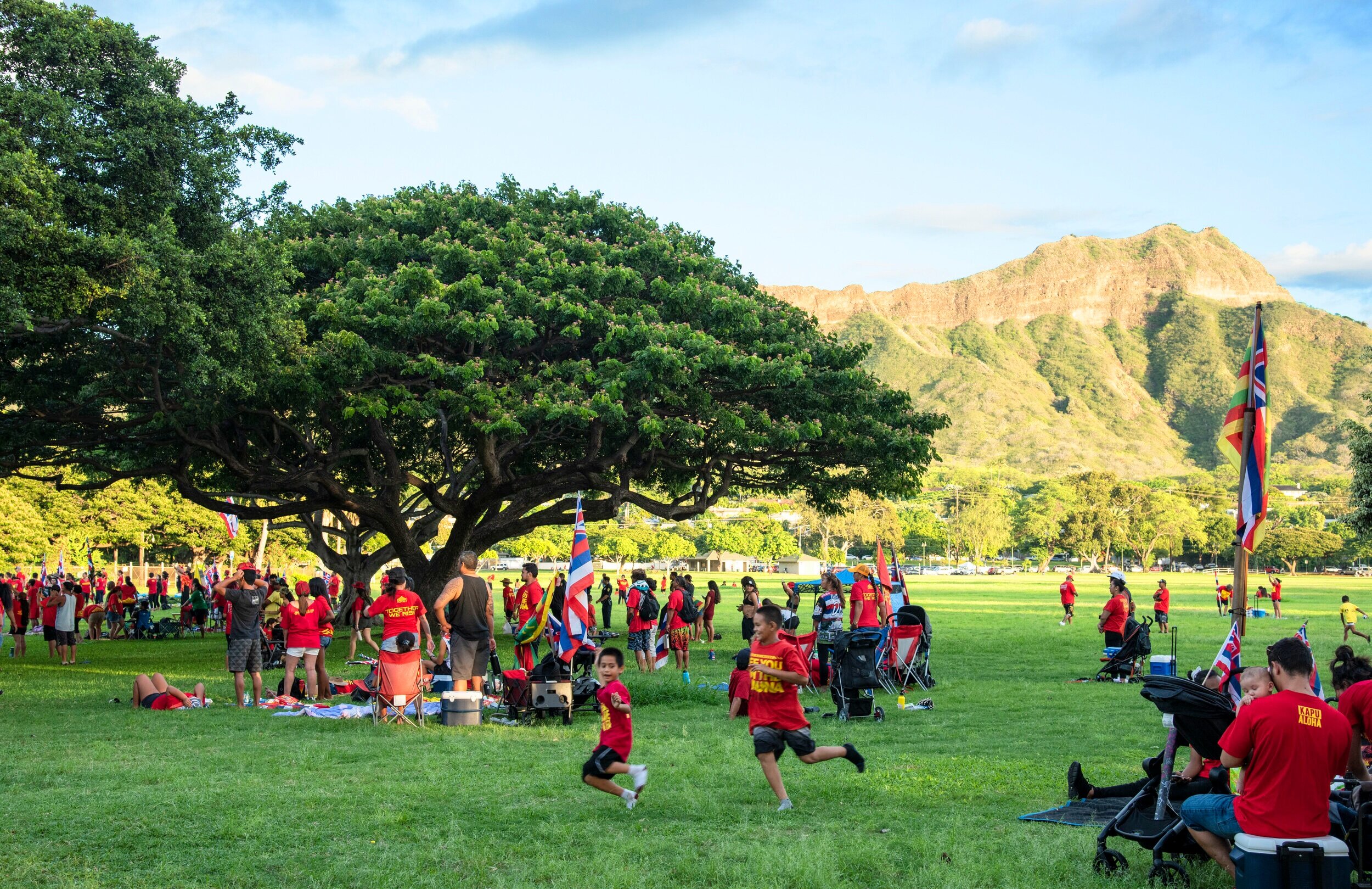
It is no disgrace to run when there is danger of being destroyed; perhaps there may be another day when one can fight and win.
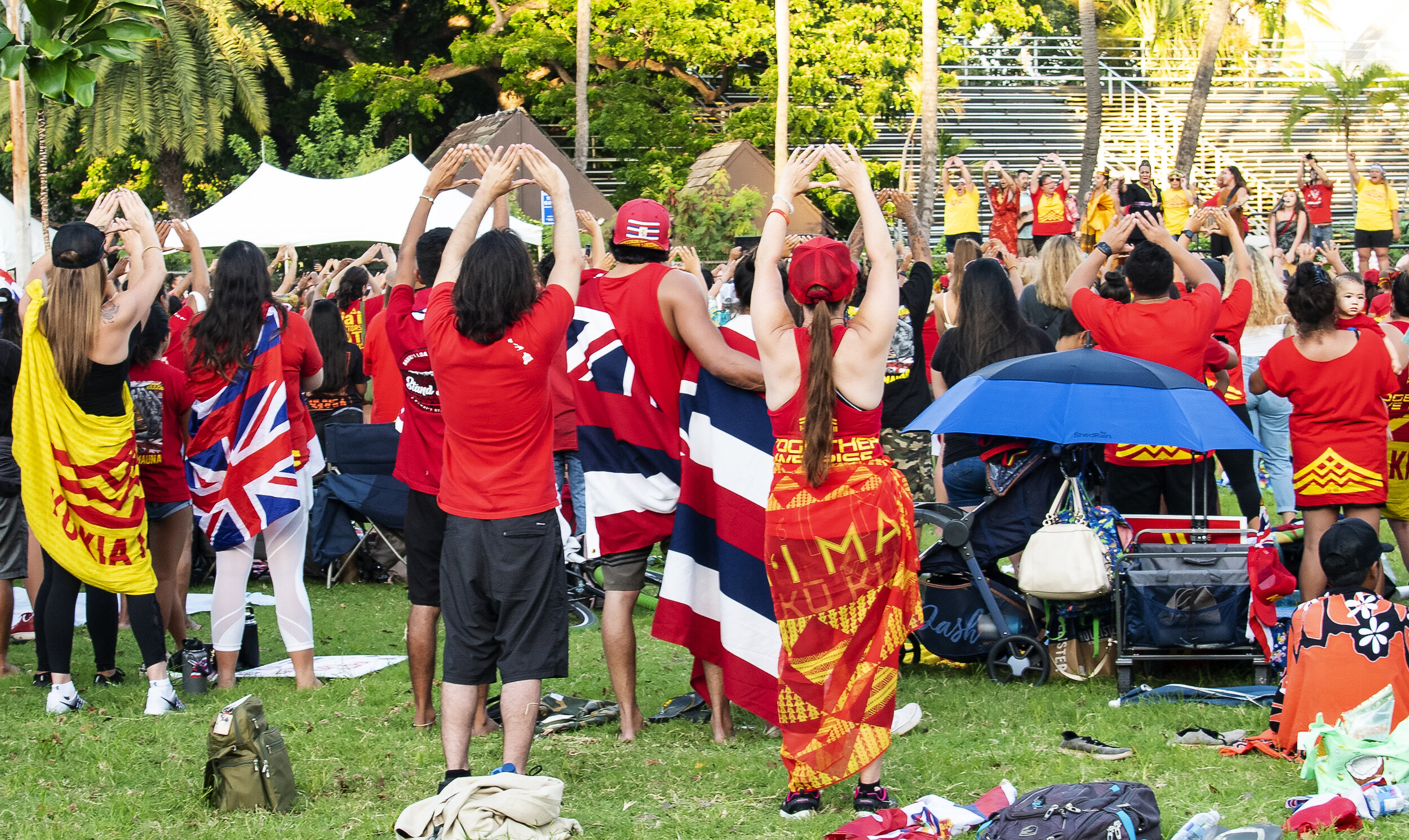
A call to prepare for war or to prepare for the project at hand.
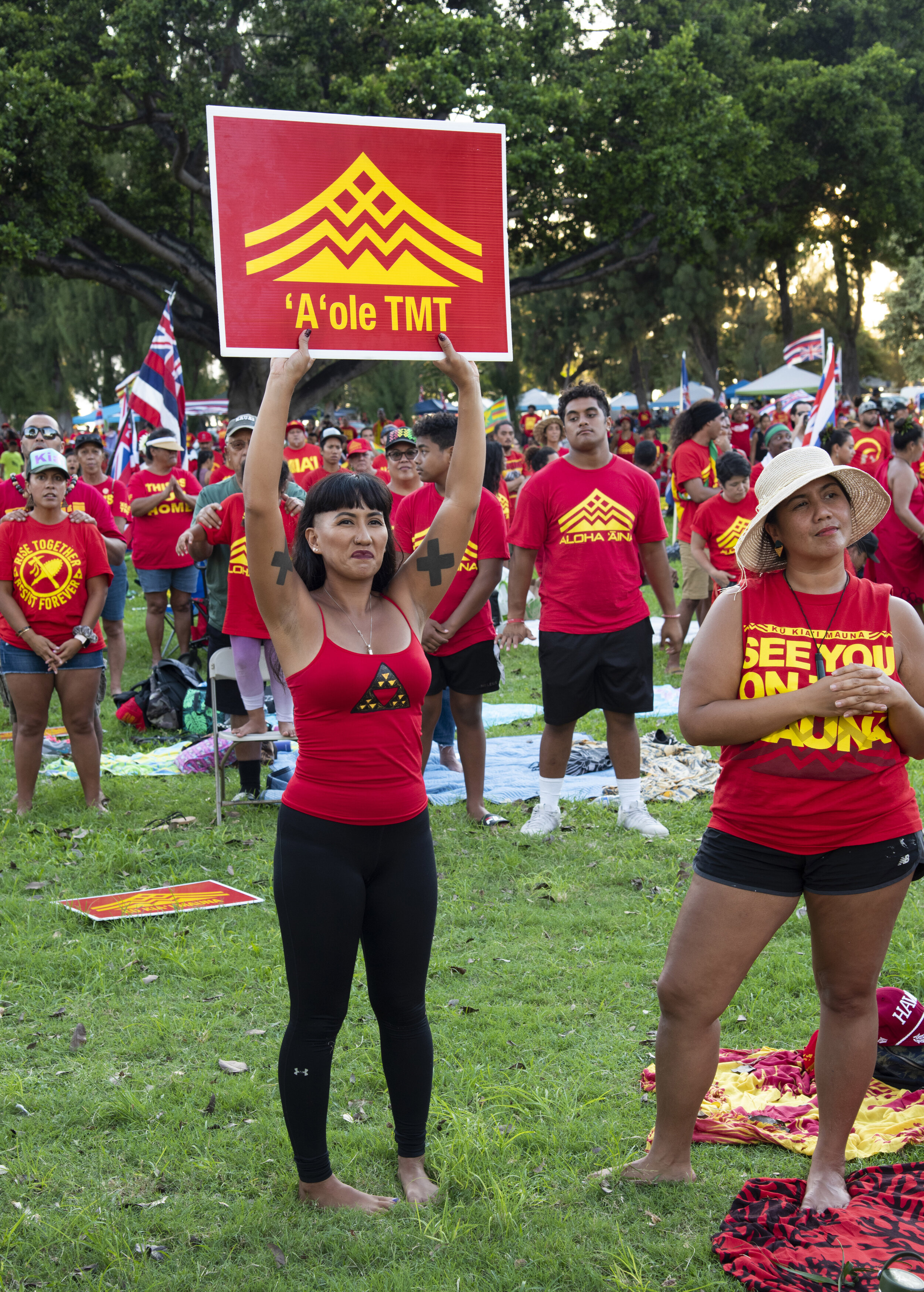
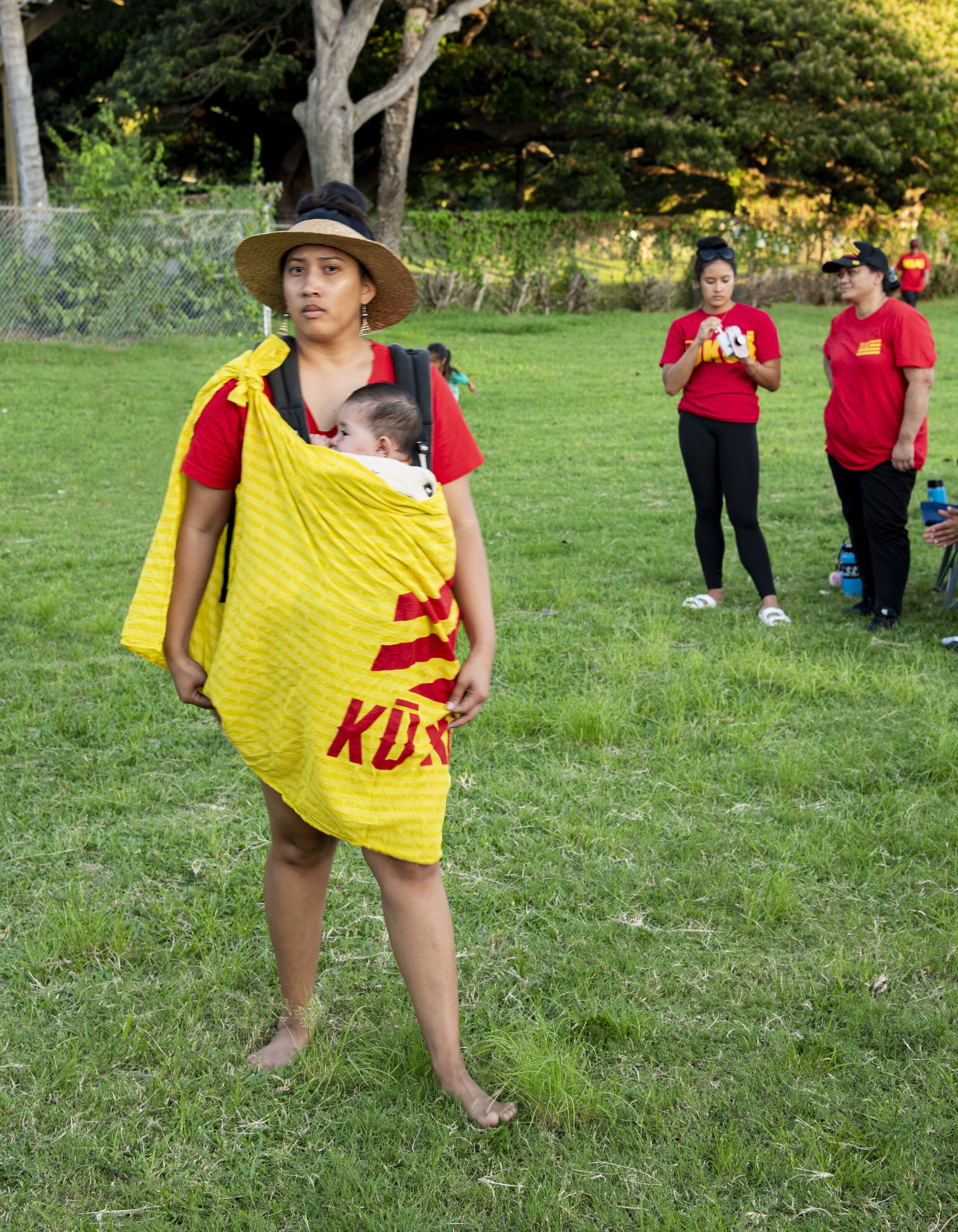
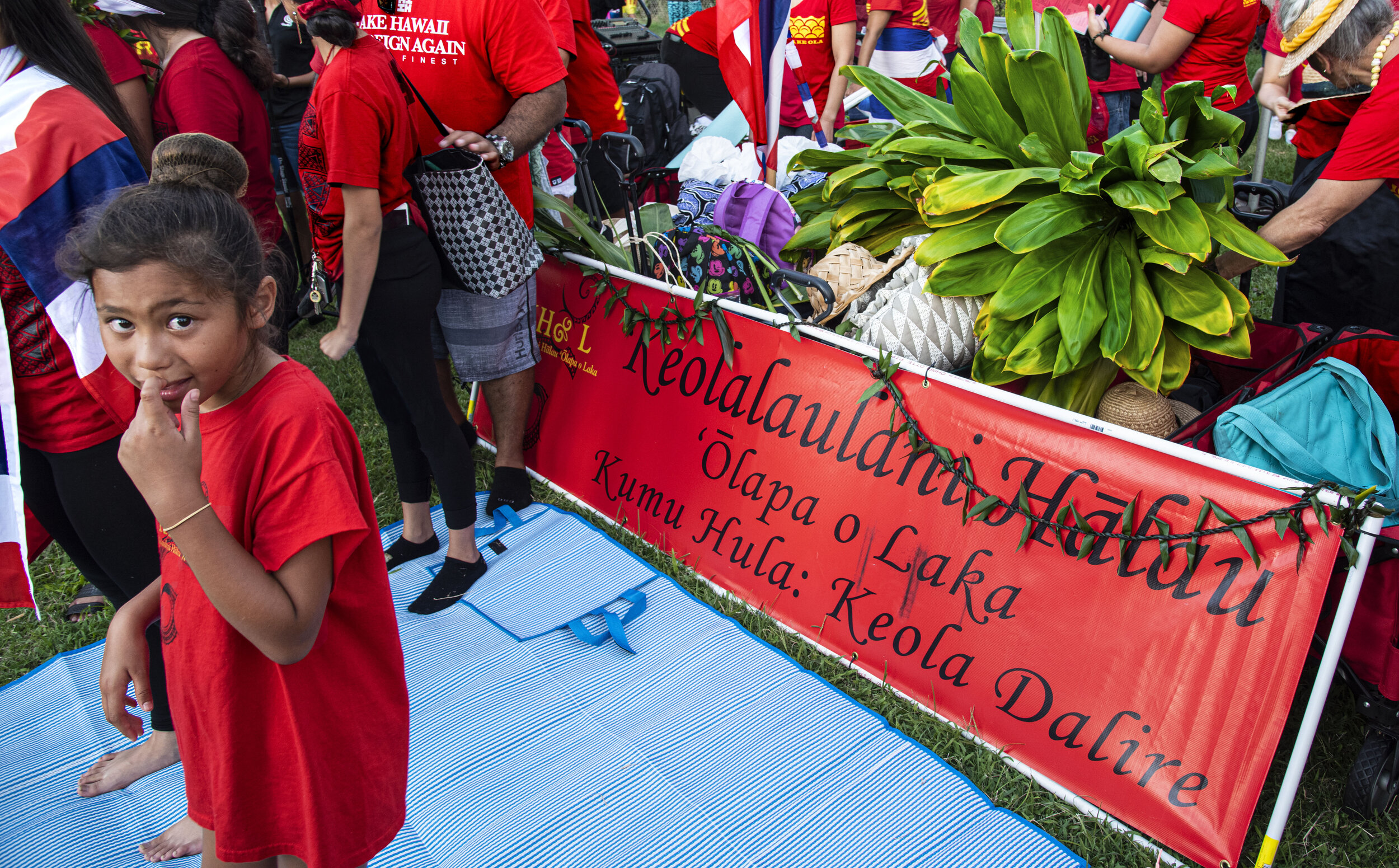
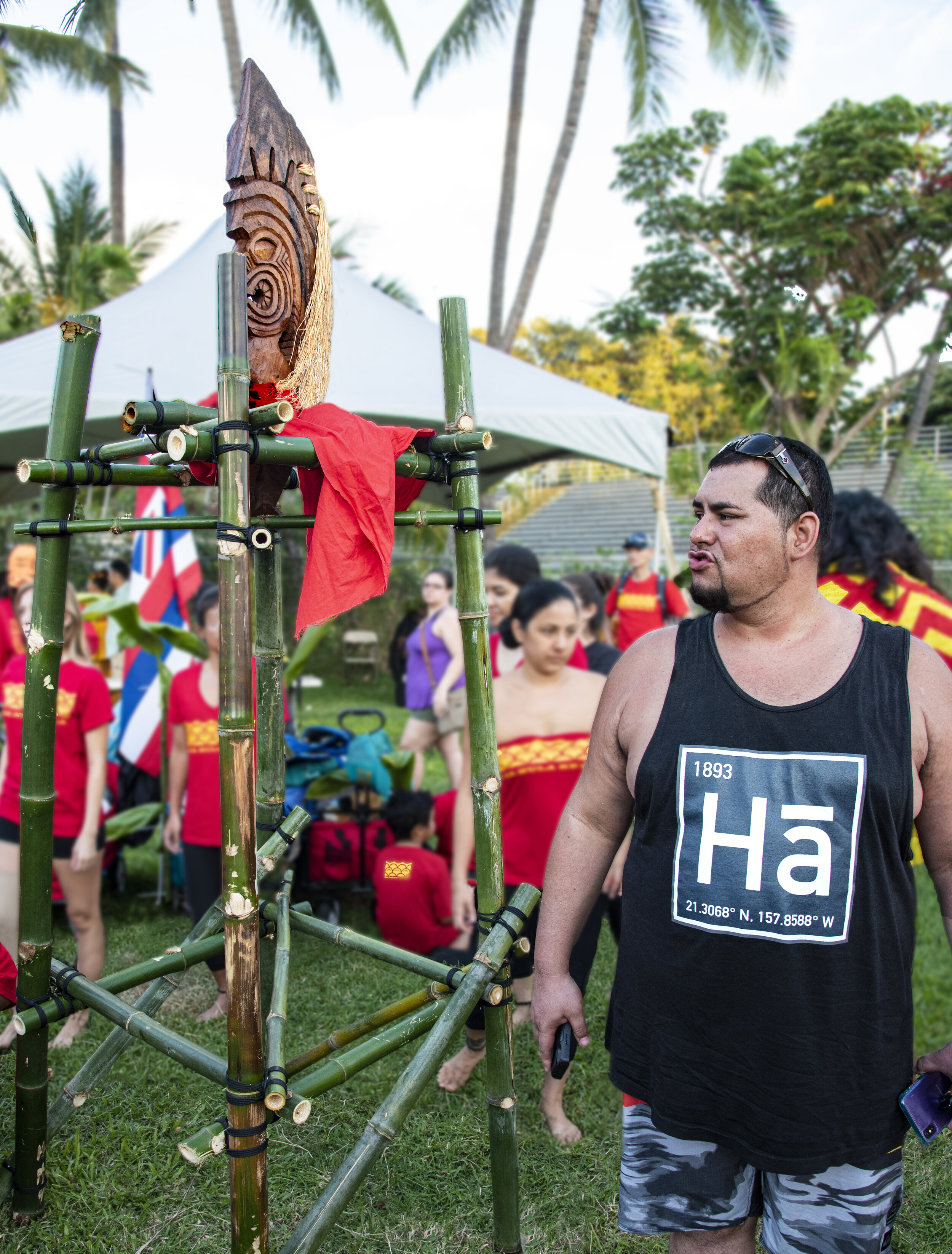
Be of one accord, as in exerting every effort to lift a heavy weight to the shoulder and to keep together in carrying it along.
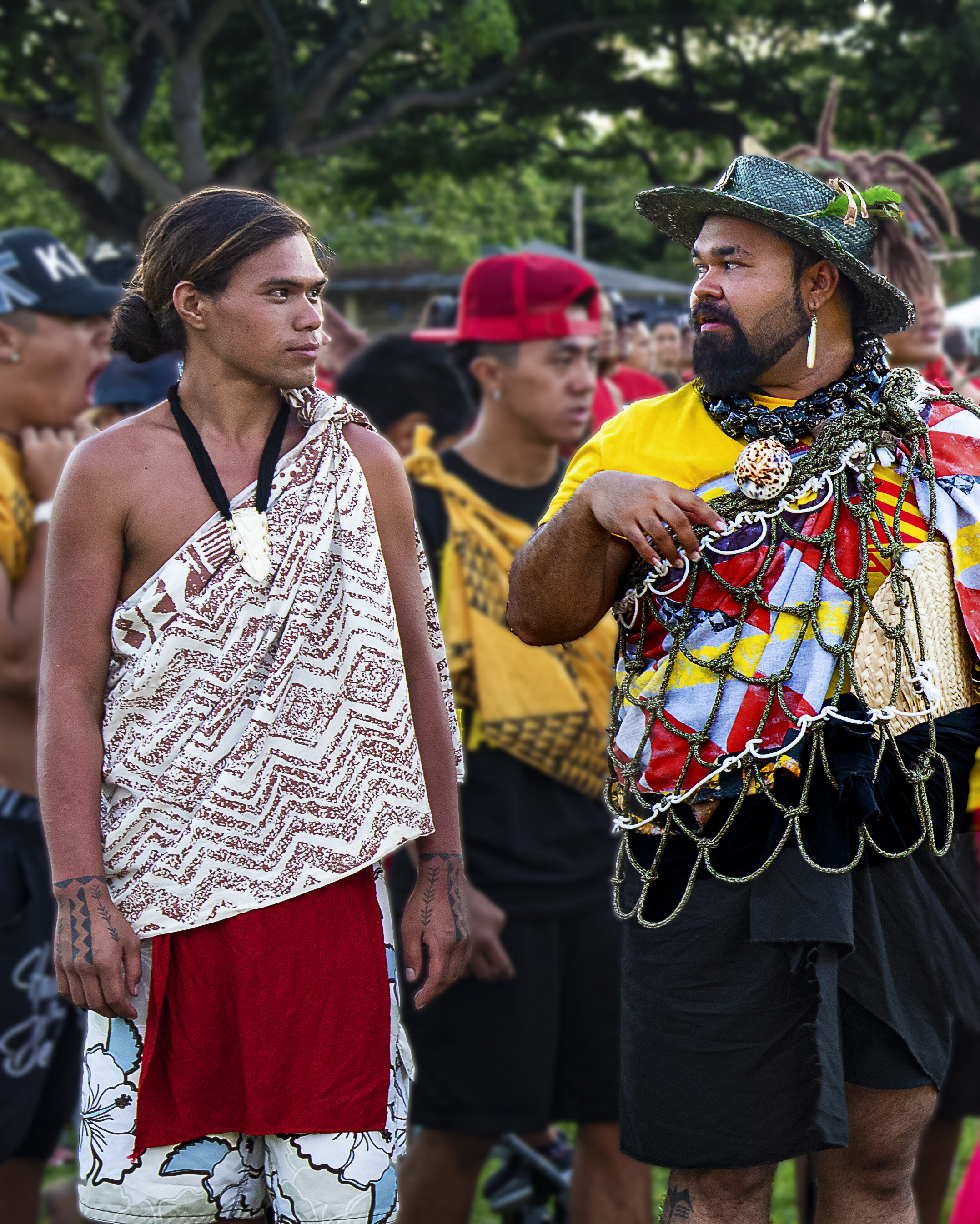
Though one may have no gift to offer to a friend, a kind word or a friendly greeting is just as important.
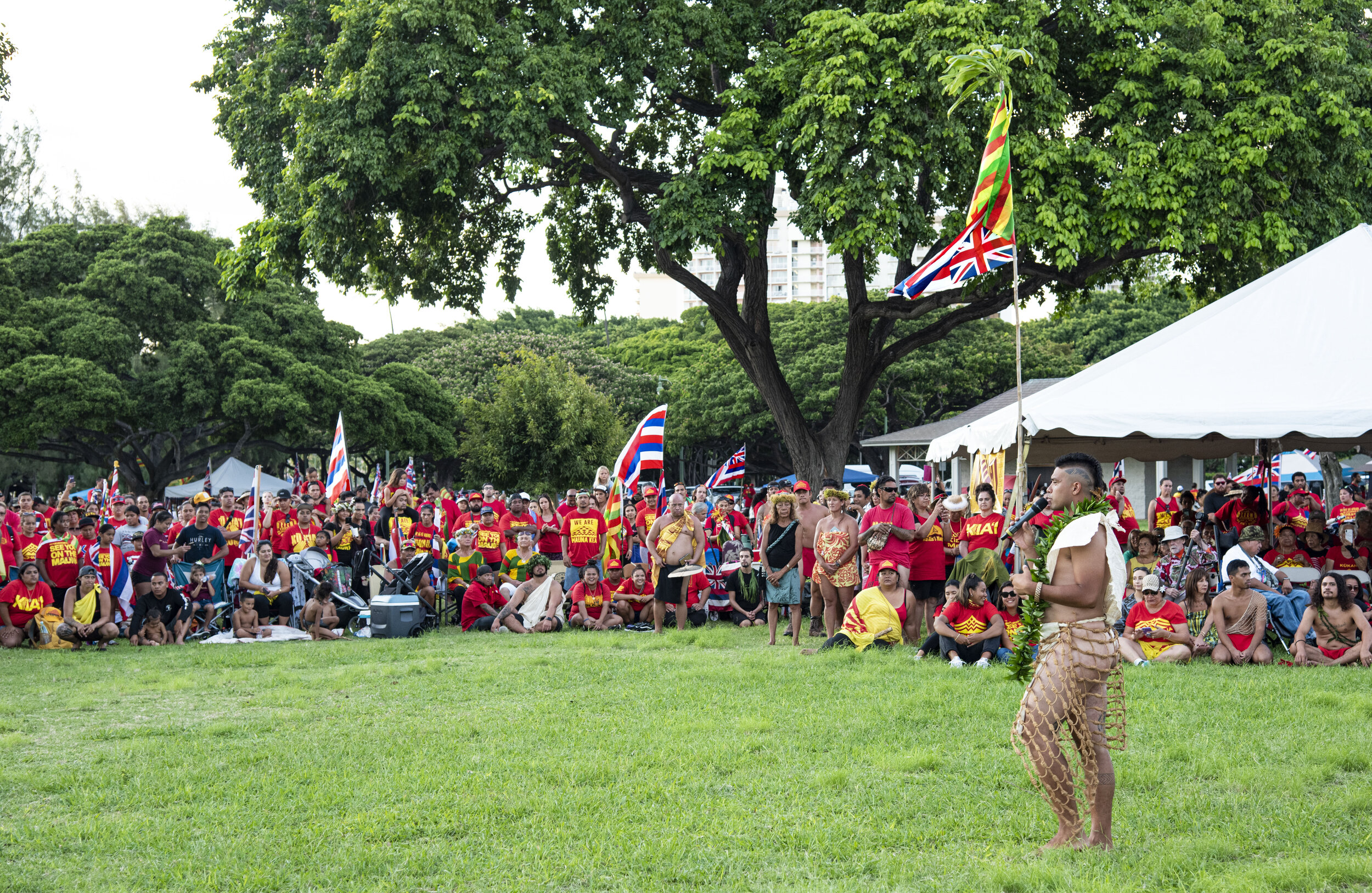
Oneʻs wrongdoings exceeded the limit.

Hawaiians for countless generations have used a pū to announce the arrival of canoes, the entrance of aliʻi, and the beginning of protocols. Today, its one-note fanfare is used to start a meeting, bless a home, or call a gathering to order.
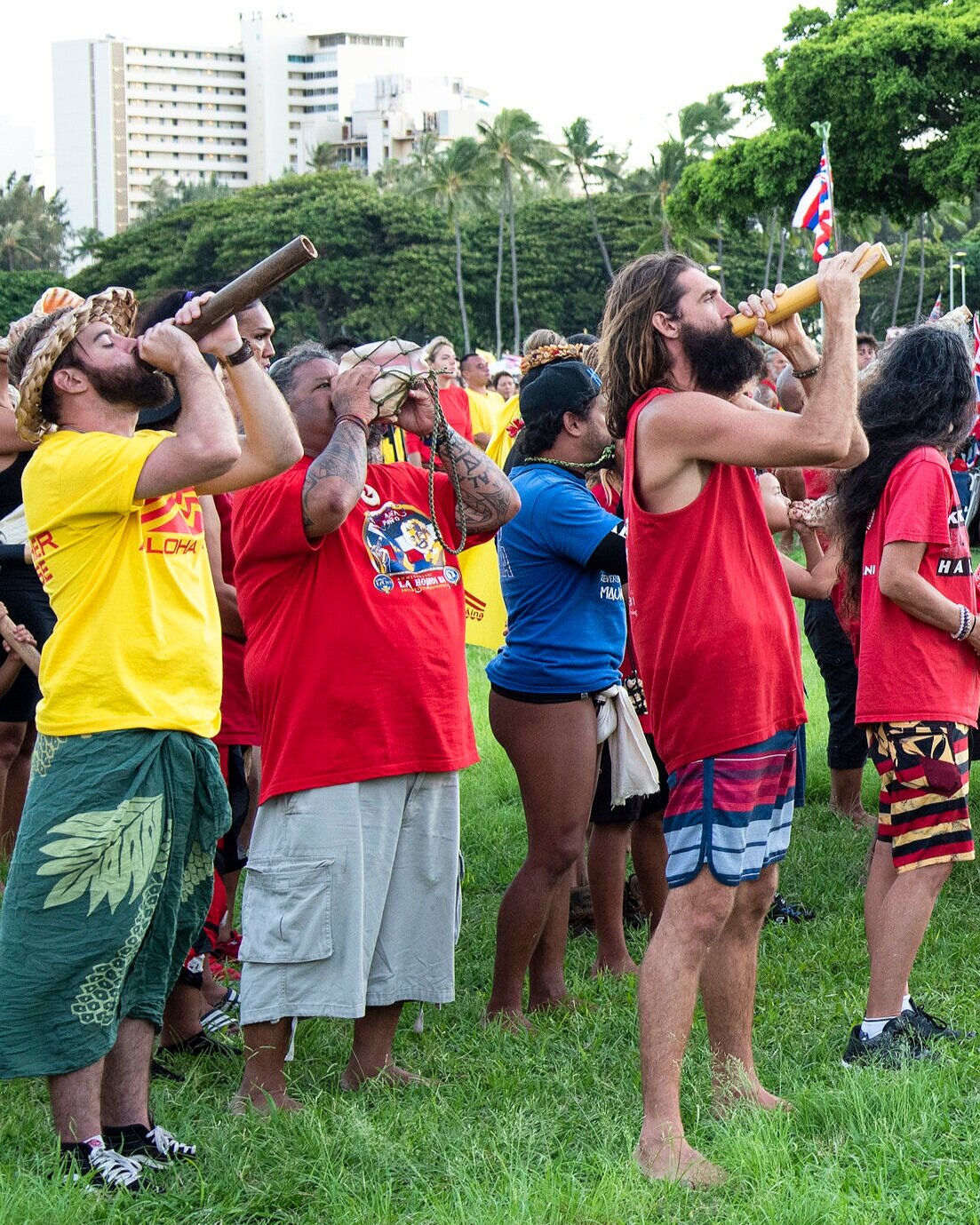
In the early evening, rally goers used bamboo pū to call the rally attendees together so that they can dance hula in protest to TMT.
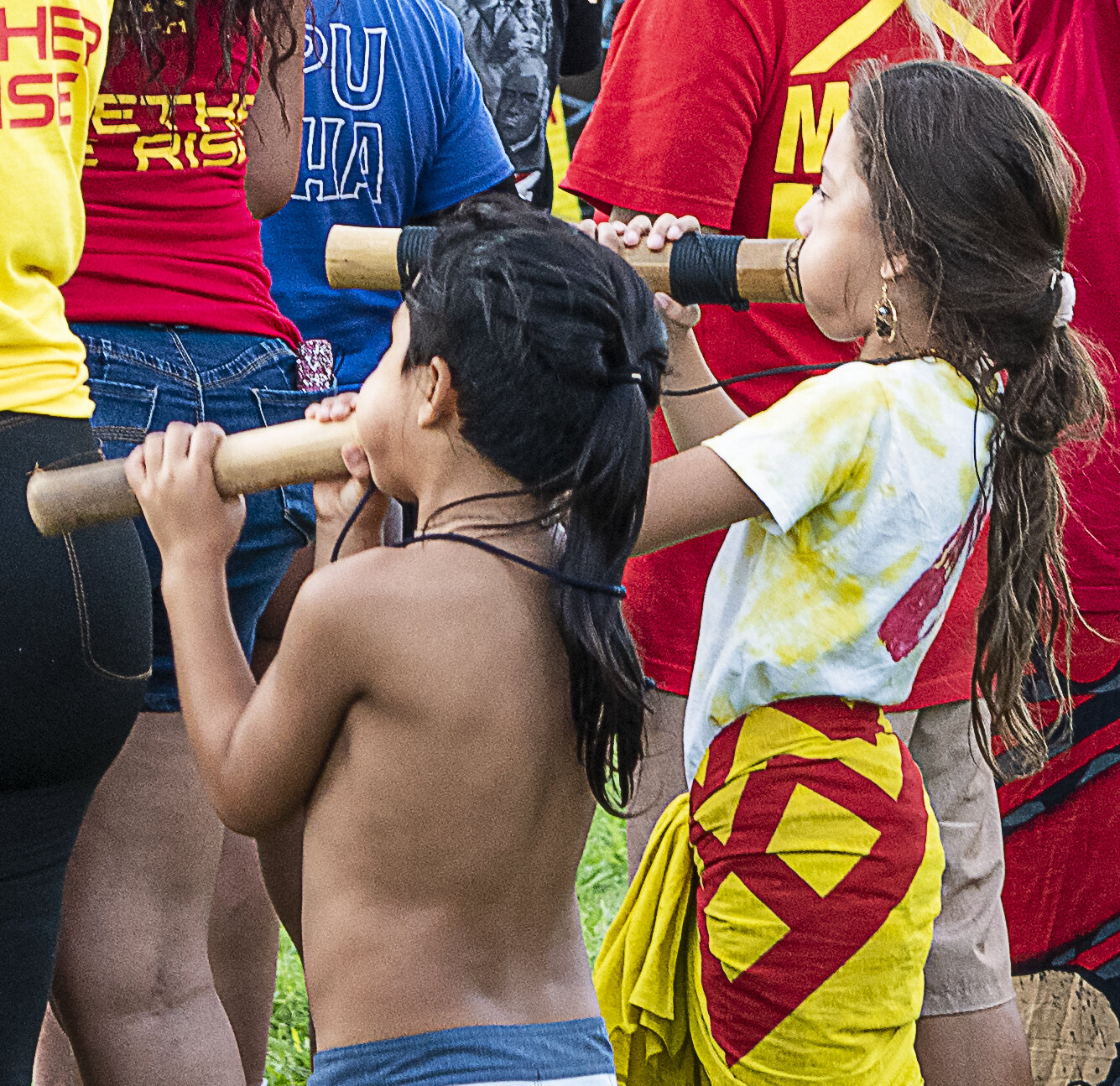
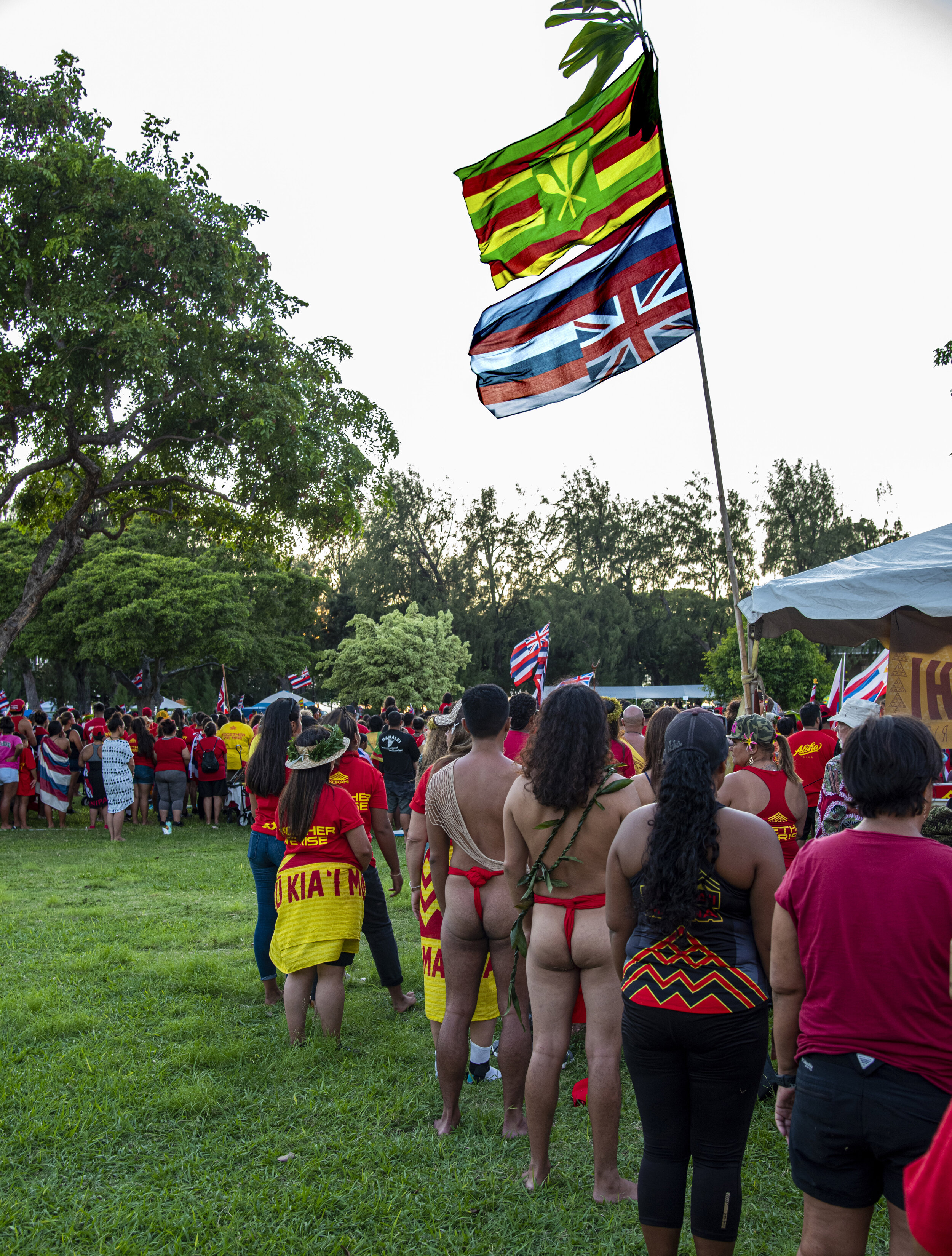
Said of a return to the source.
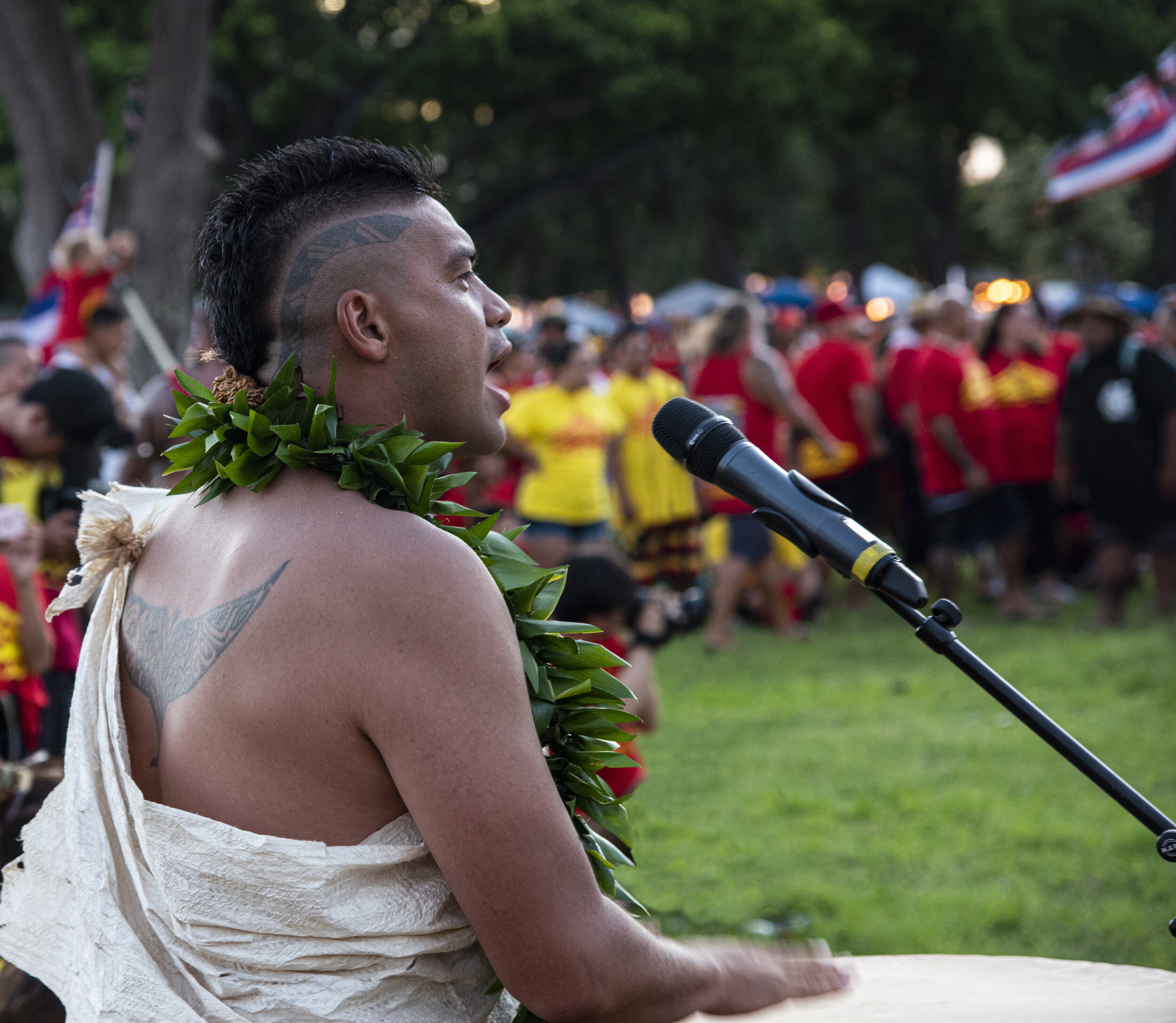
A call to come together to tackle a given task.
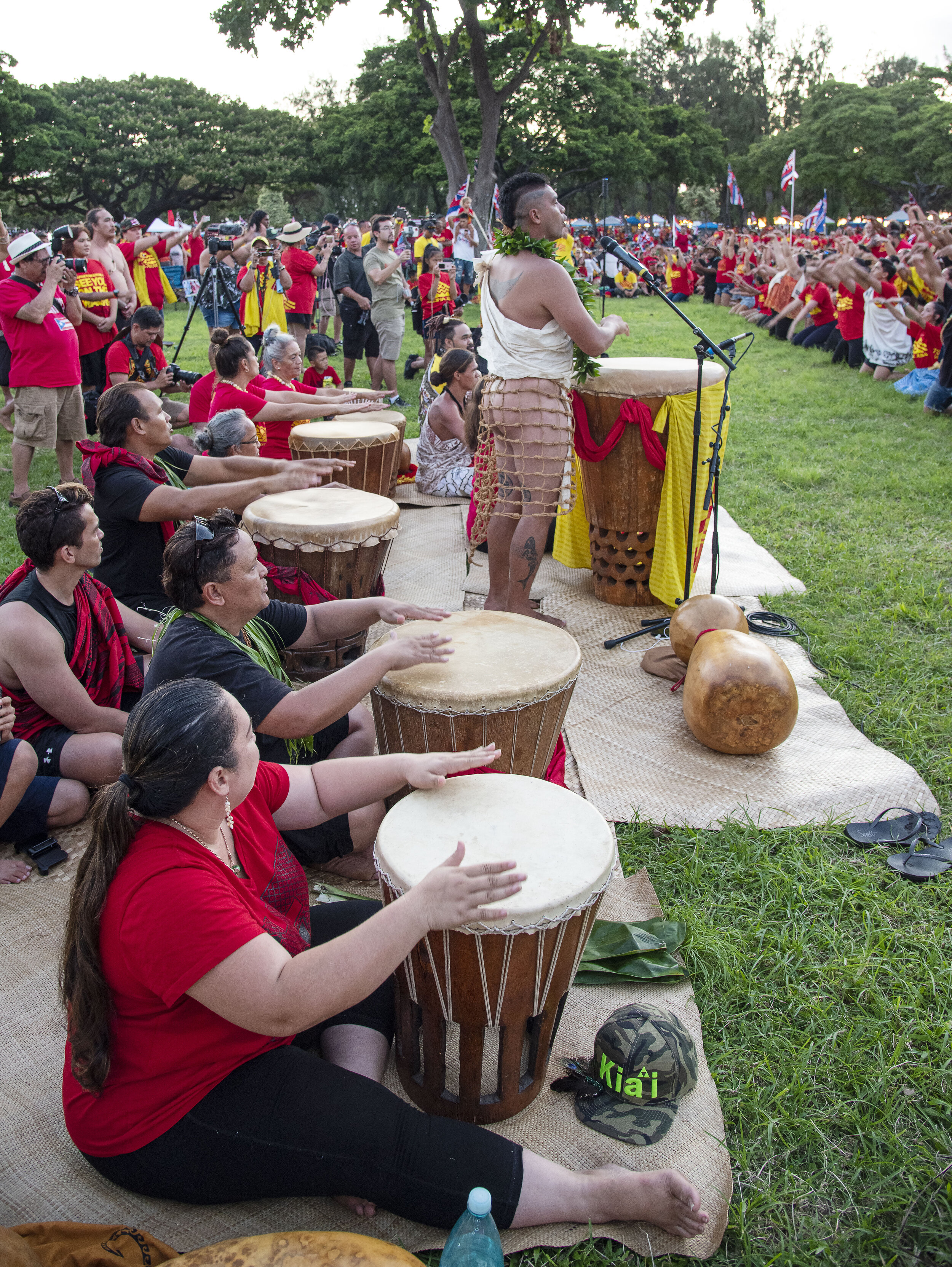
The lesser details that one pays little attention to are just as important as the major ones. Although the attention is given to the dancer, the drummer and chanter play an important role in the dance.
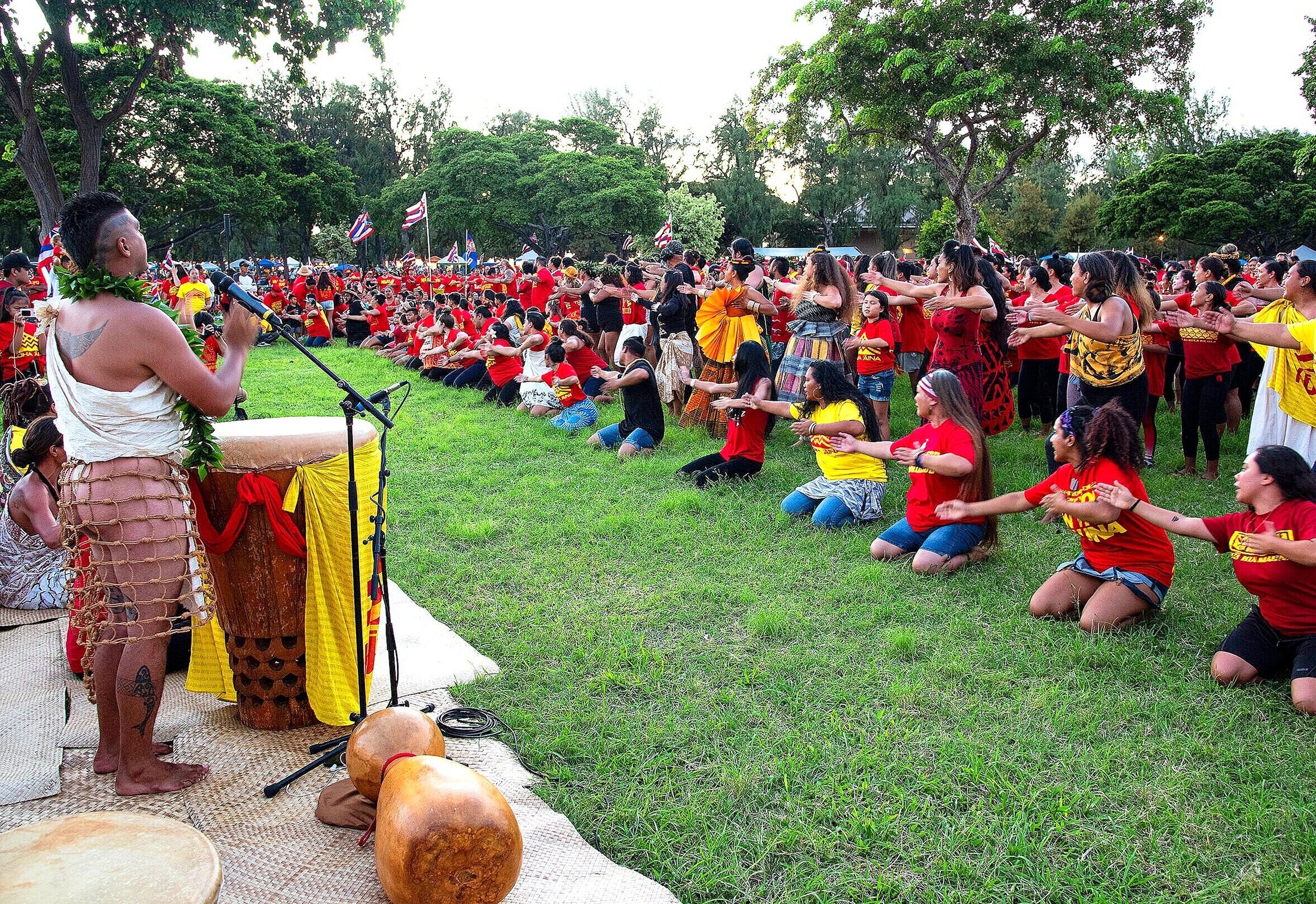
Be of one accord, as in exerting every effort to lift a heavy weight to the shoulder and to keep together in carrying it along.
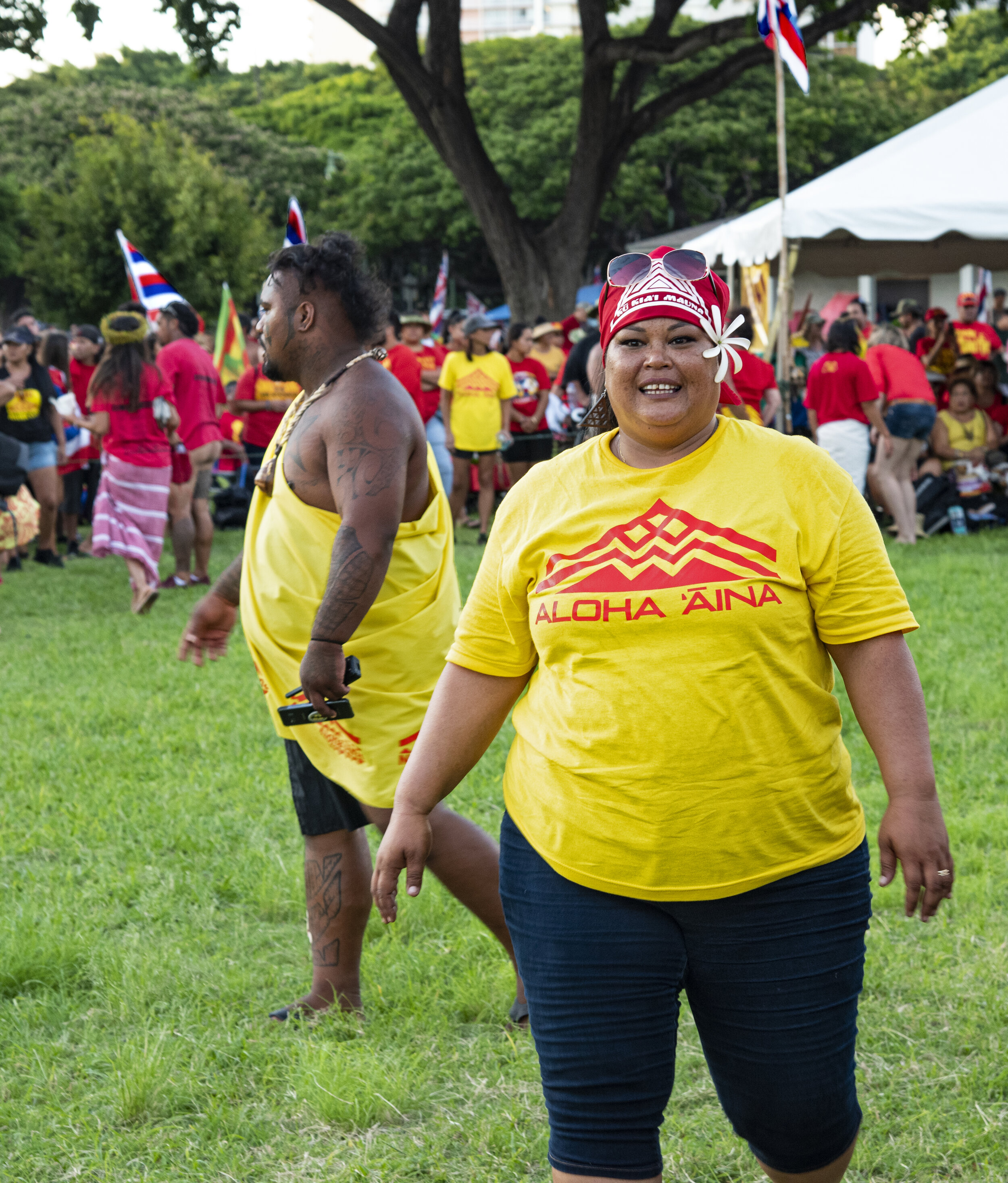
The Aloha ʻAina Party, created in 2015, is a political party in Hawaiʻi that advocates for the sovereignty of Native Hawaiians. Aloha ʻAina is a central idea of Native Hawaiian thought, cosmology and culture. To many, Aloha ʻAina means Hawaiian patriotism; love for the land and itʻs people. It is an in-depth relationship between the places and communities that hold significance to the individual.
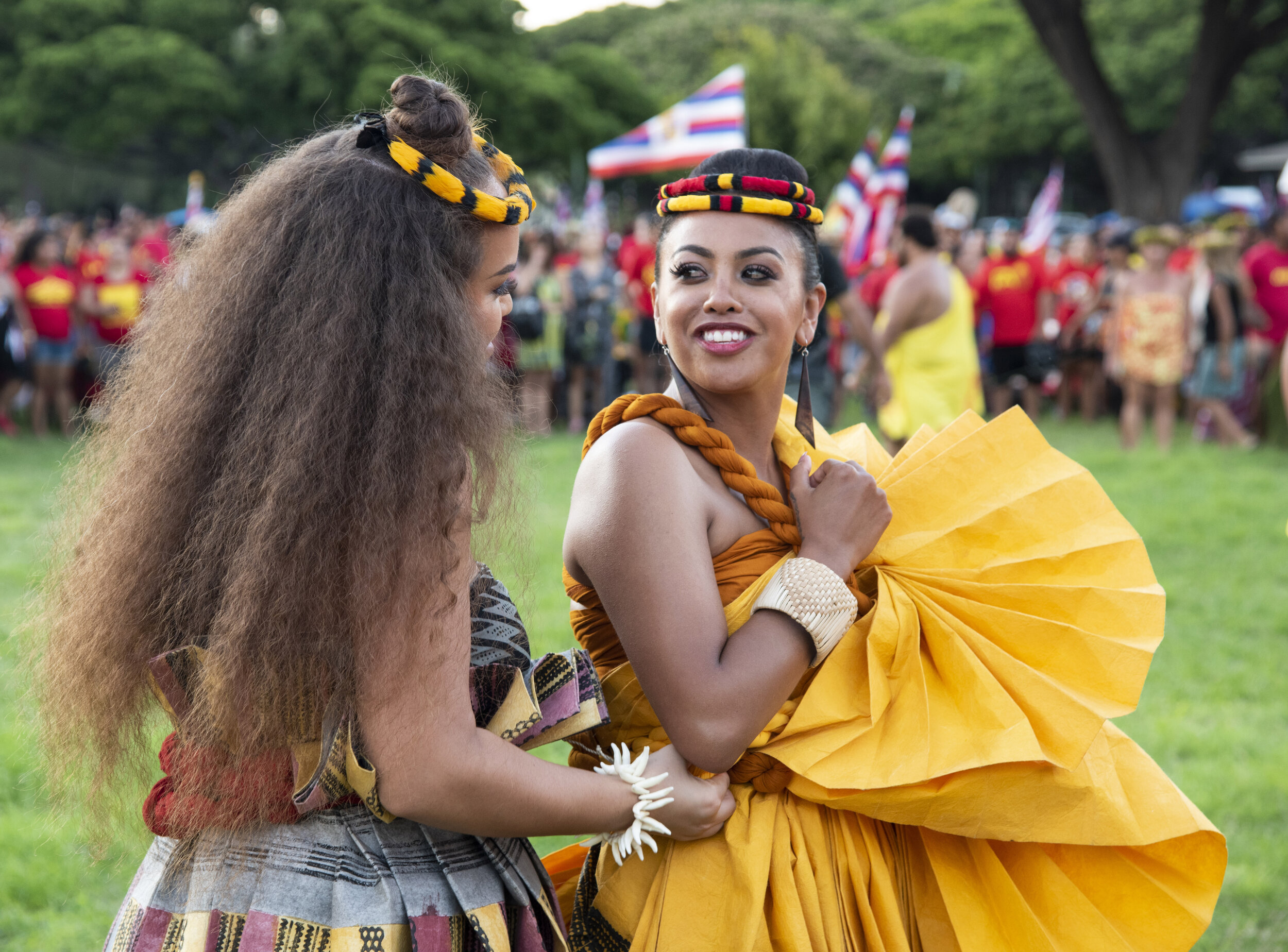
Sweet indeed is a good friend.
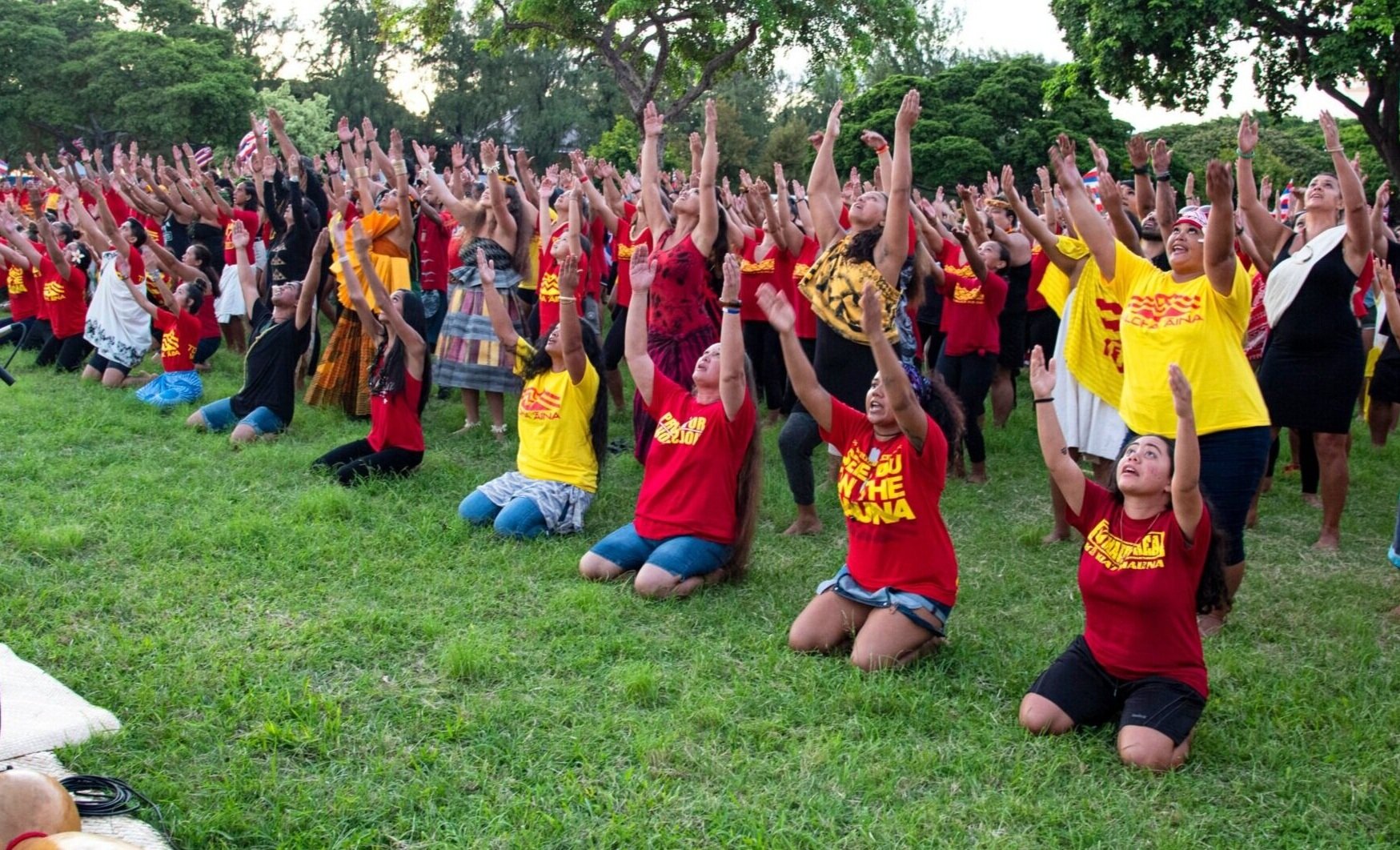
Itʻs no trouble at all.
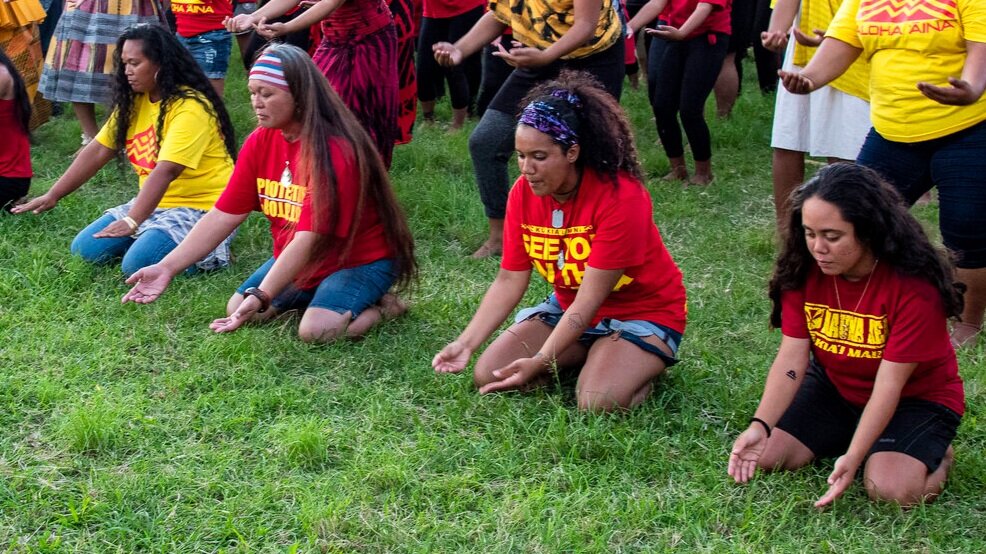
Said of one who has gone back to the source.
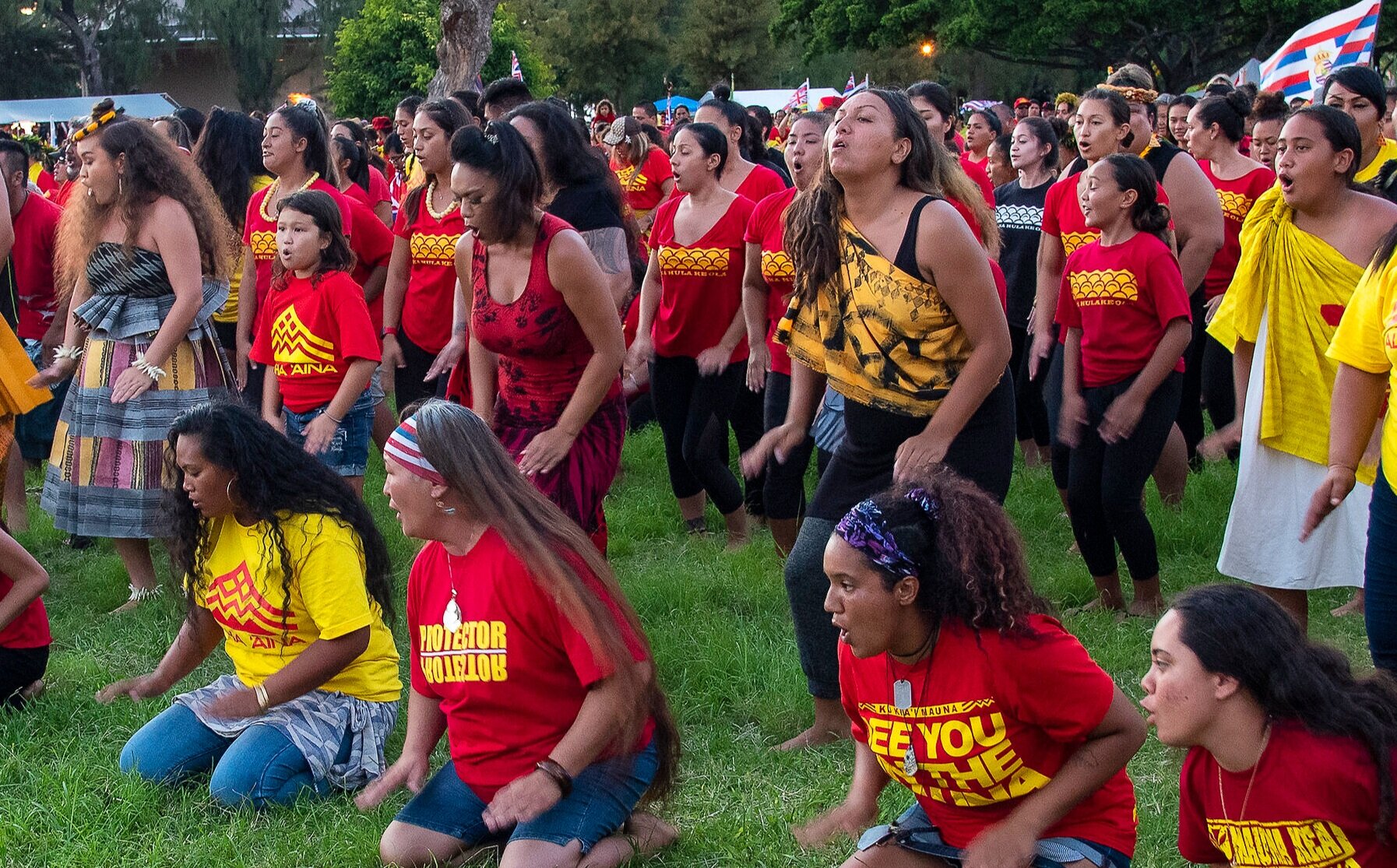
An expression applied to a tough, strong person. The wood of the ʻūlei plant is very strong and was used as a fishing spear in olden times.
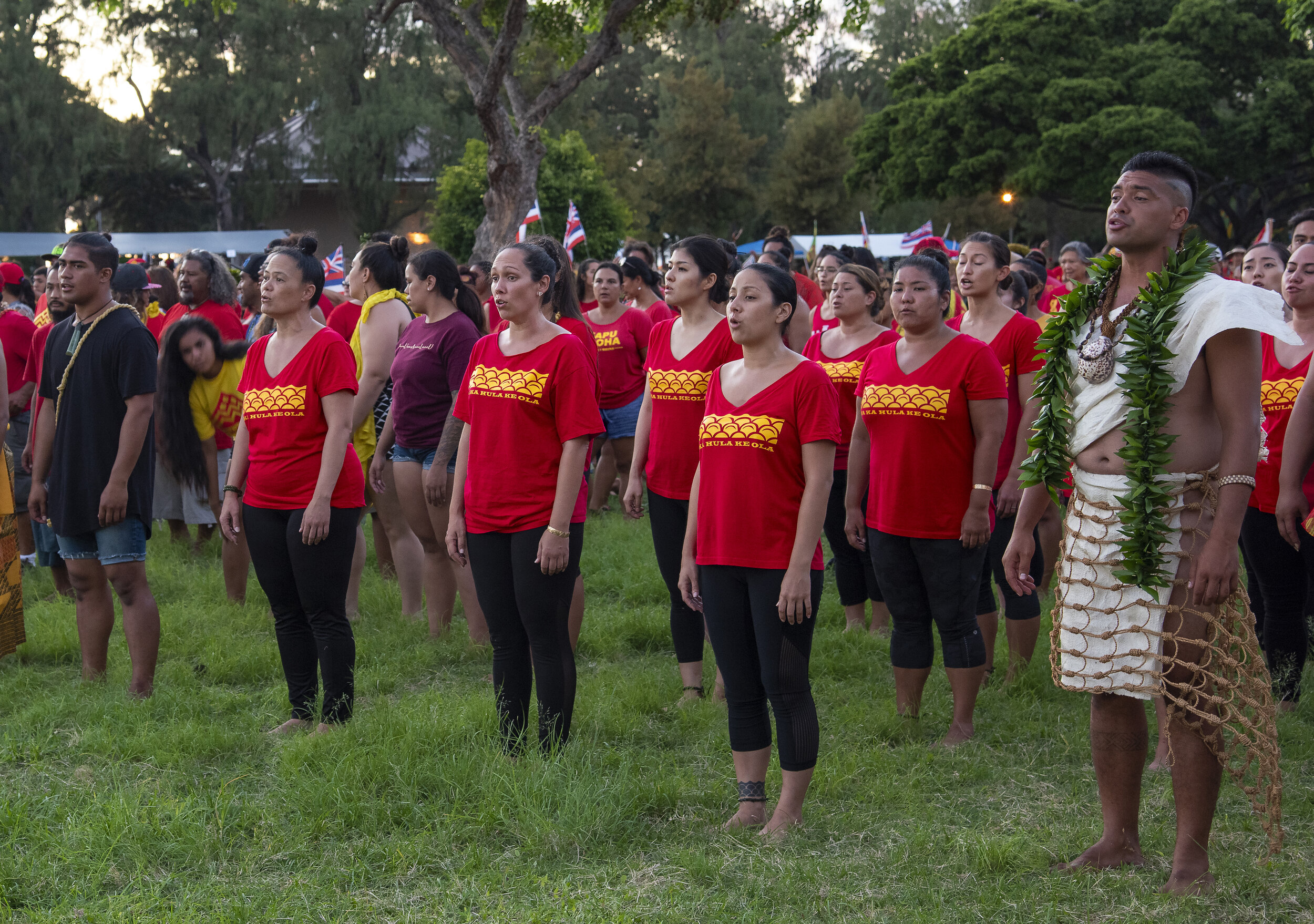
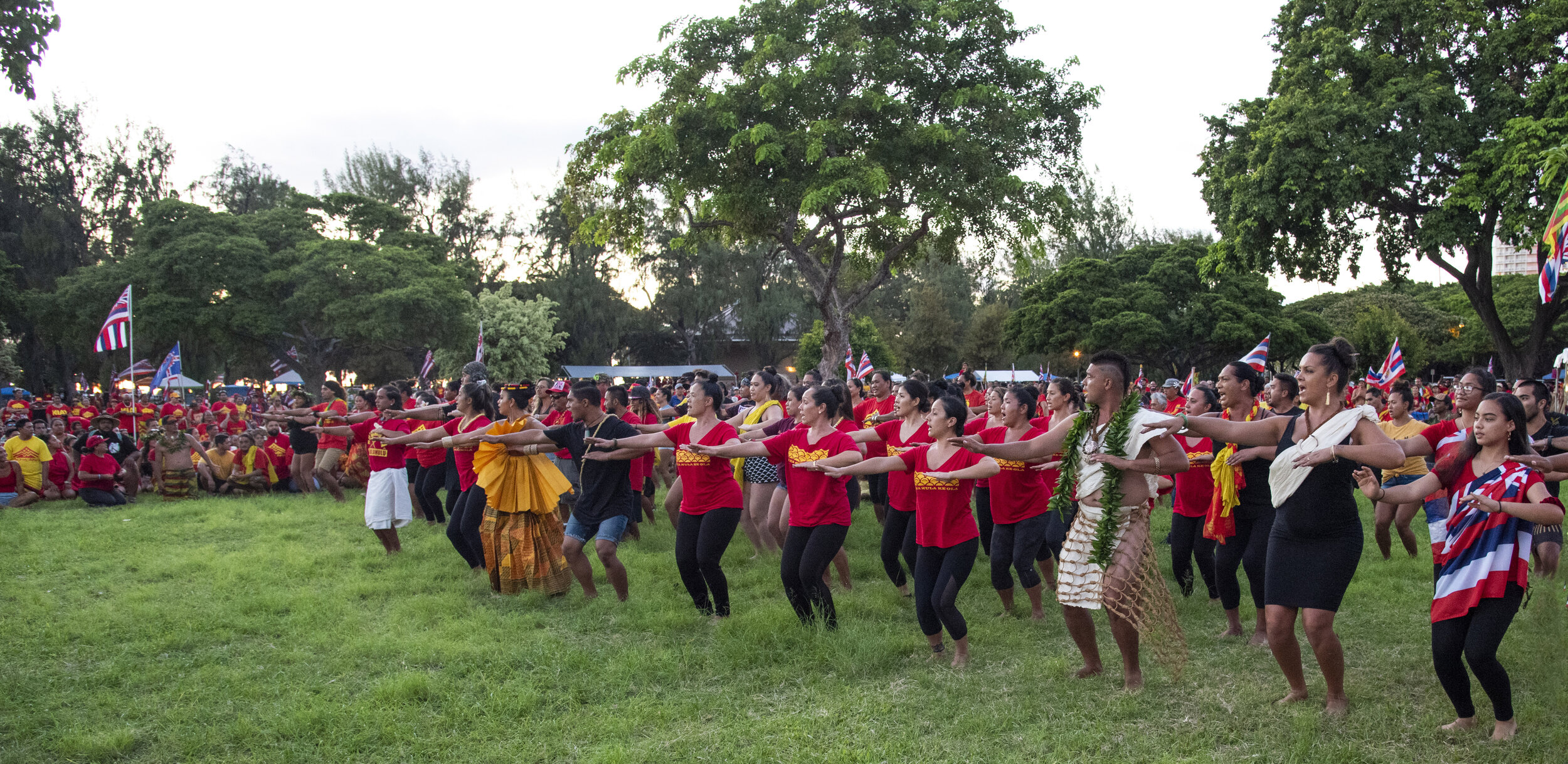
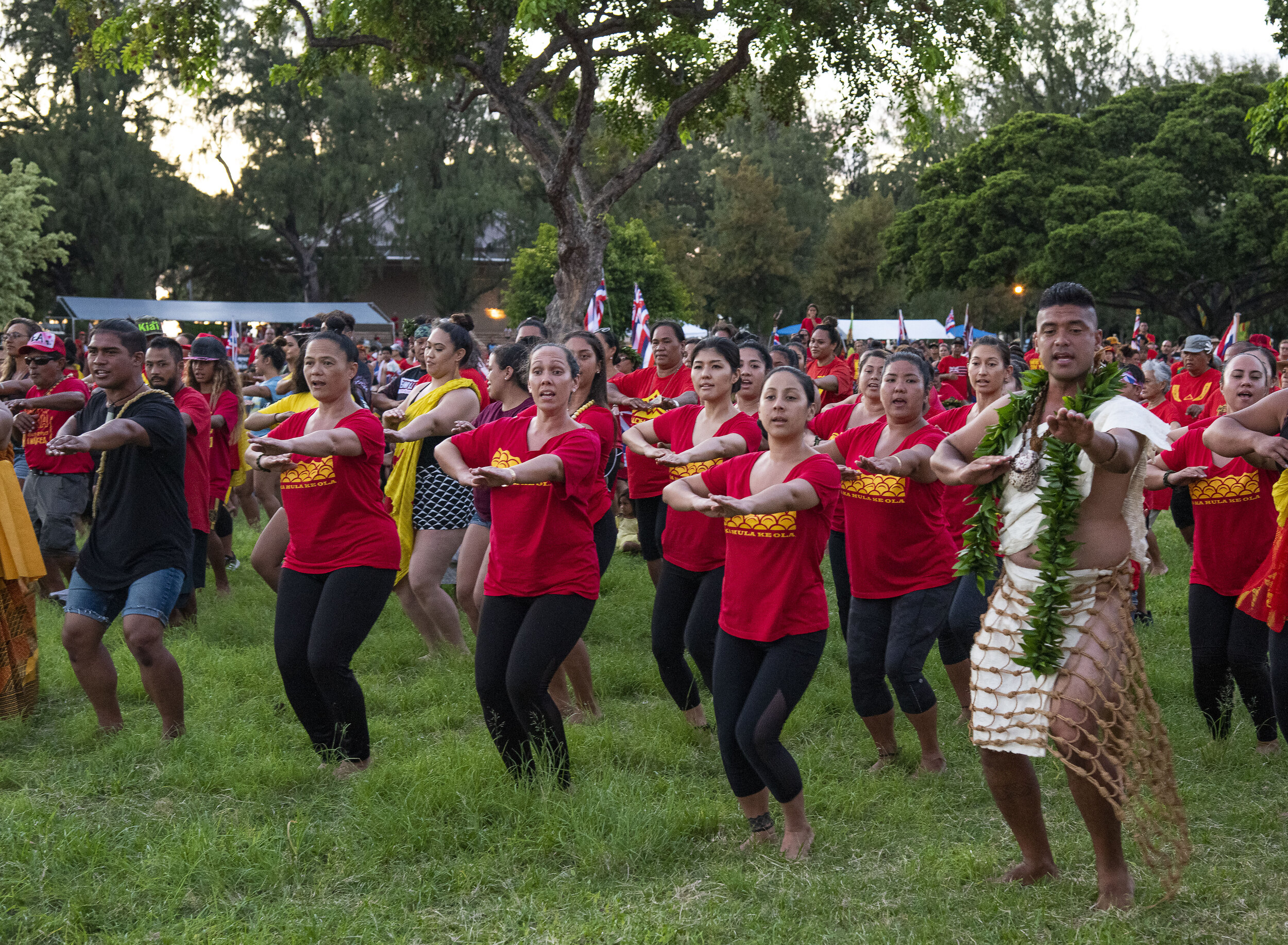
Be united in thought.
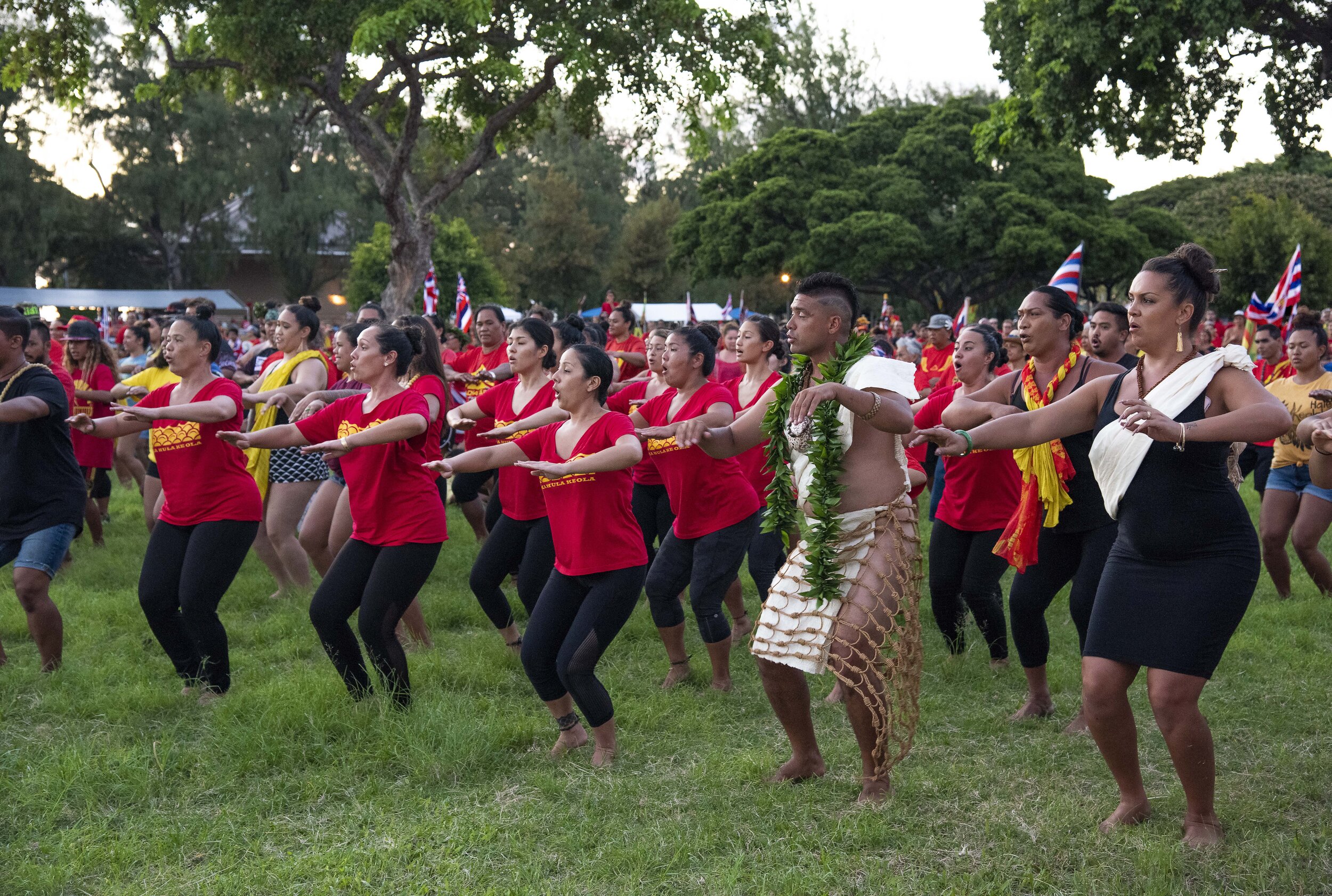
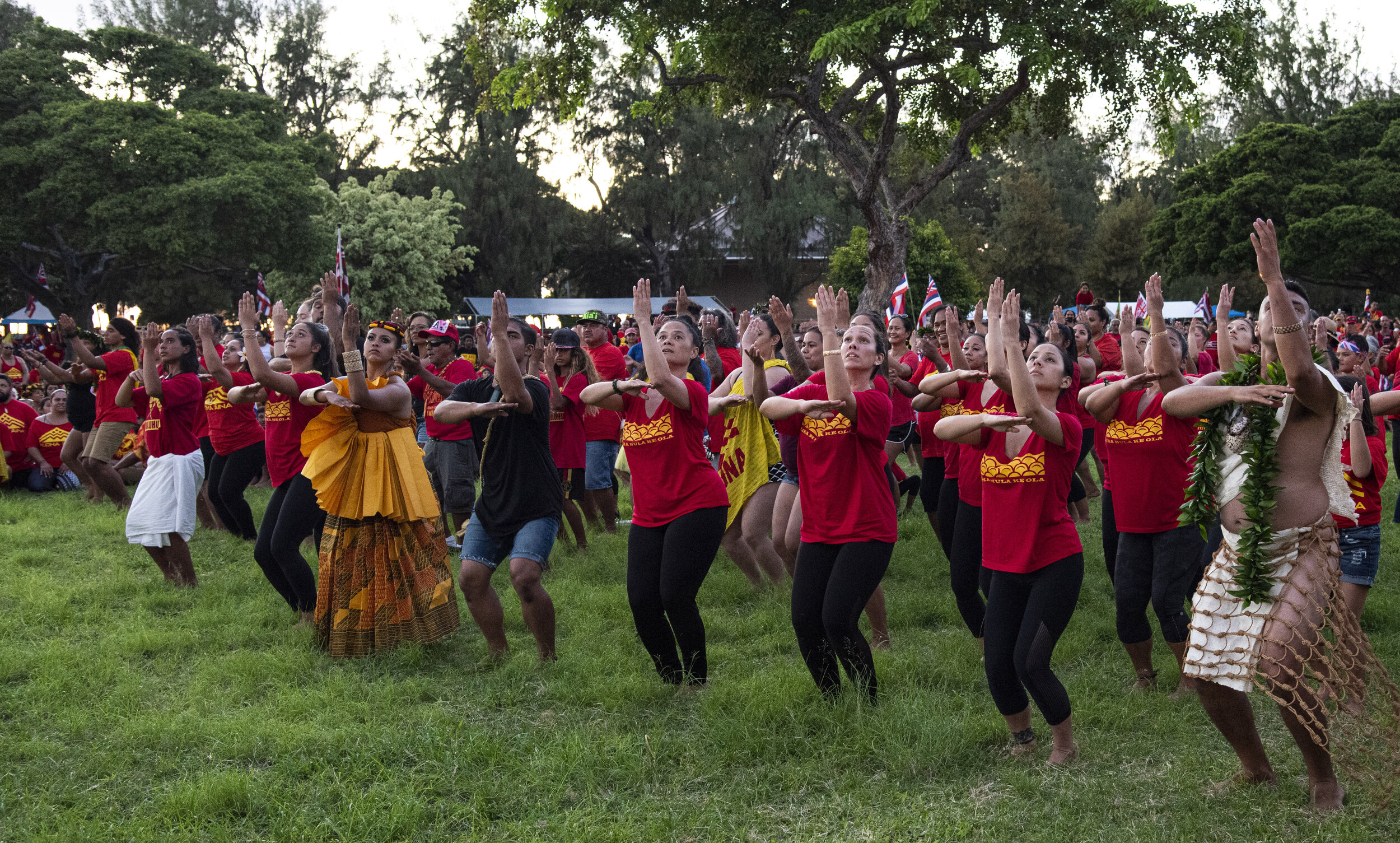
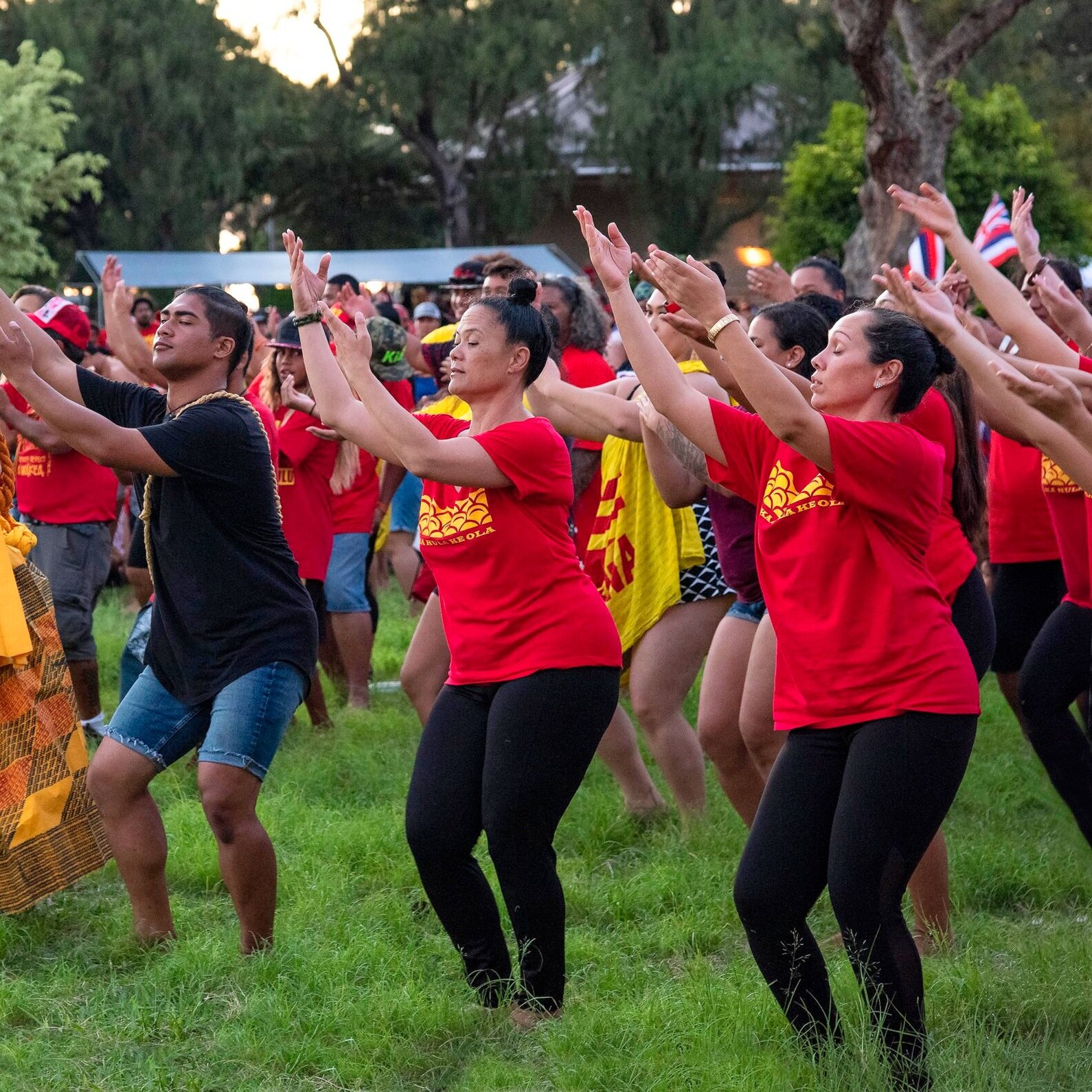
Said of one who remains calm in the face of difficulty.
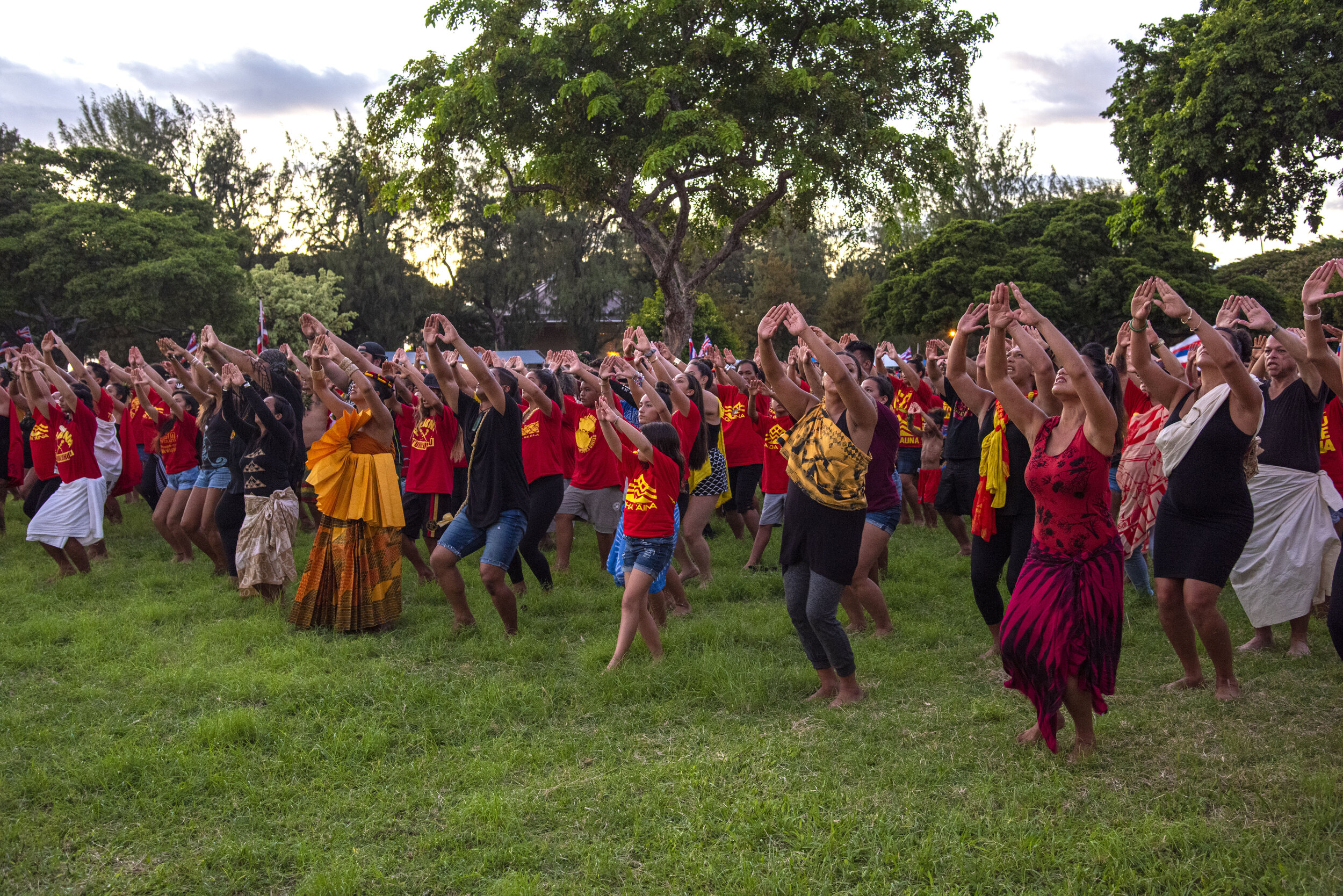
Poliʻahu is the goddess of snows; her home is on Mauna Kea.
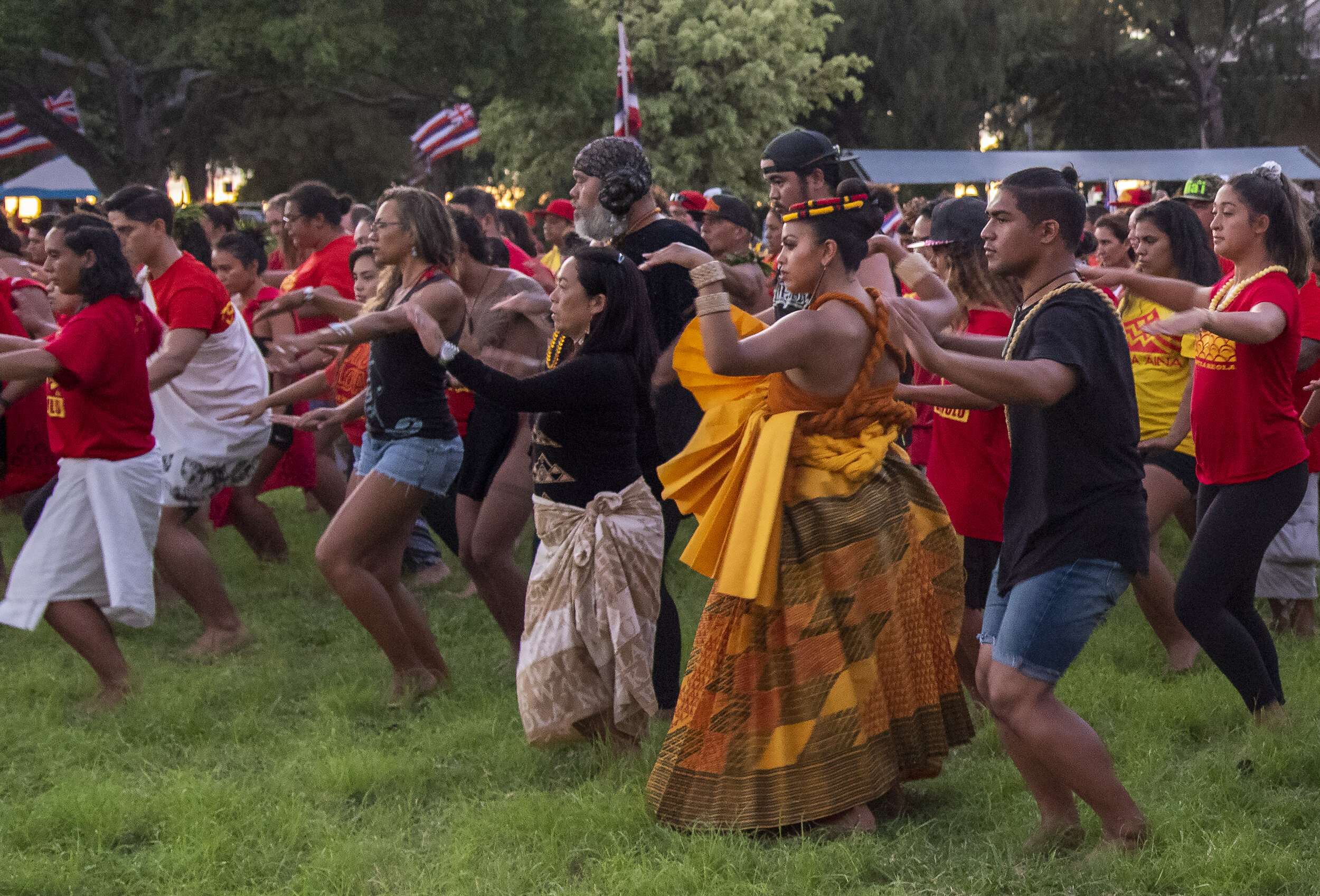
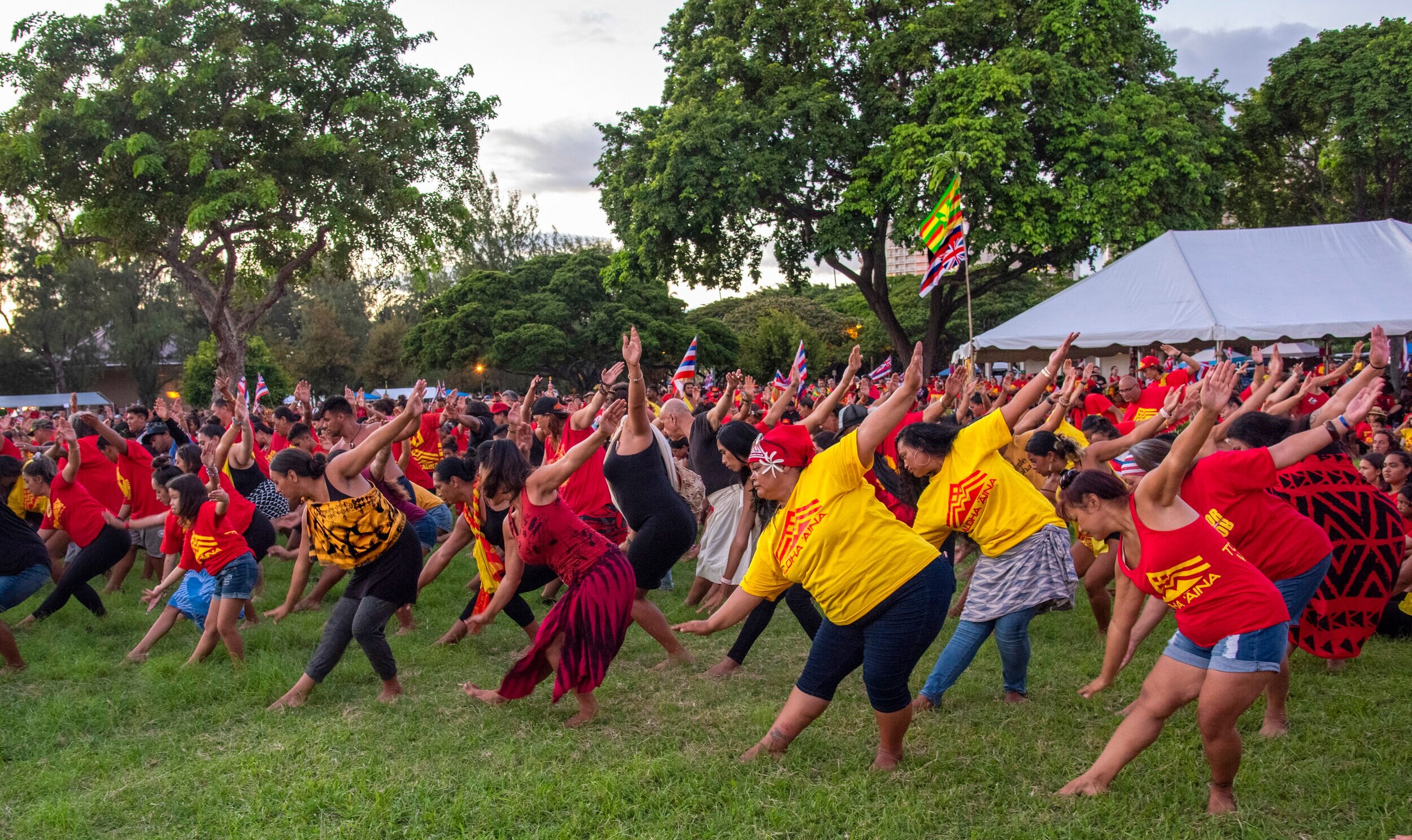
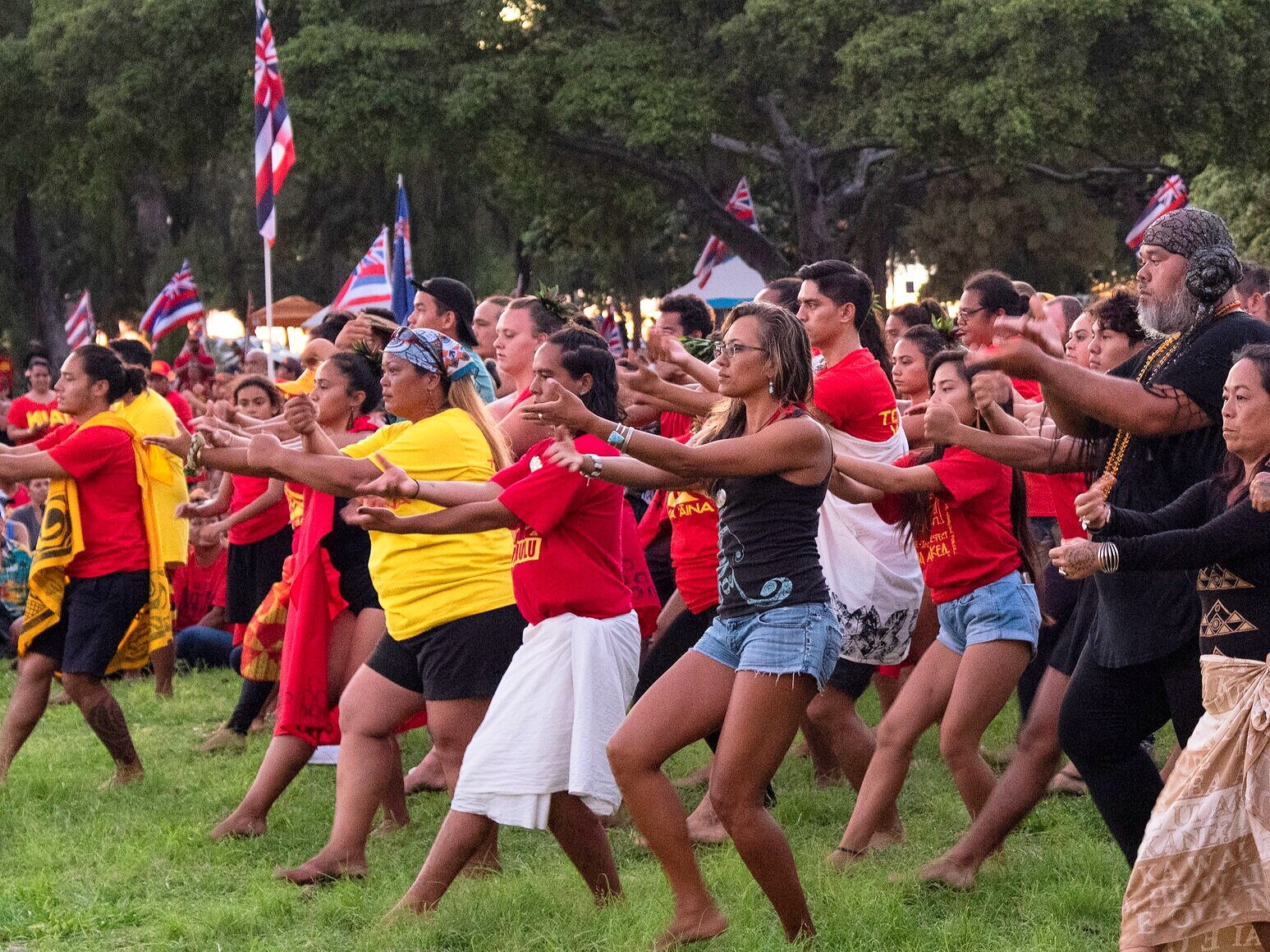
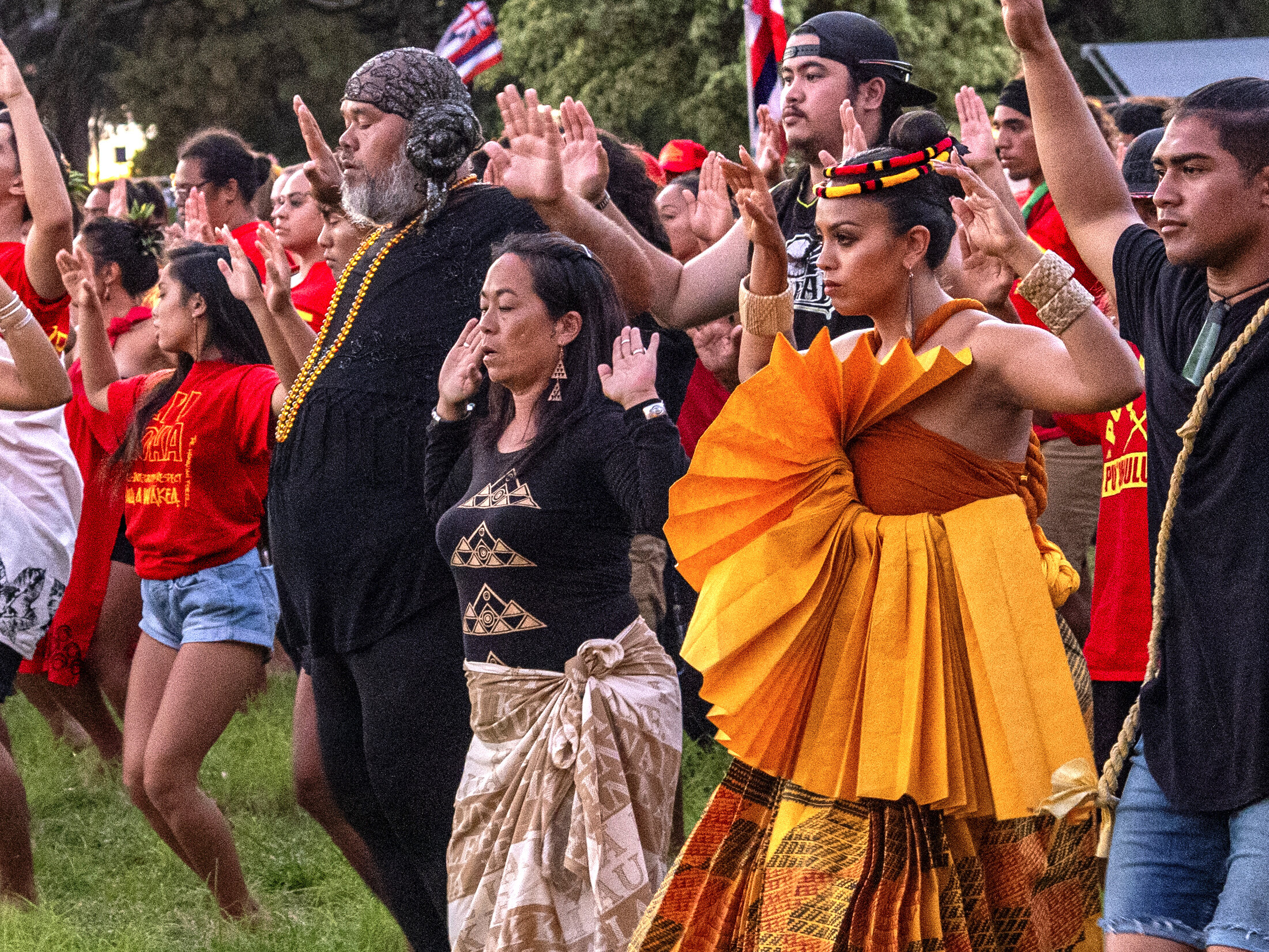
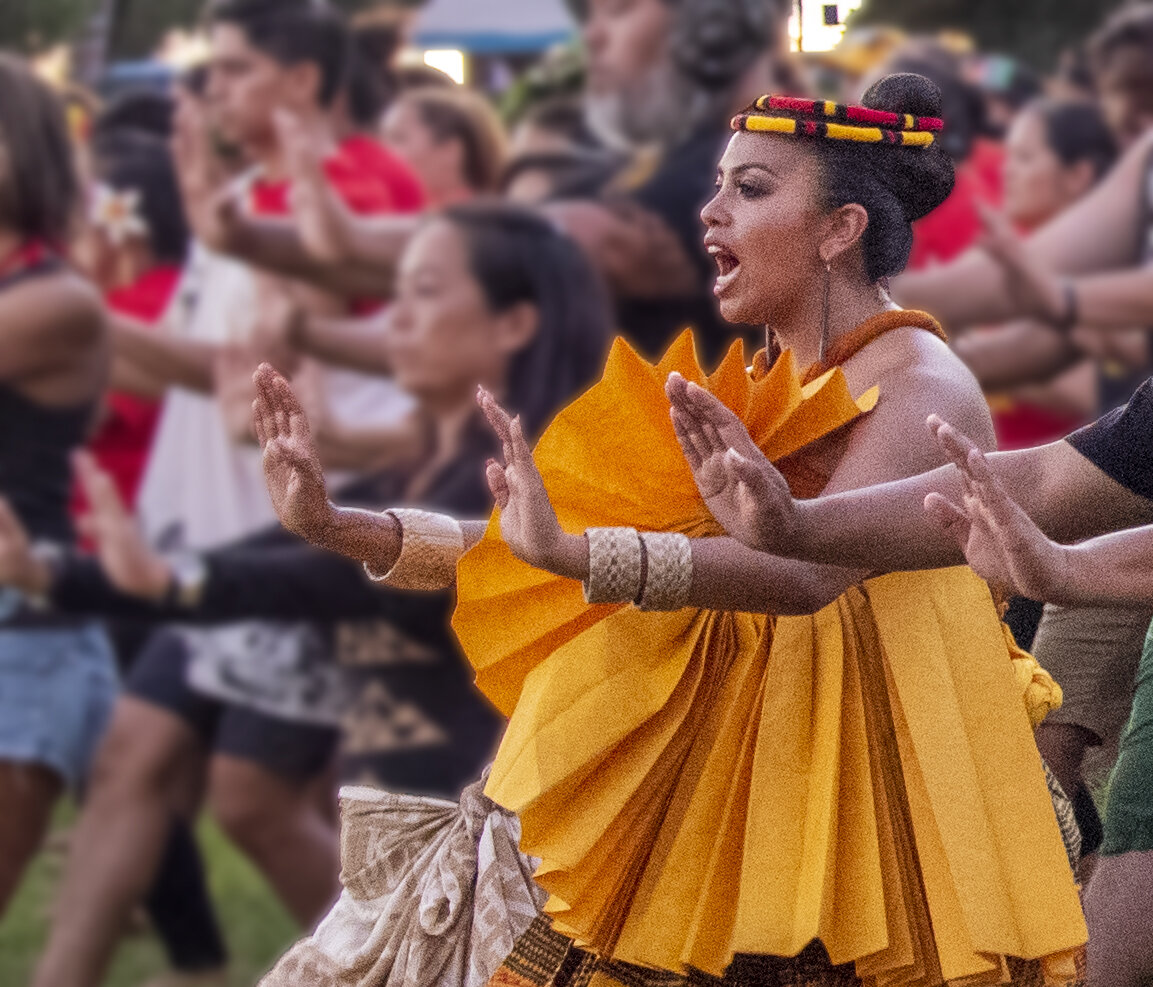
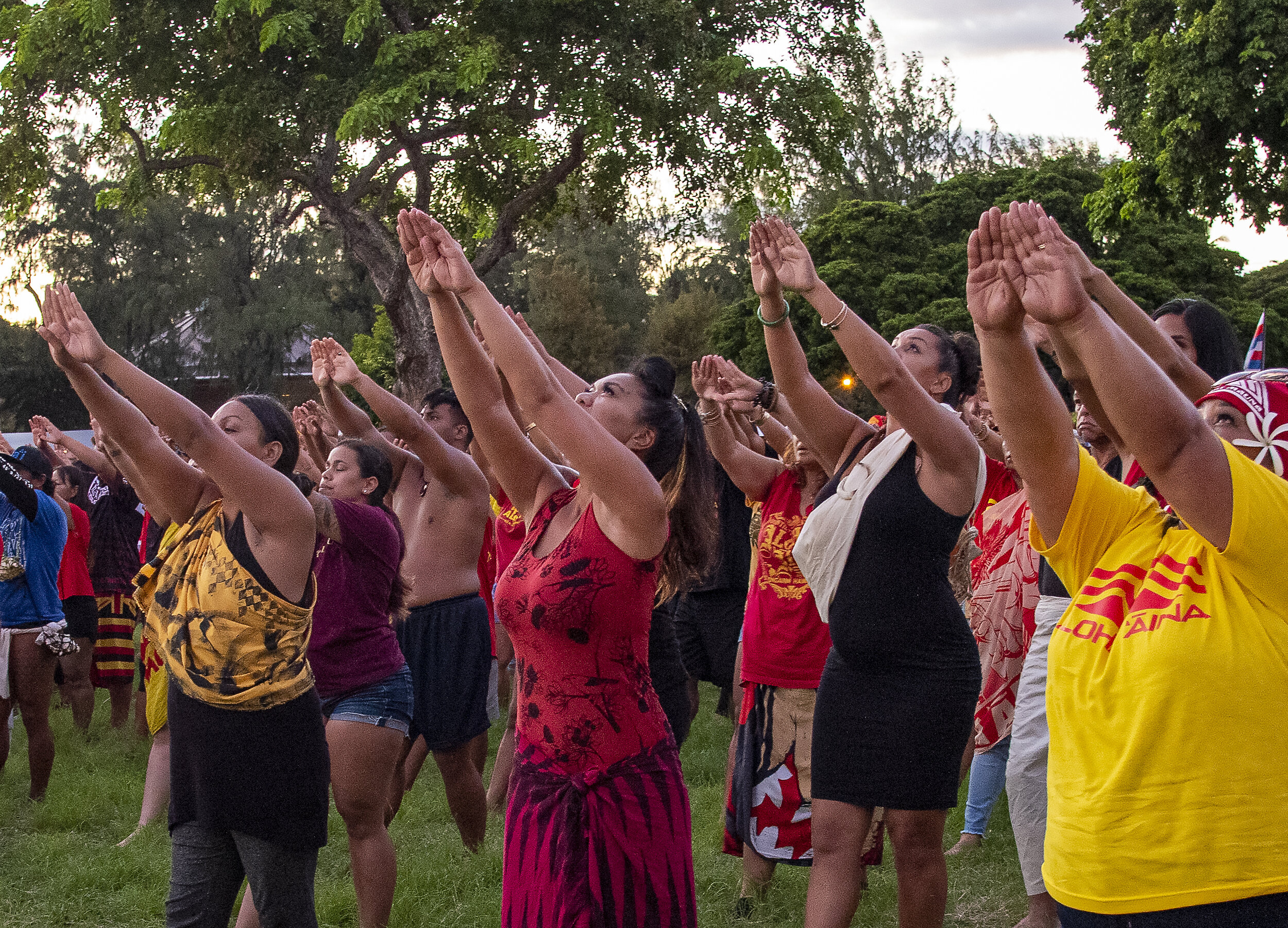
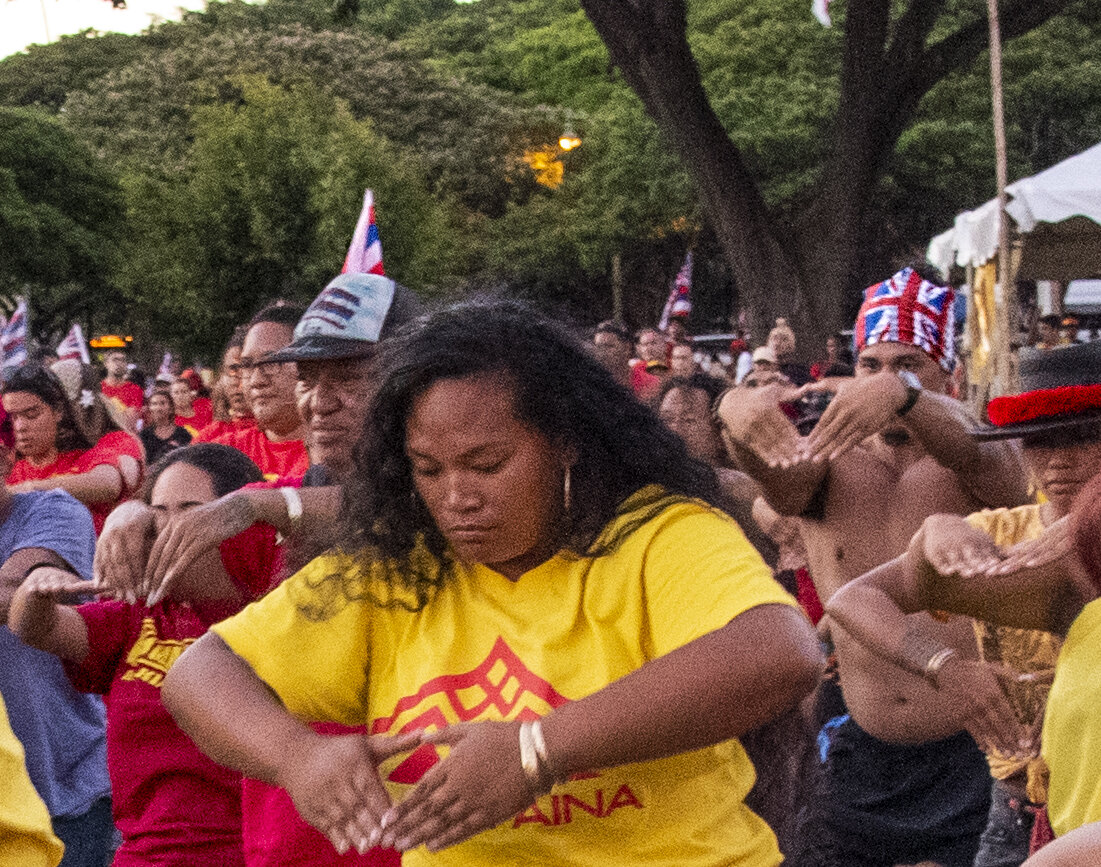
Said of a cloudburst that washes the stones from the stream beds, or of a person who, like the torrents, leaves no scandal untold.)
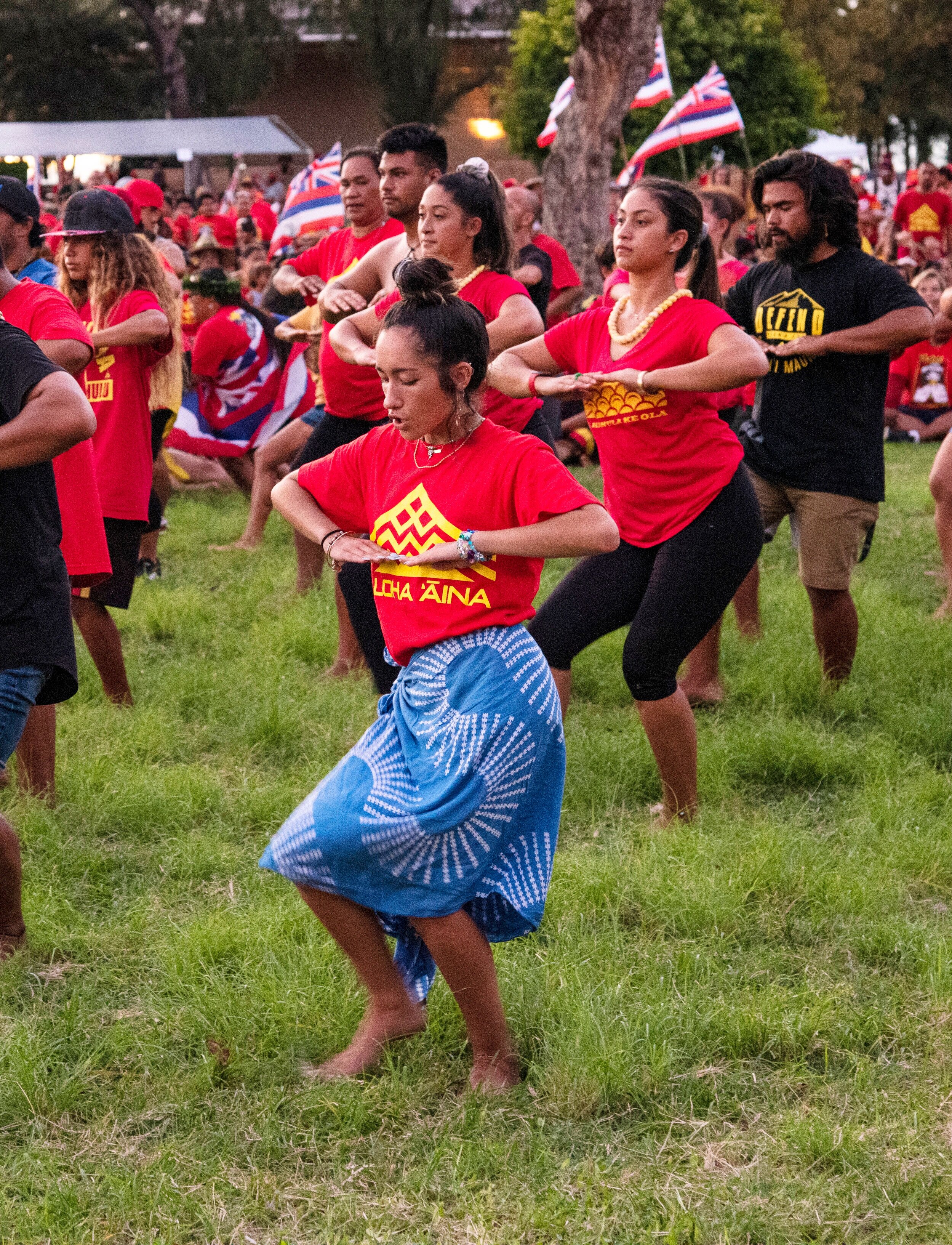
Said of the movements of a dance. A play on ʻaleʻale (to ripple like water), referring to the gestures of the hands, and lewa (to sway), referring to the movement of the hips.
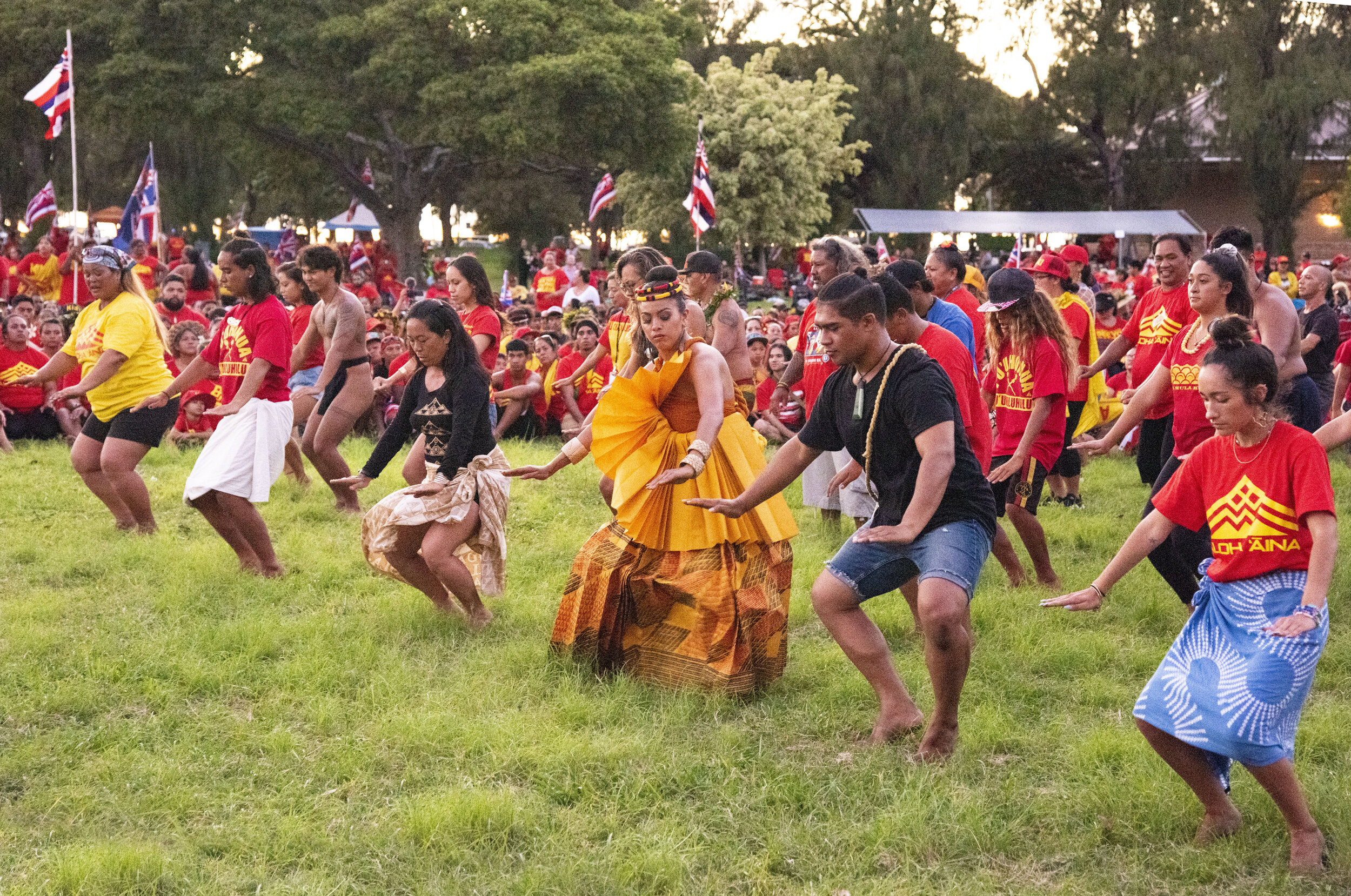
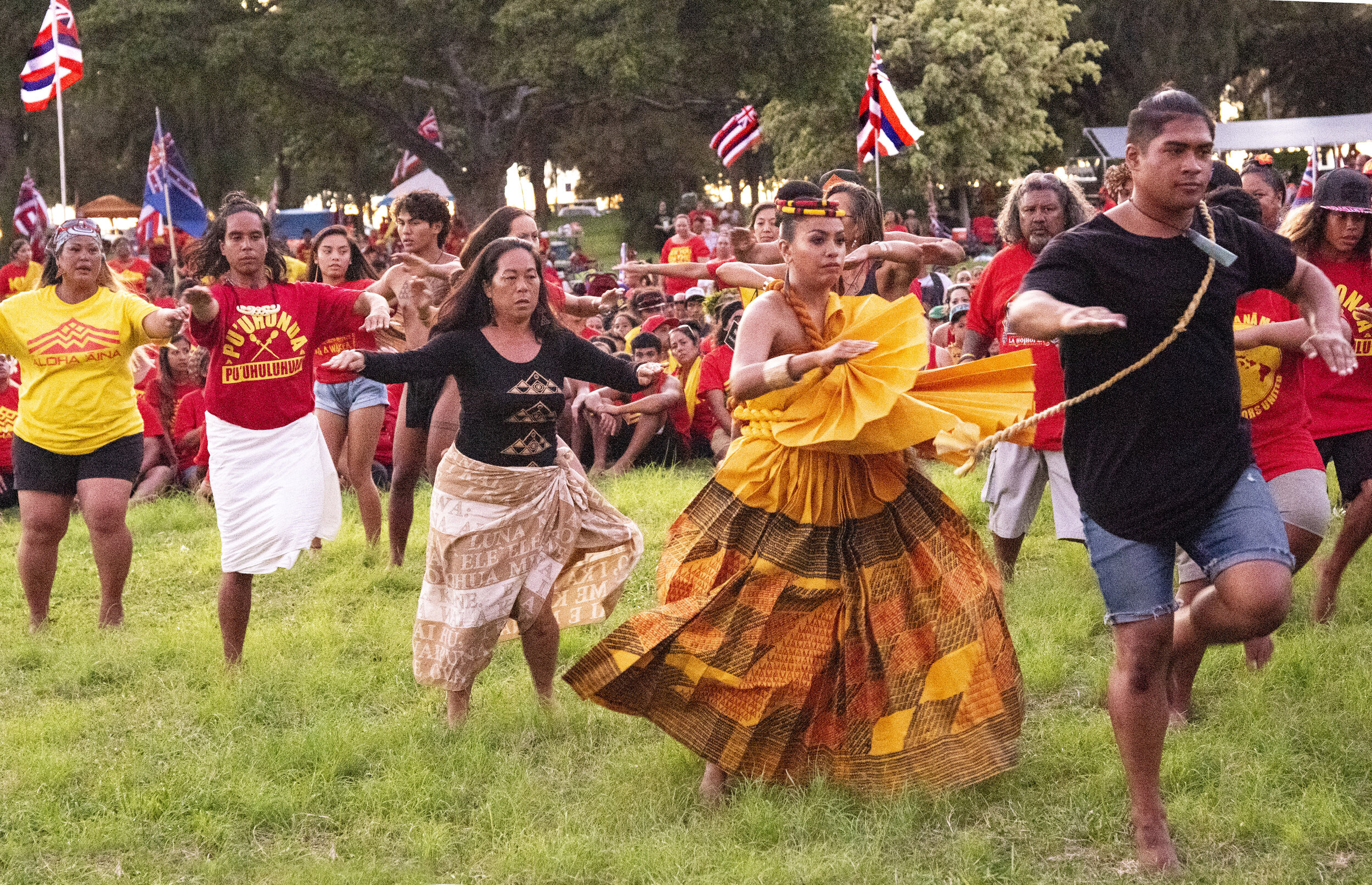
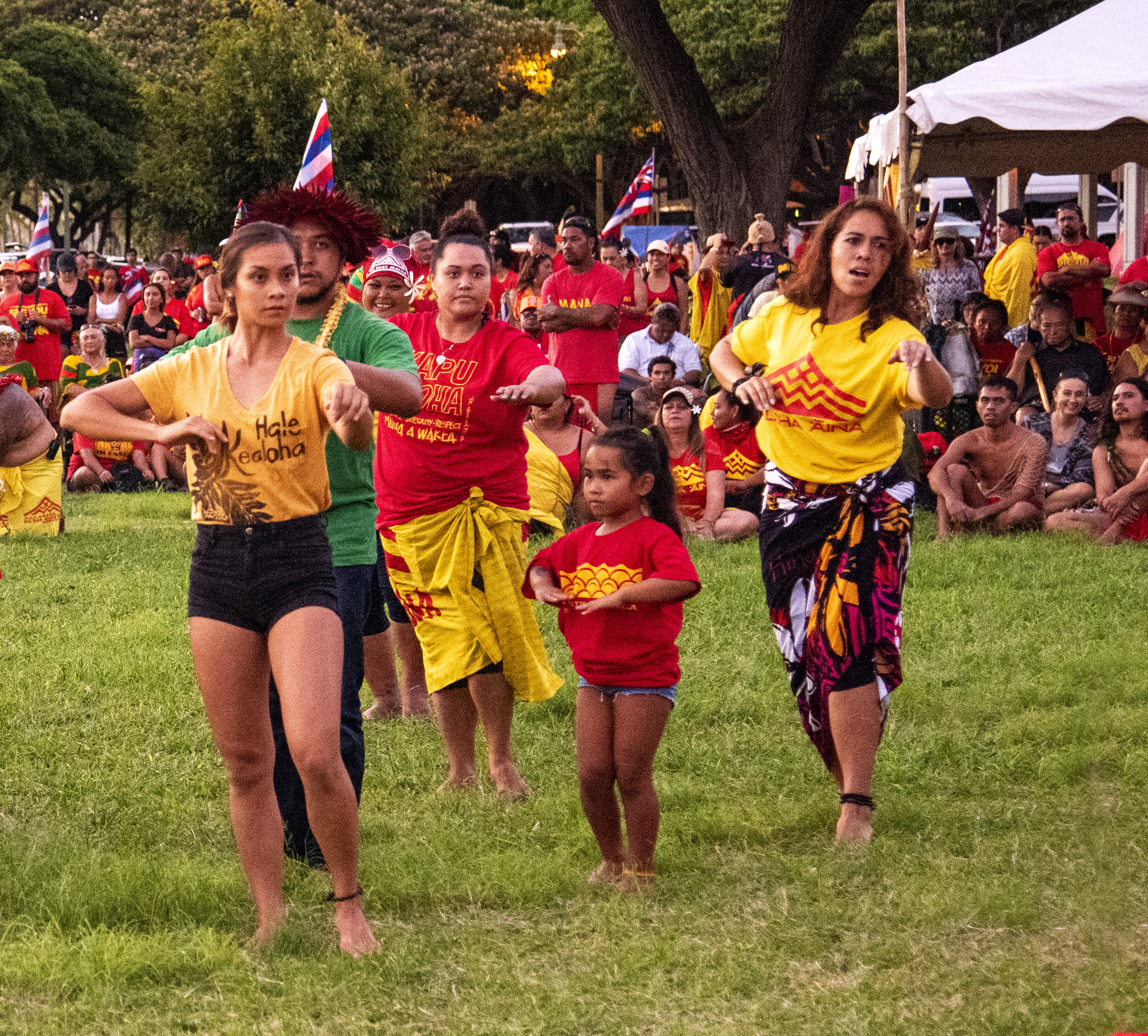
Said of a child who behaves like those who reared him. Māna is food masticated by an elder and conveyed to the mouth of a small child. The haumāna (pupil) receives knowledge from the mouth of his teacher.
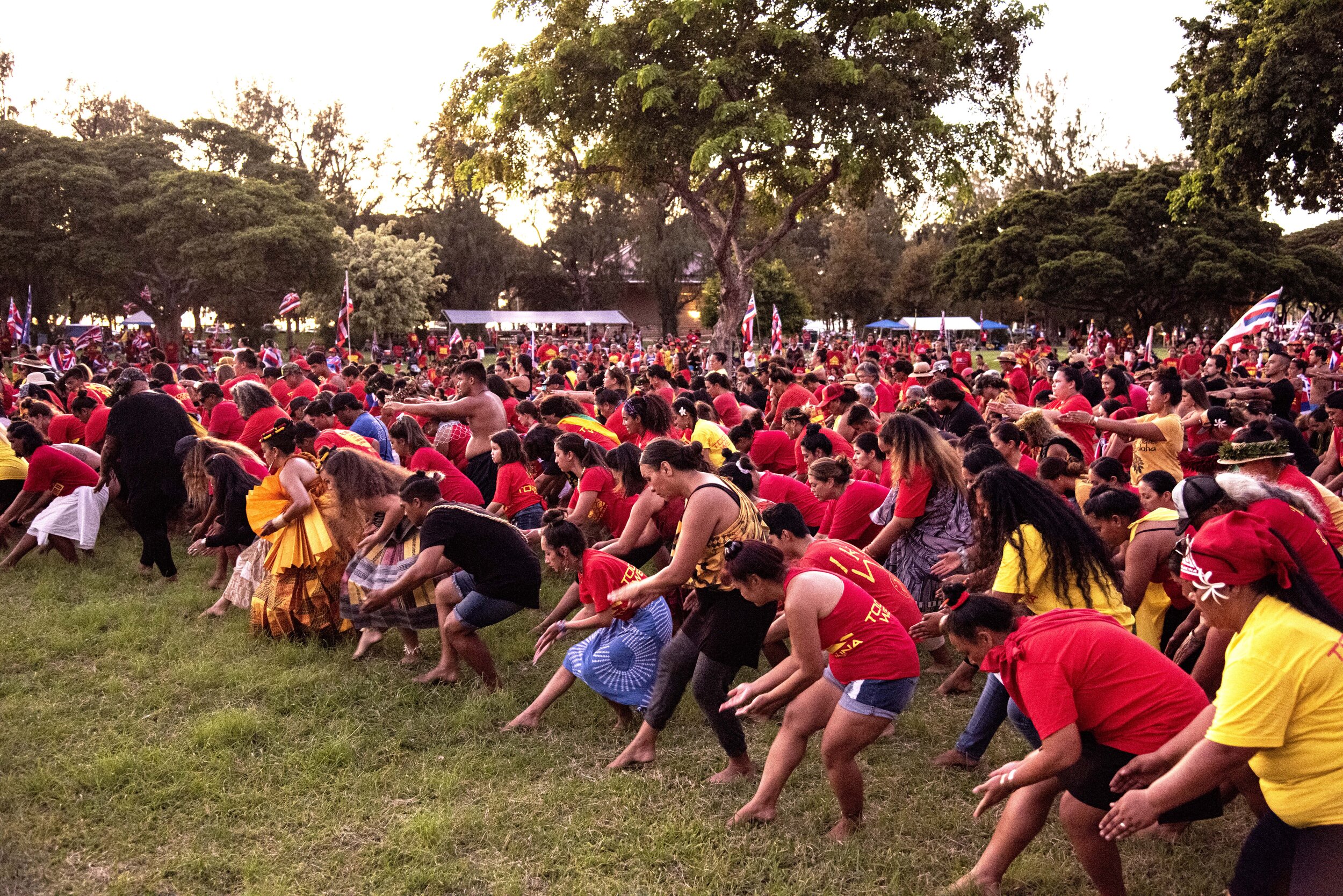
Everything is told, no secrets are kept.
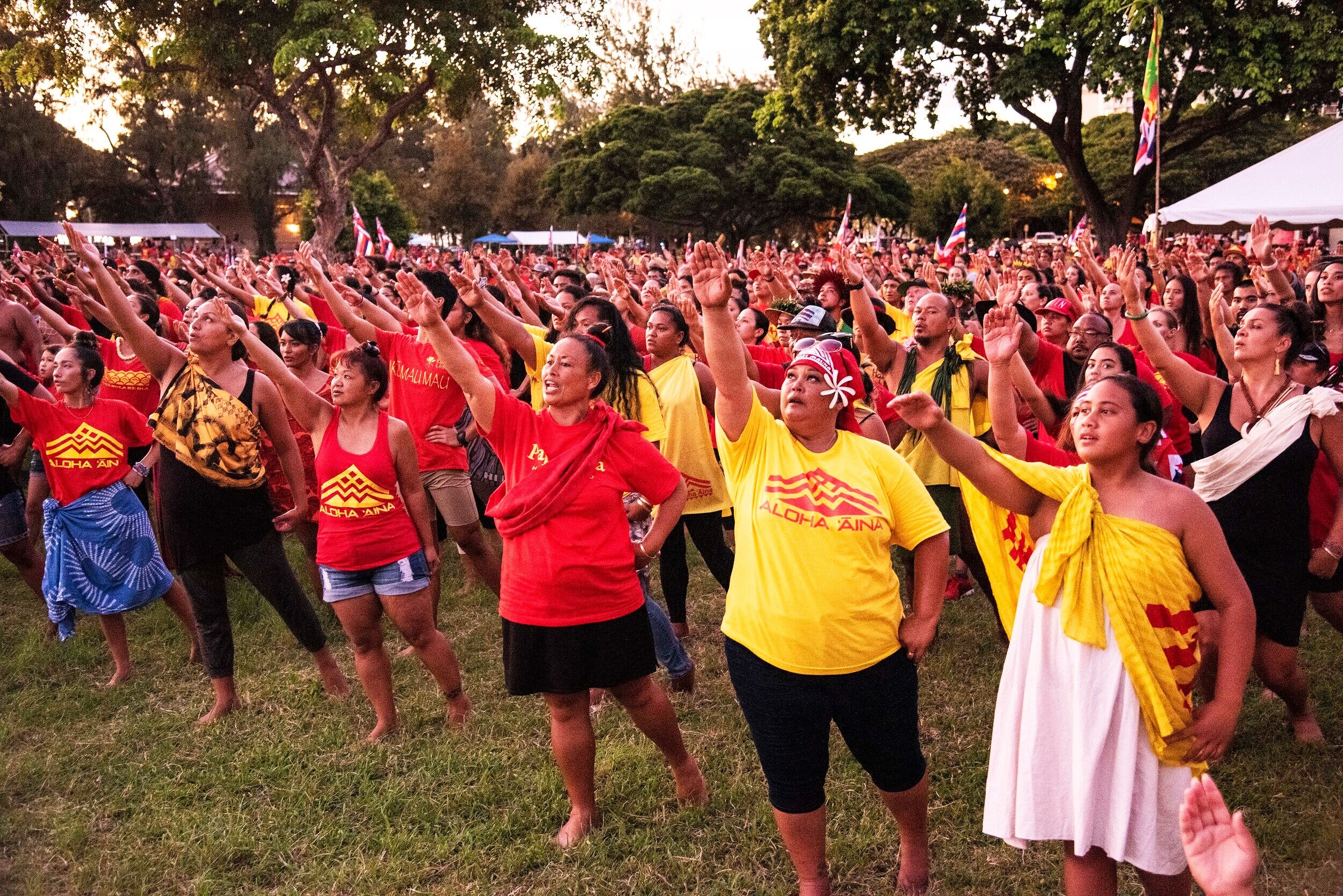
Motto of Queen Kapiʻolani.
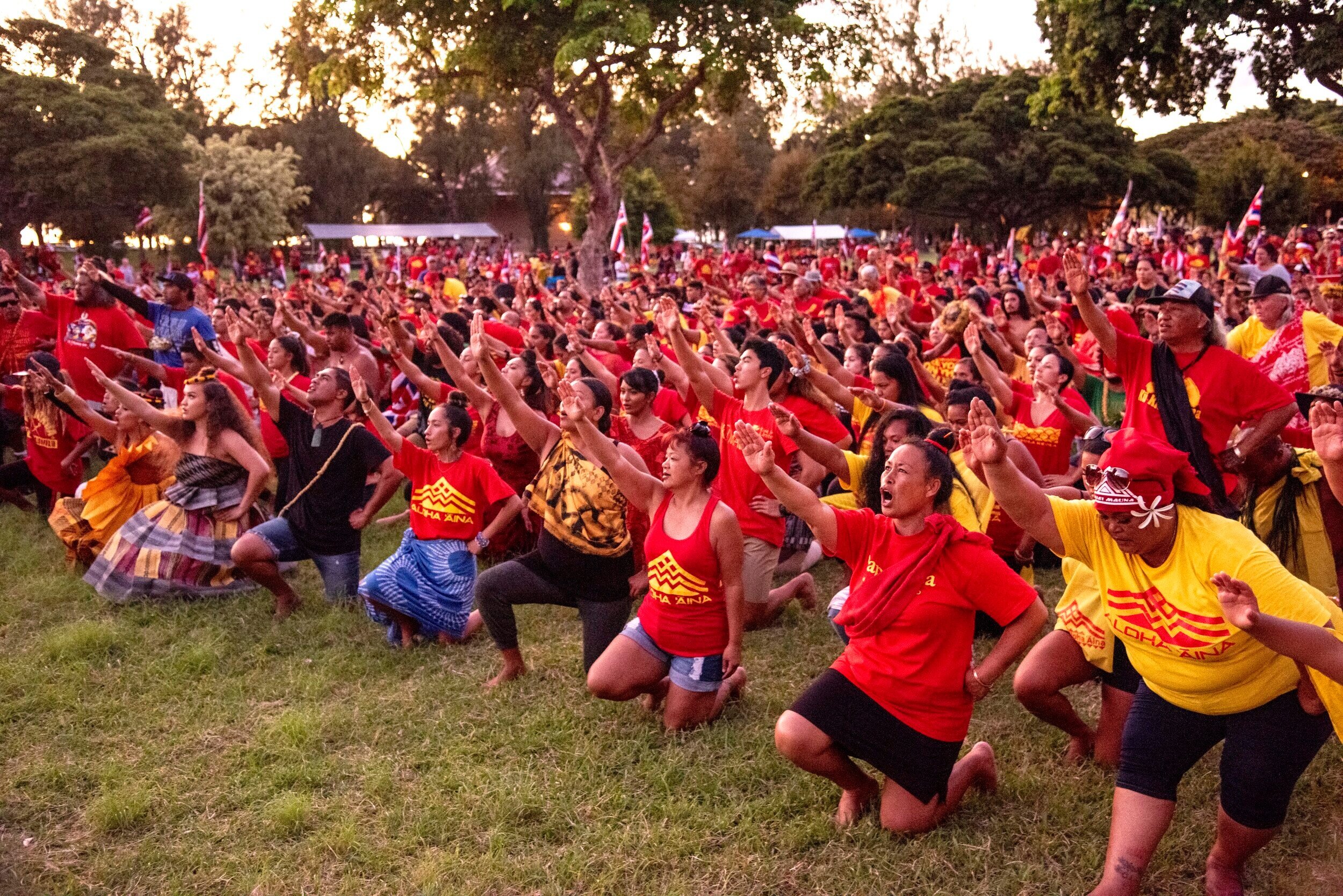
A great multitude; so many that one cannot count.
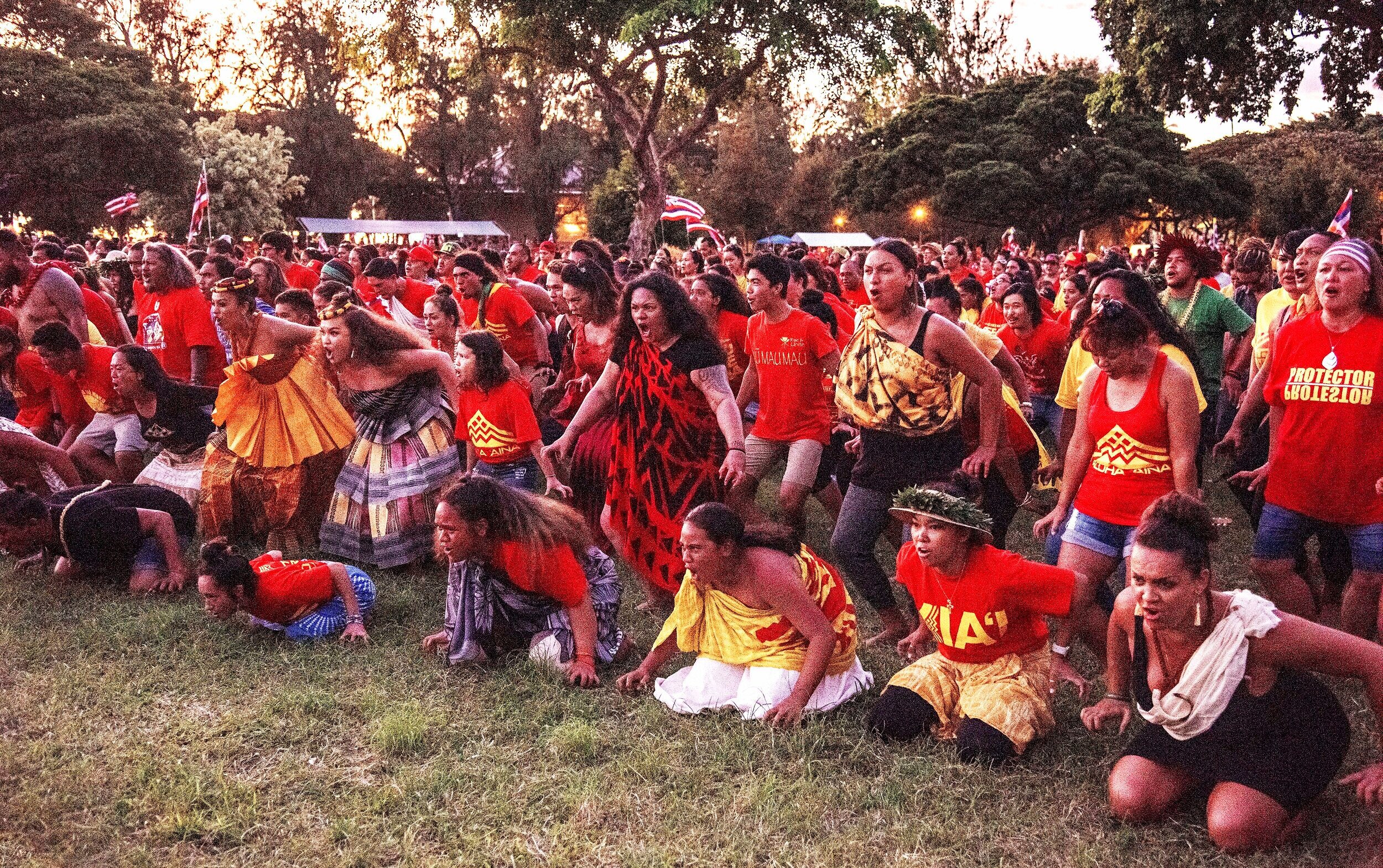
It was not destroyed while it was small; now itʻs too big to cope with. Said by Keawemaʻuhiliʻs warriors of Kamehameha. They were at the court of Alapaʻi when the order was given to “Nip off the leaf bud of the wauke plant while it is tender” (E ʻōʻū i ka maka o ka wauke oi ʻōpiopio). This attempt to kill the baby didnʻt succeed, and the child grew into a powerful warrior who quelled all of his foes.
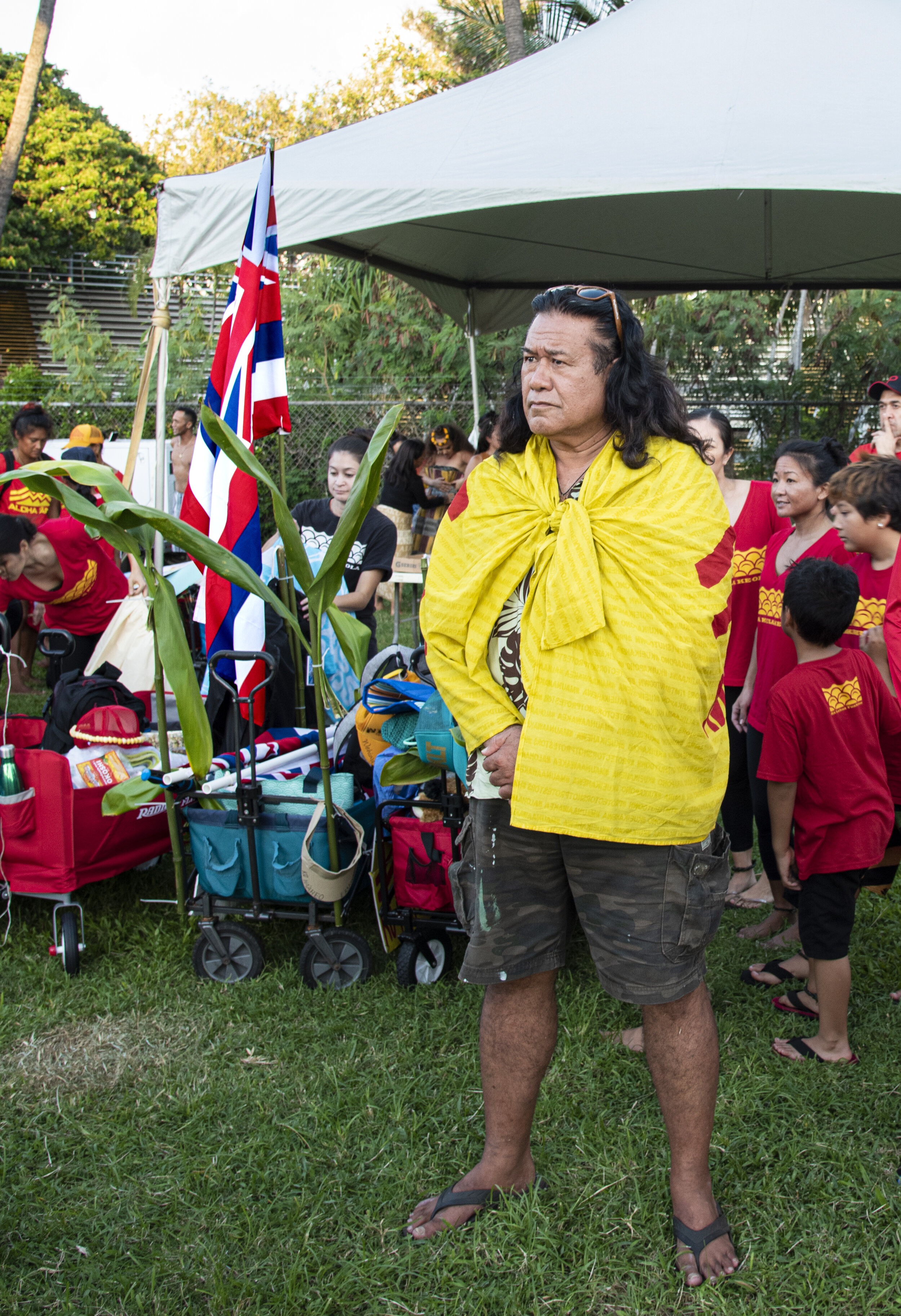
Thus one learns. [Branscombe Richmond observing the rally just before he joined in dancing hula. See following pictures, rt.)
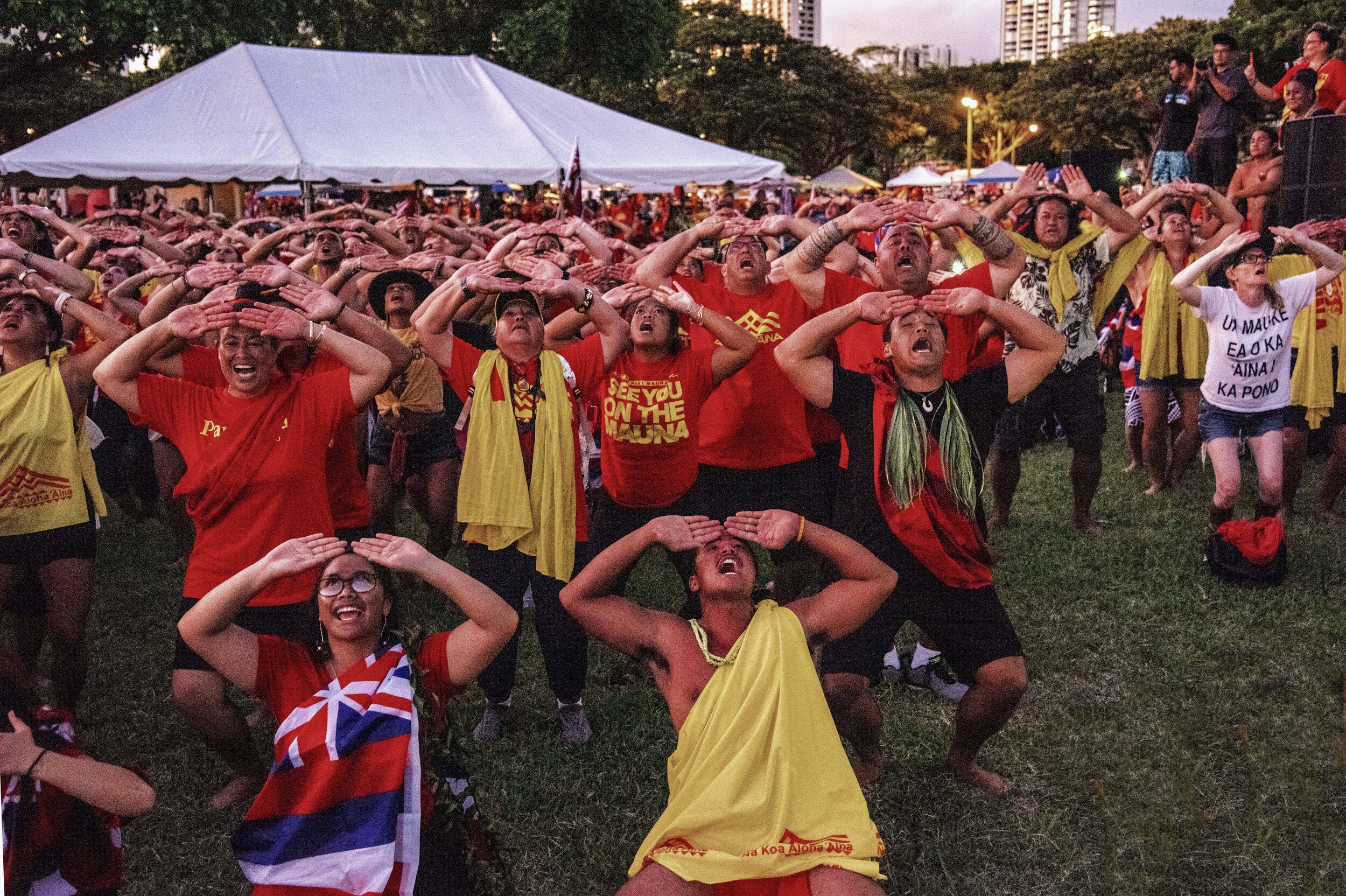
Natives of the land from generations back.
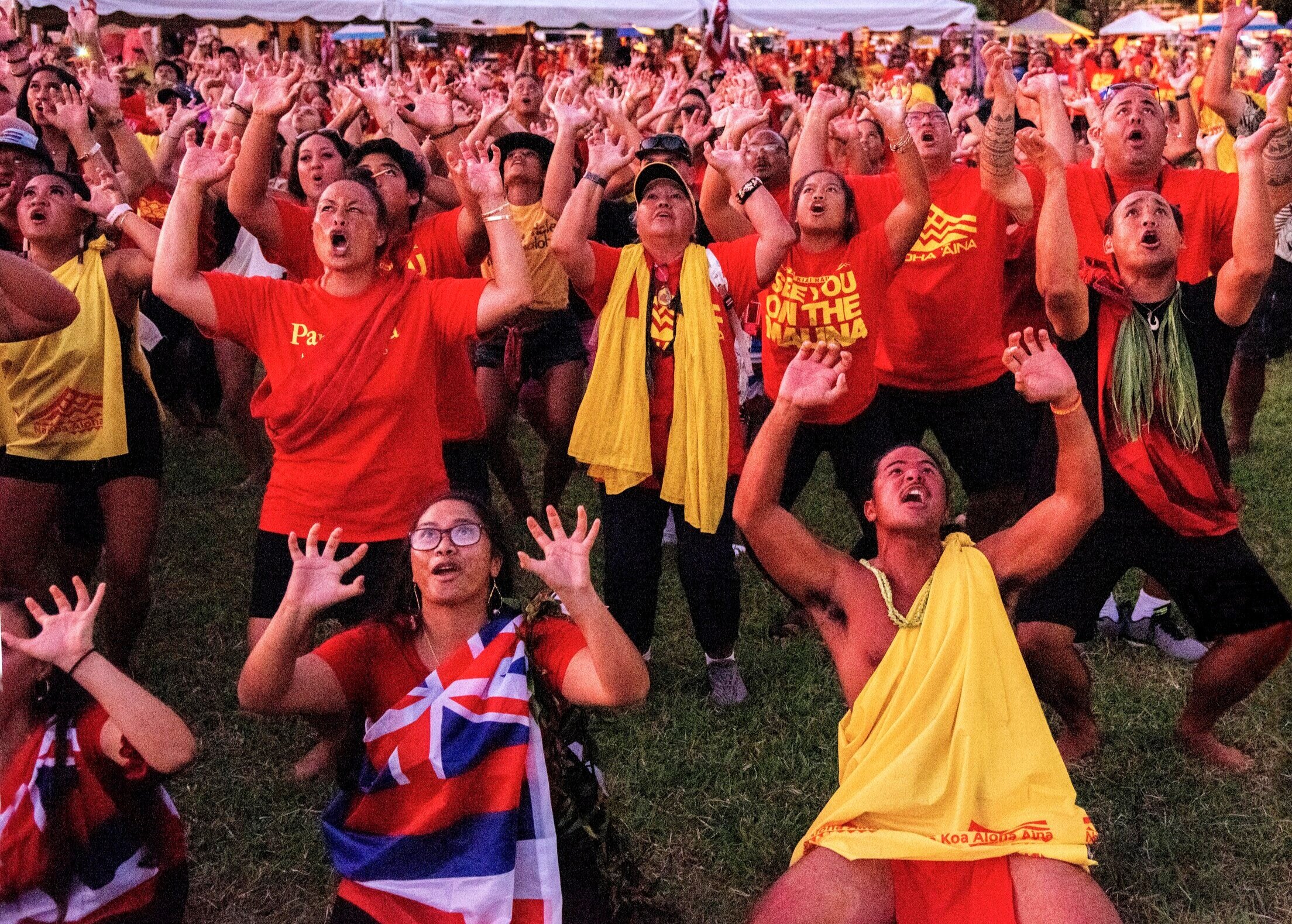
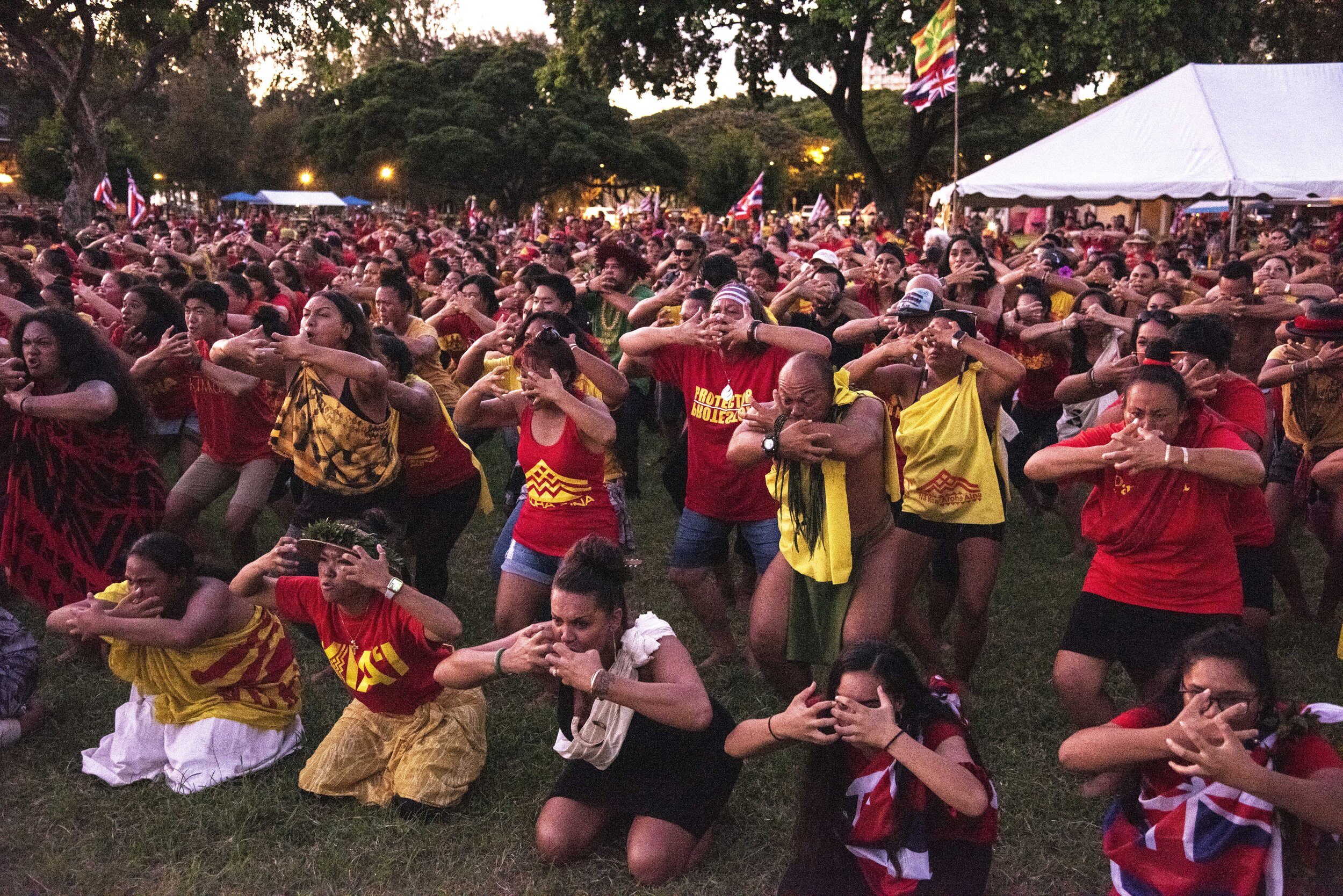
Sick and tired of living in an atmosphere of unkindness and hatred.
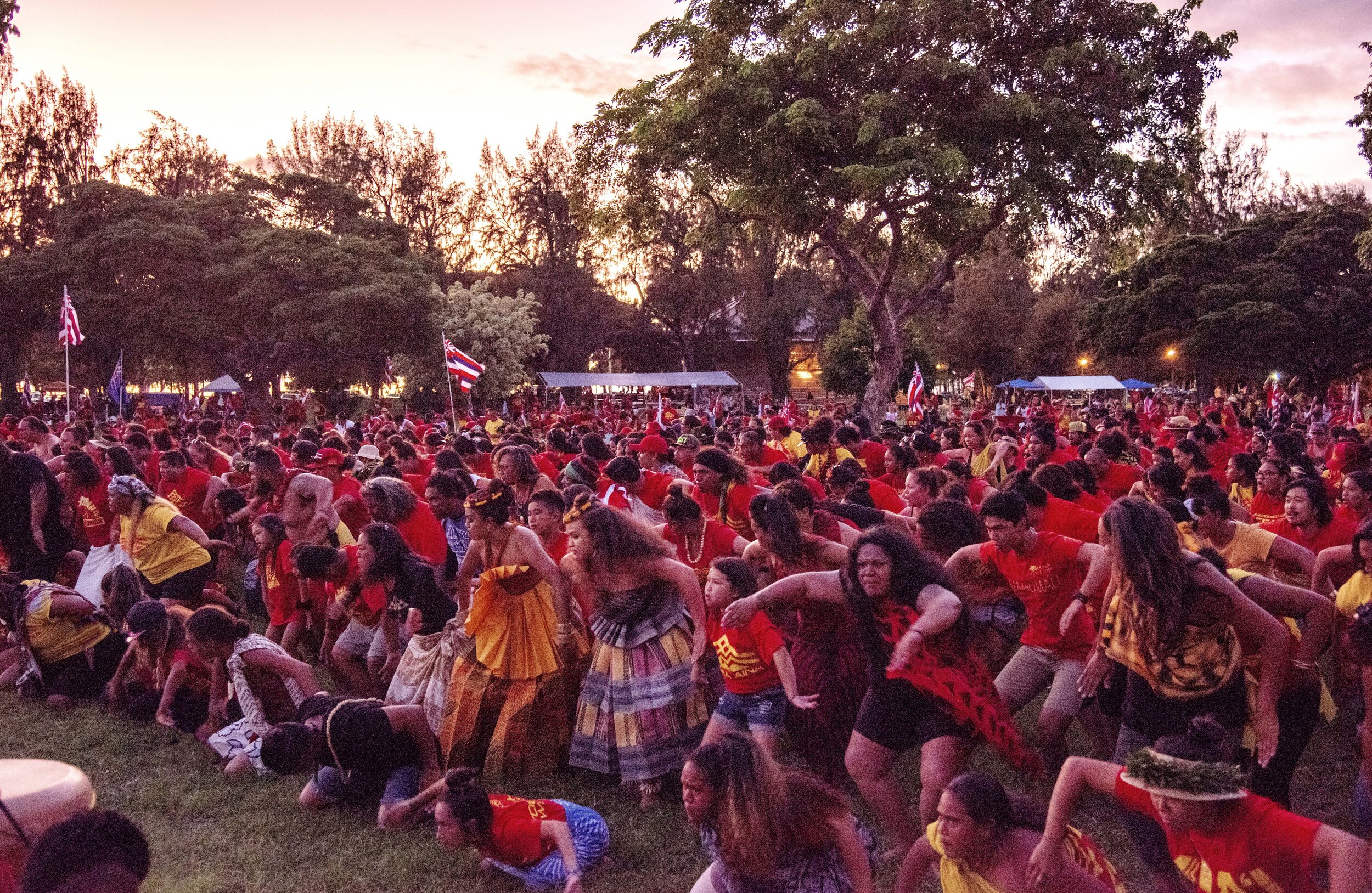
The natural color of the grass is covered by an army of warriors ready for war.
